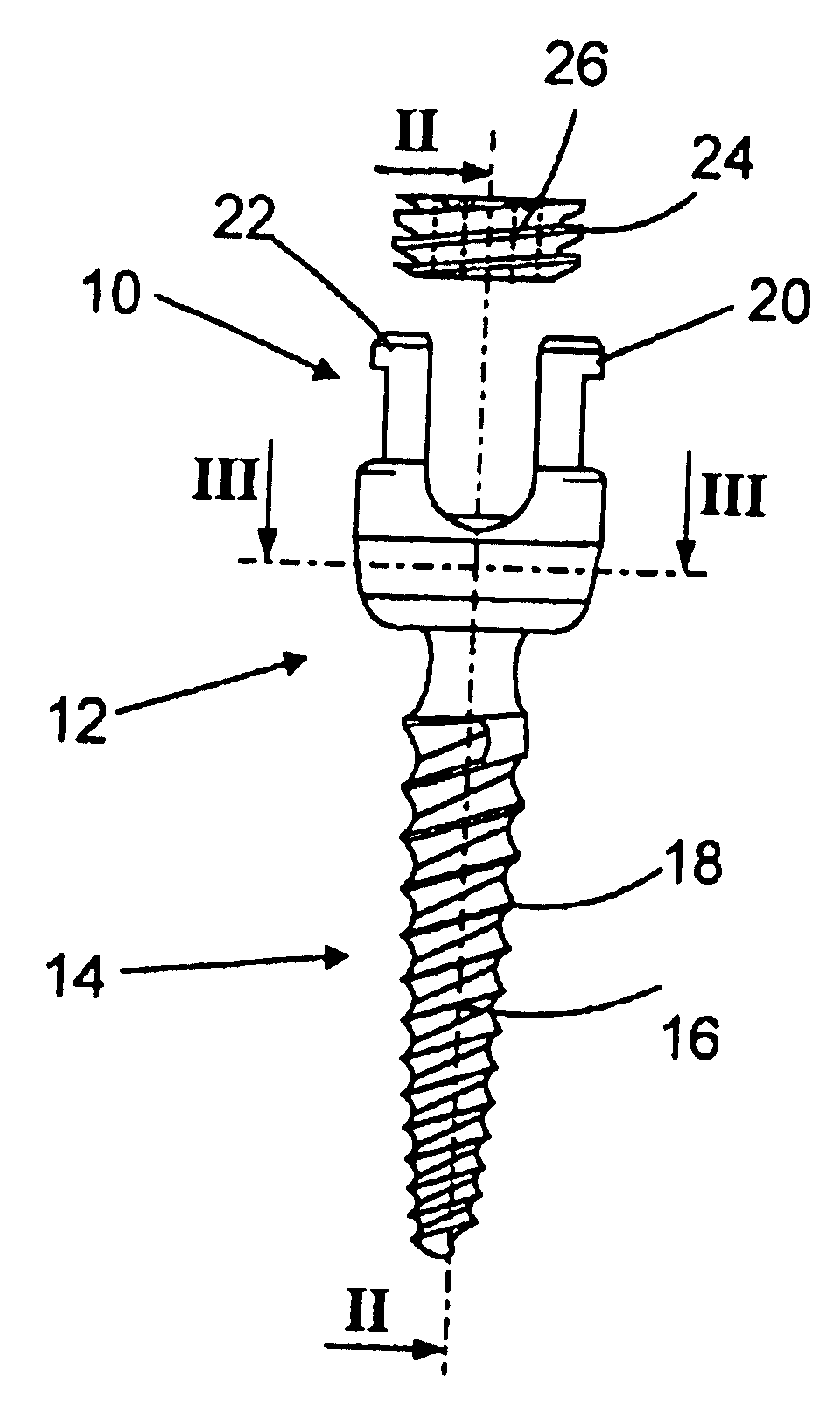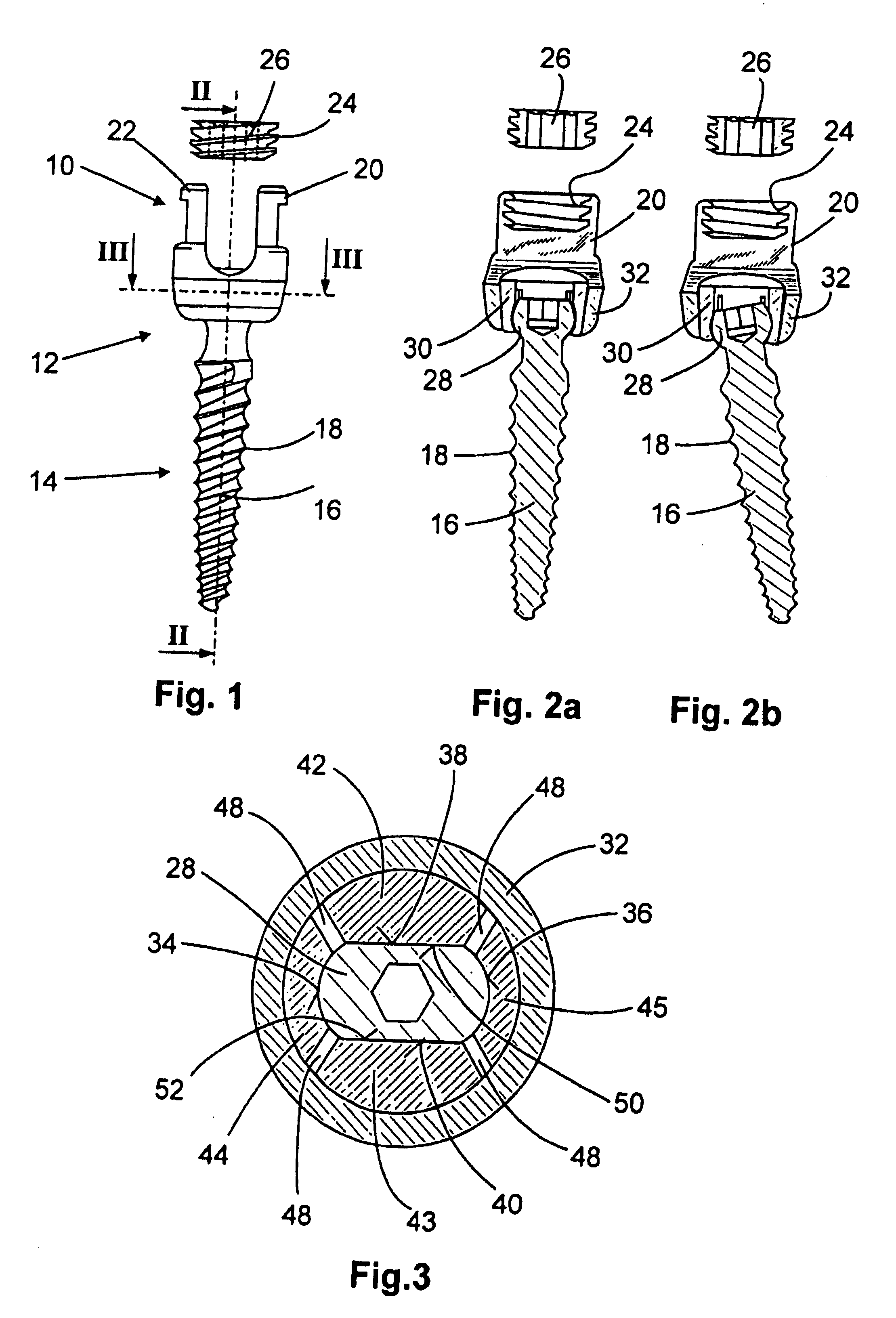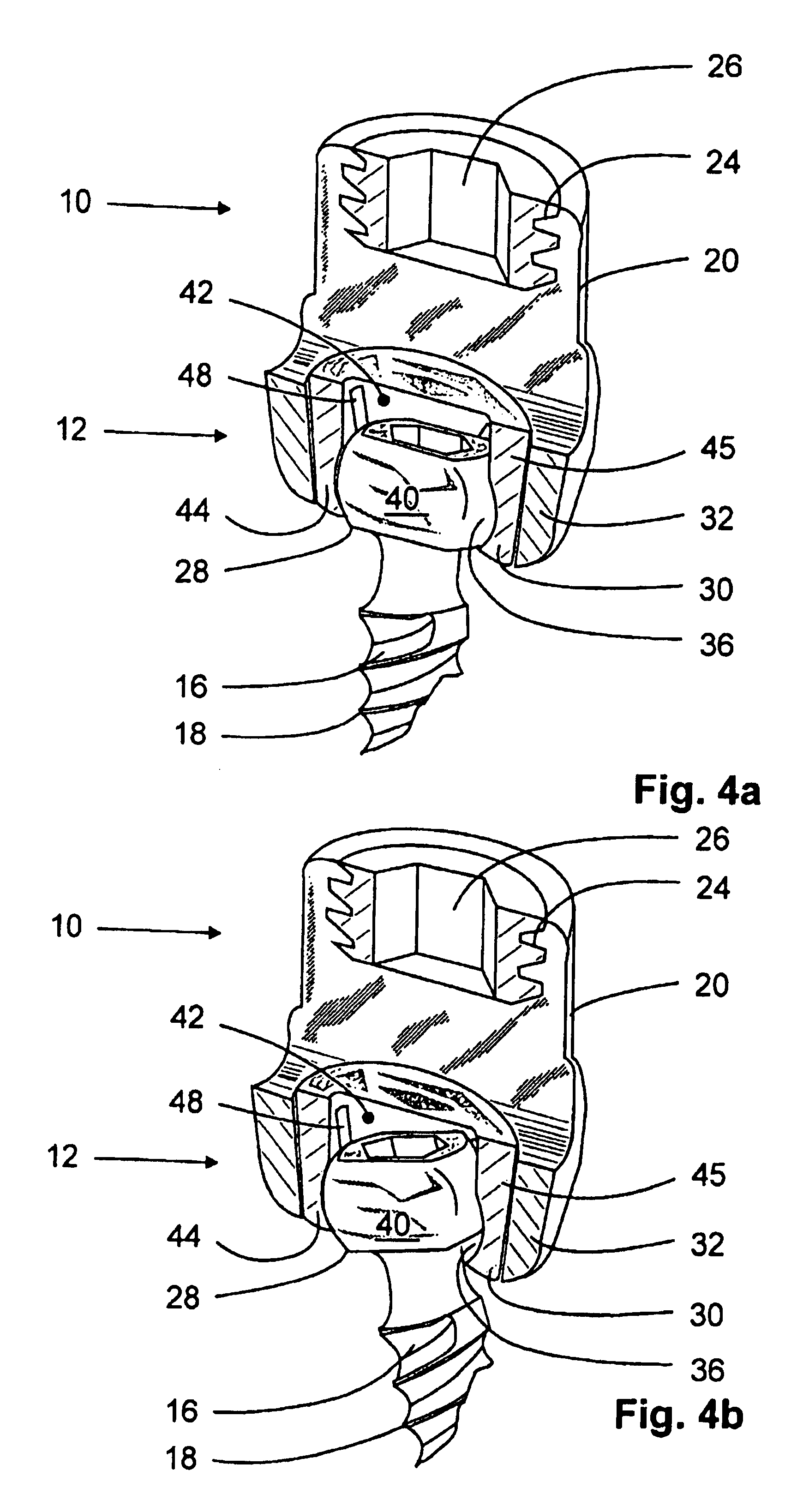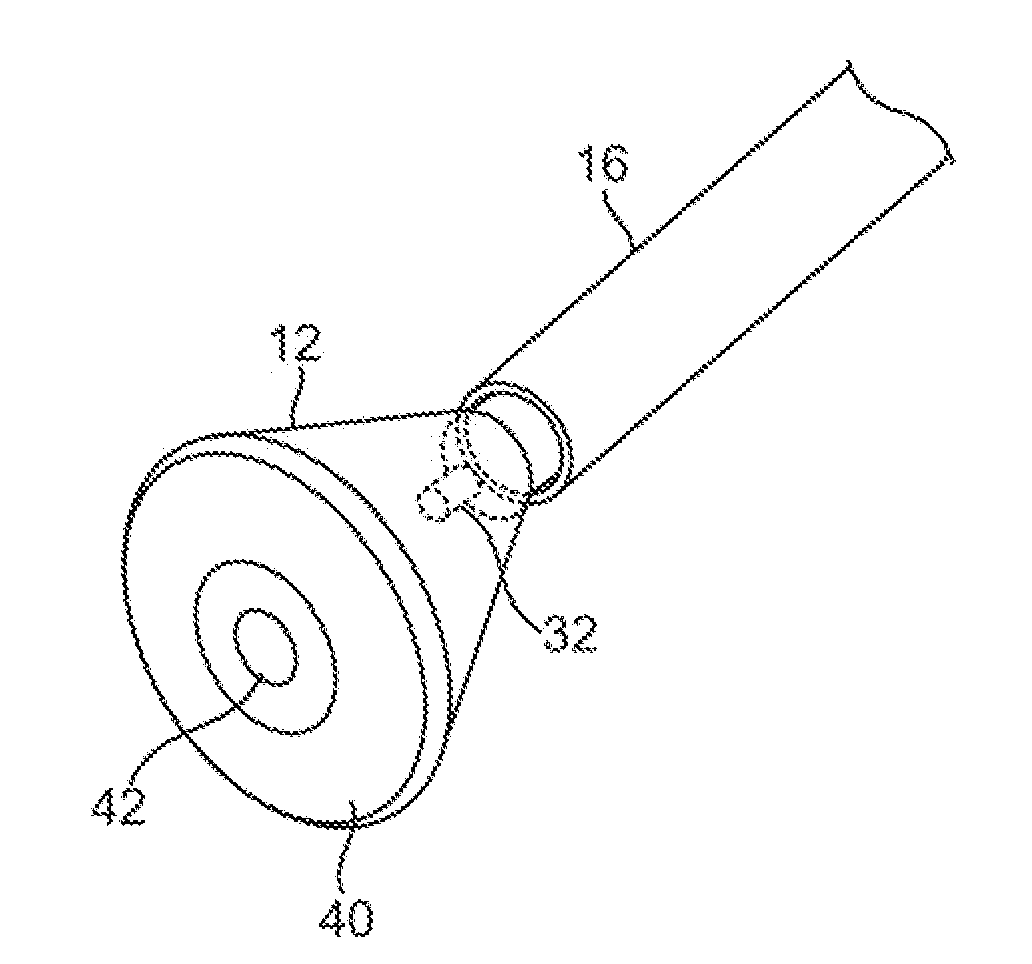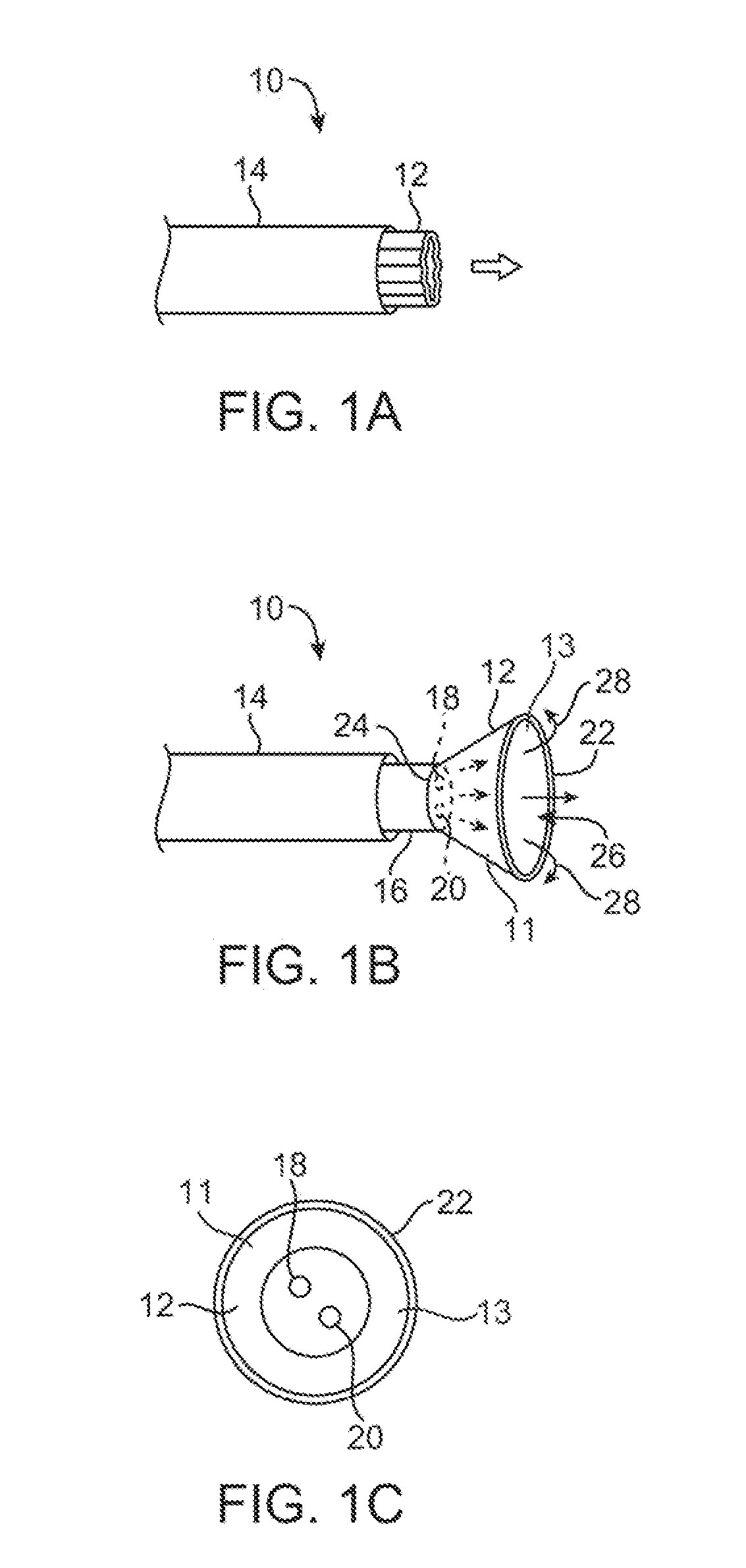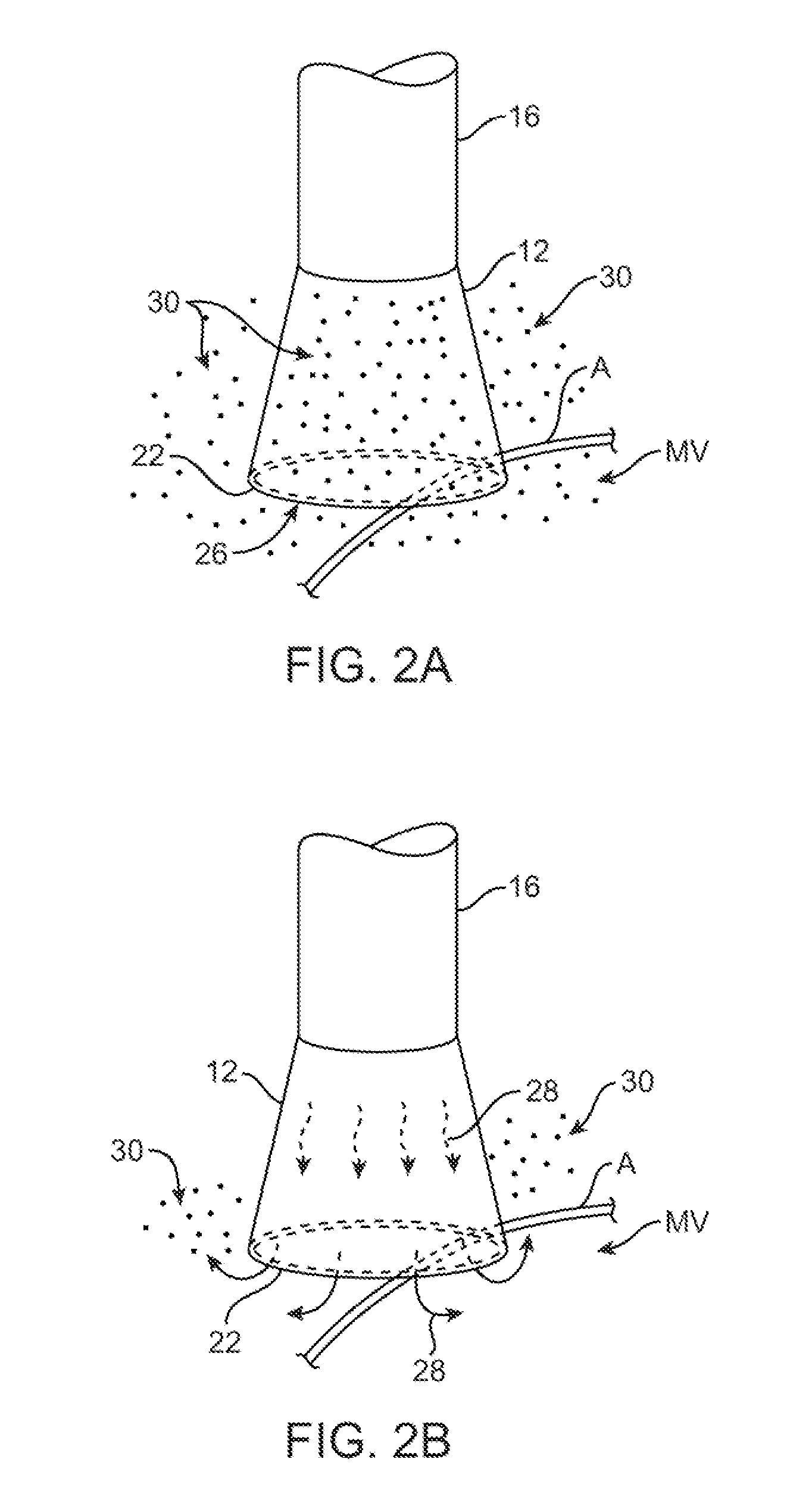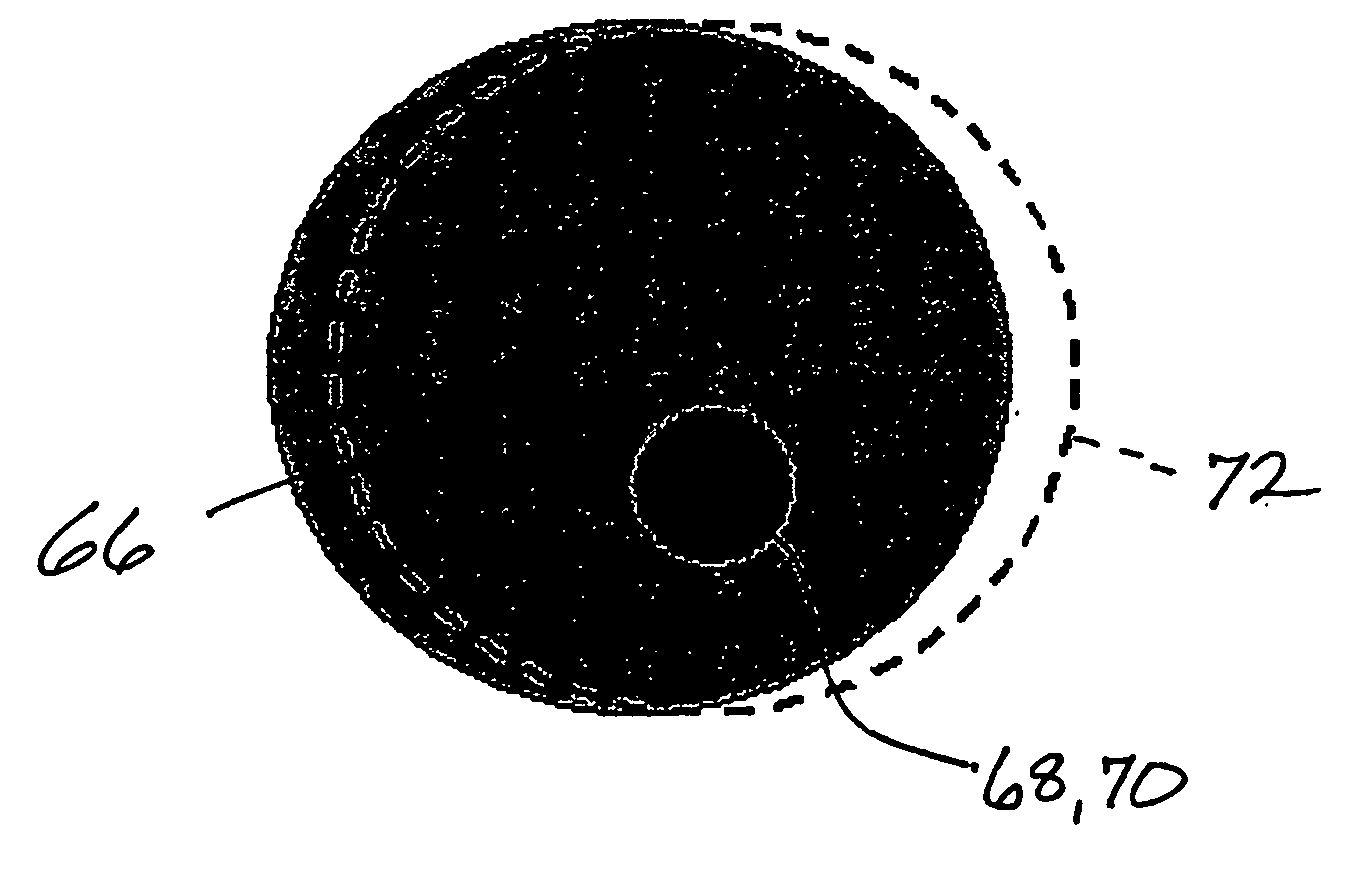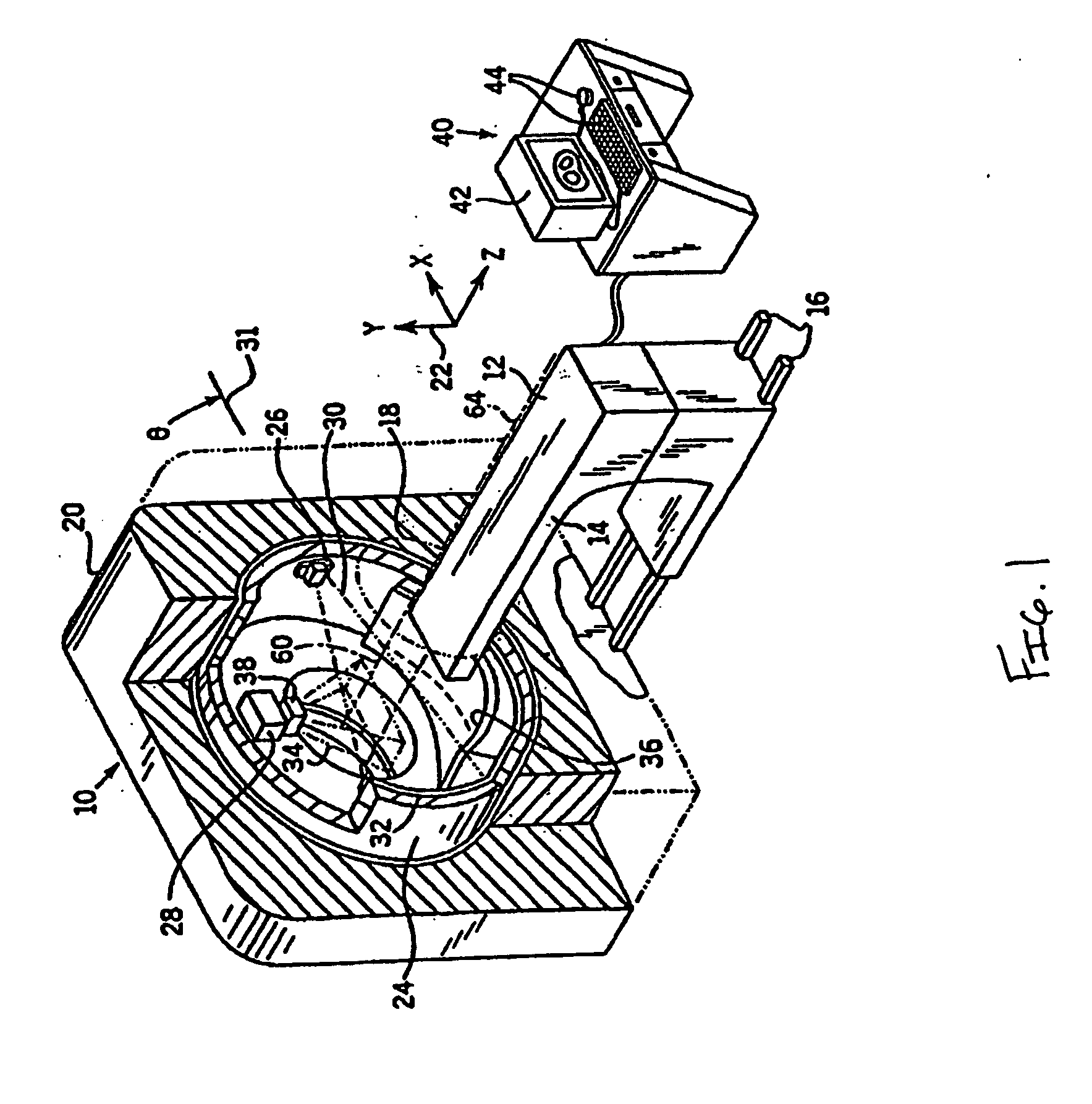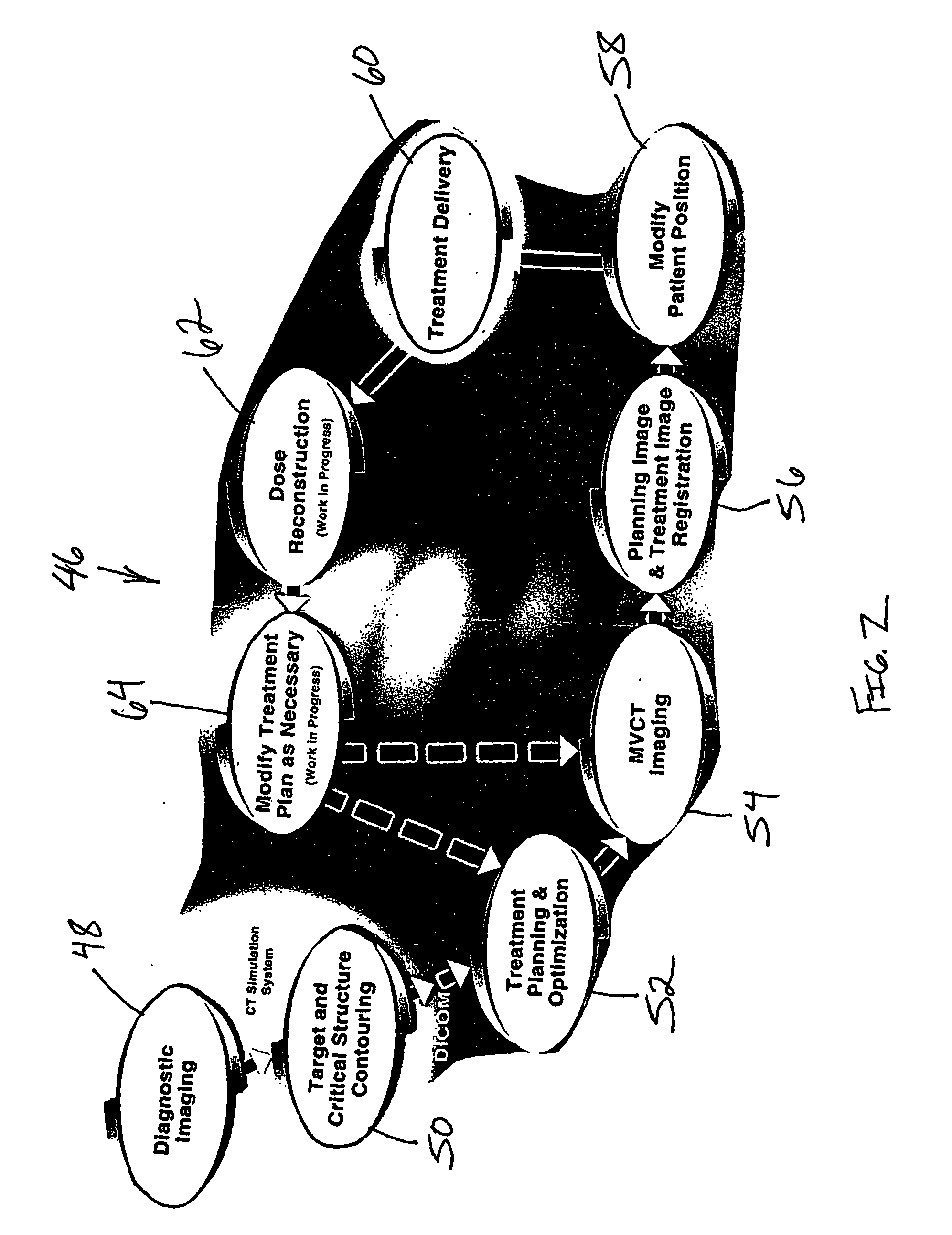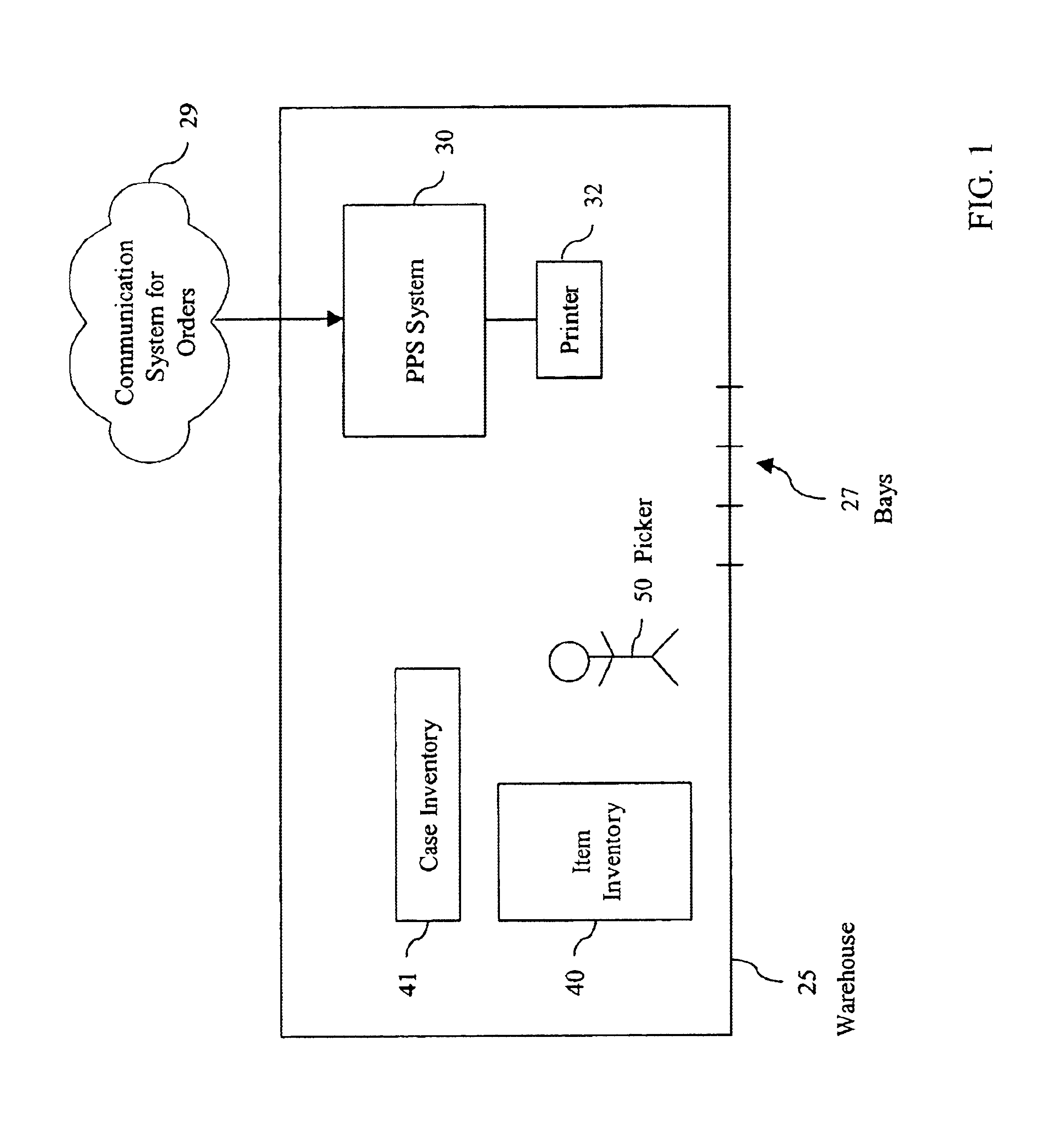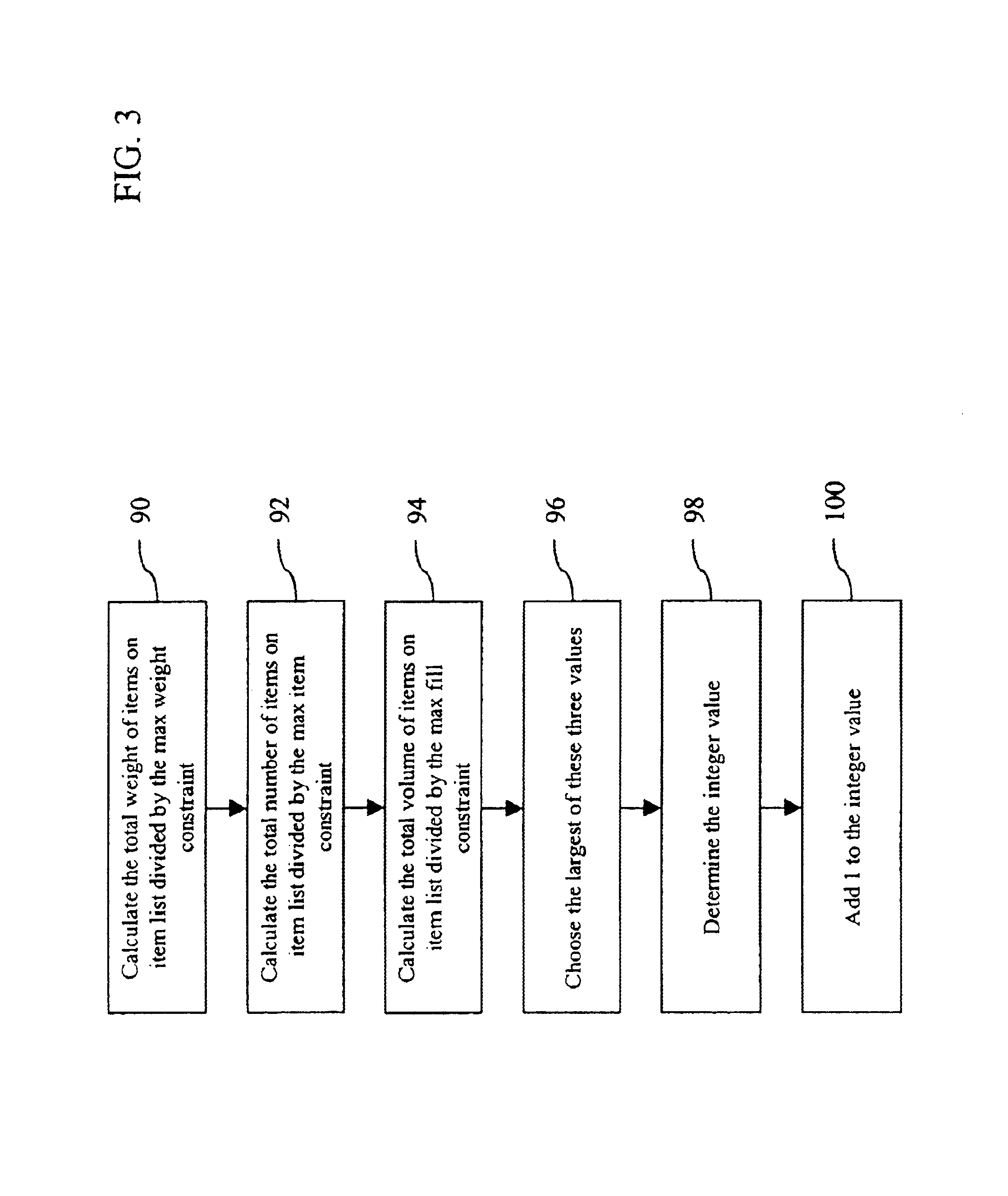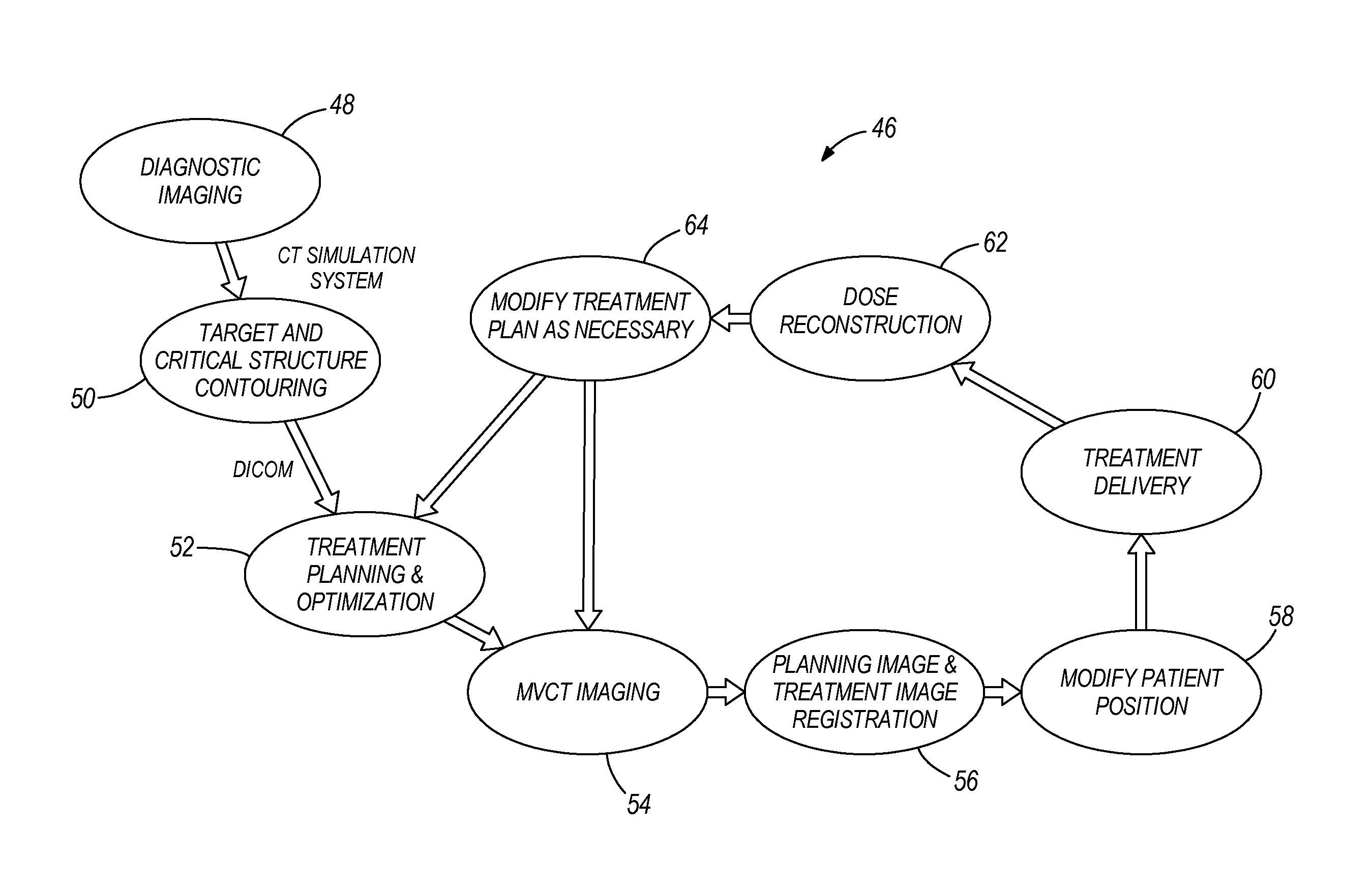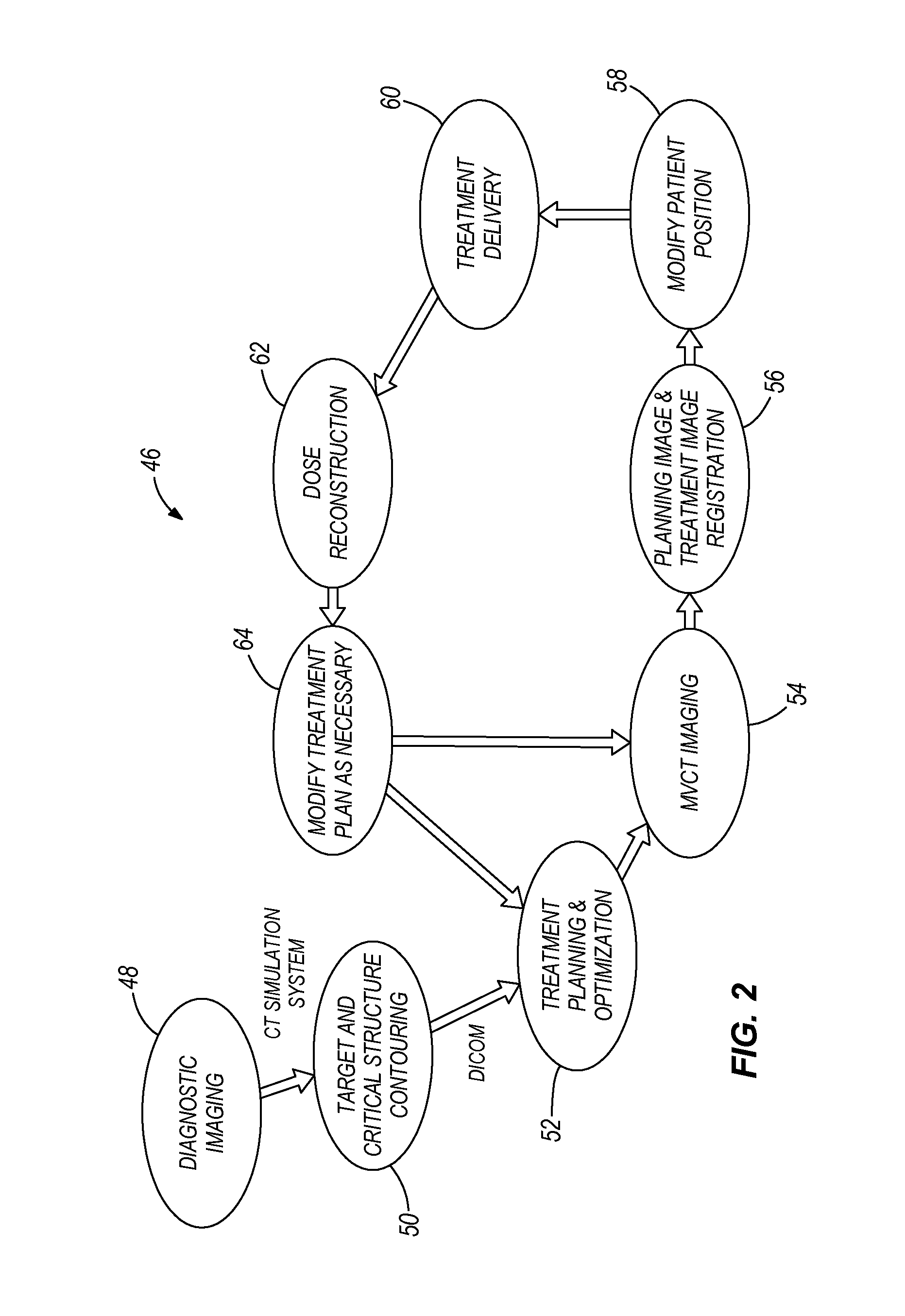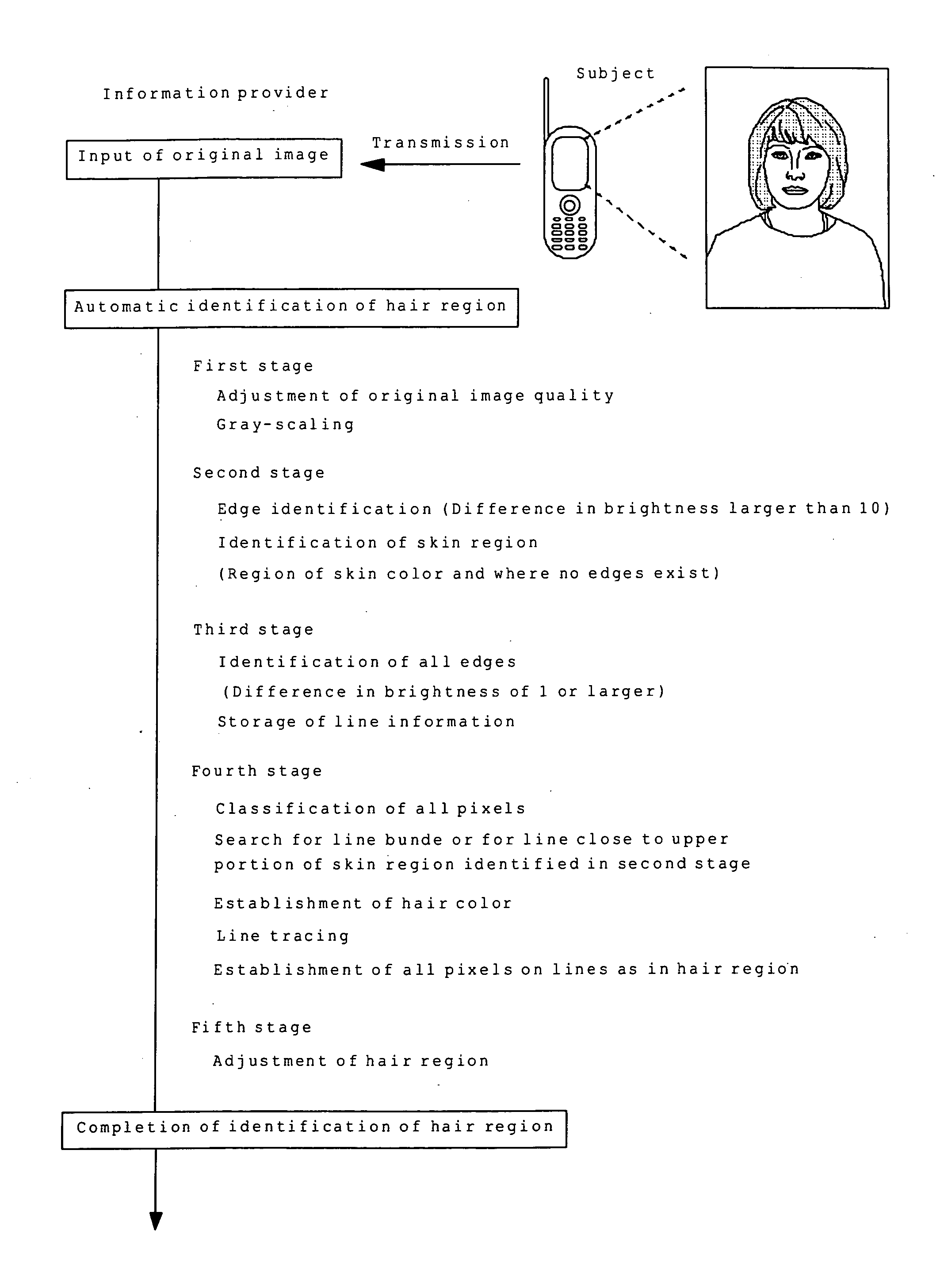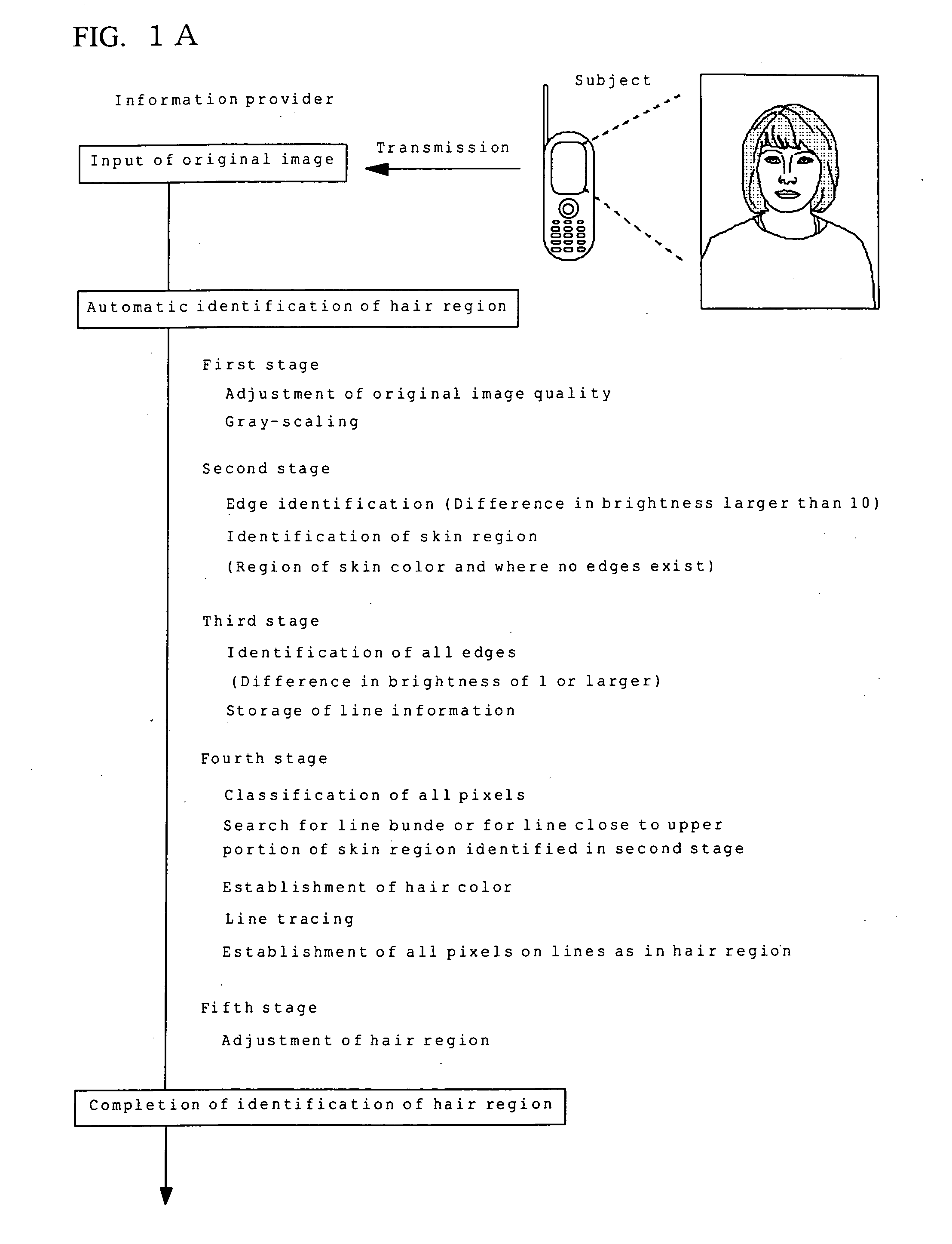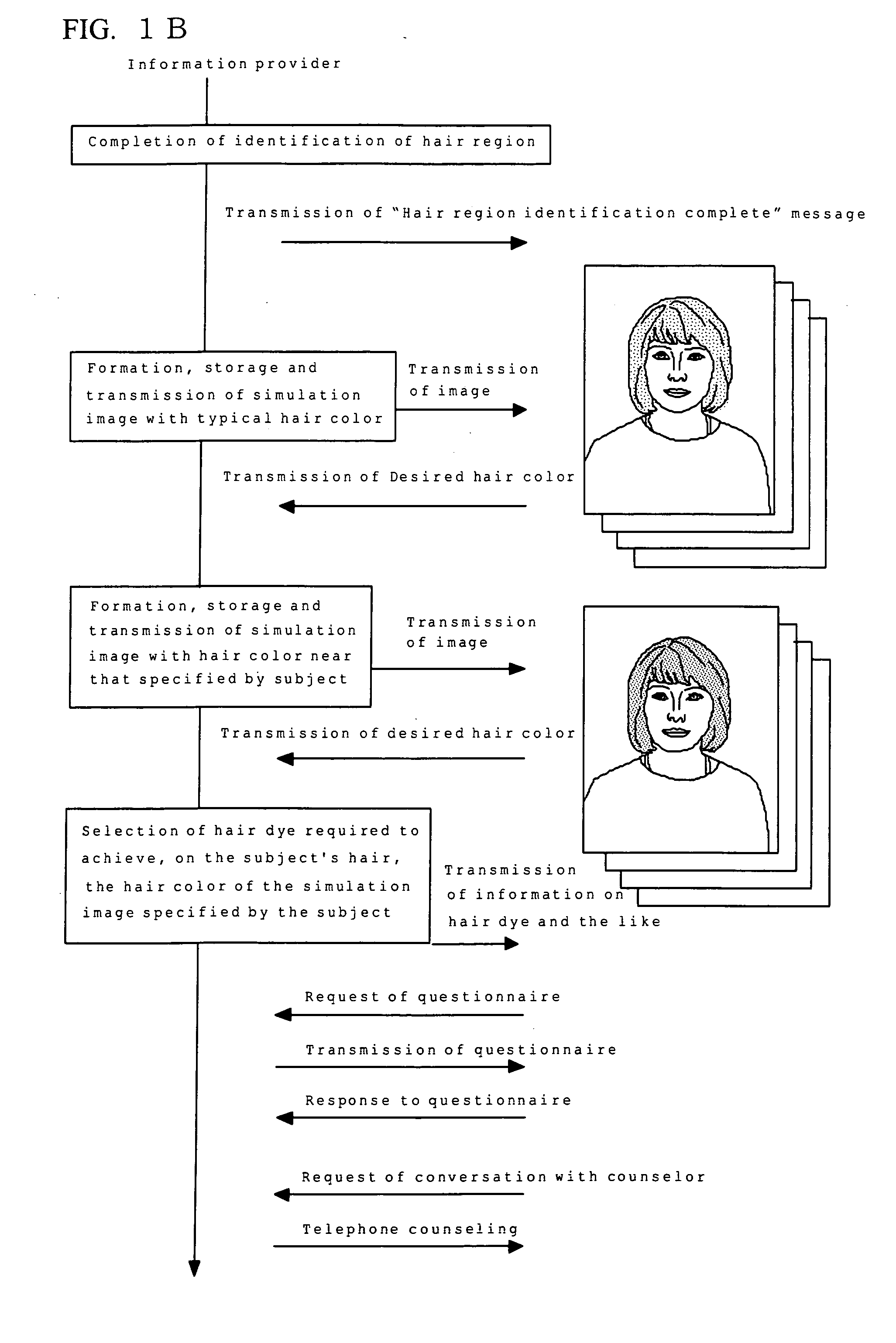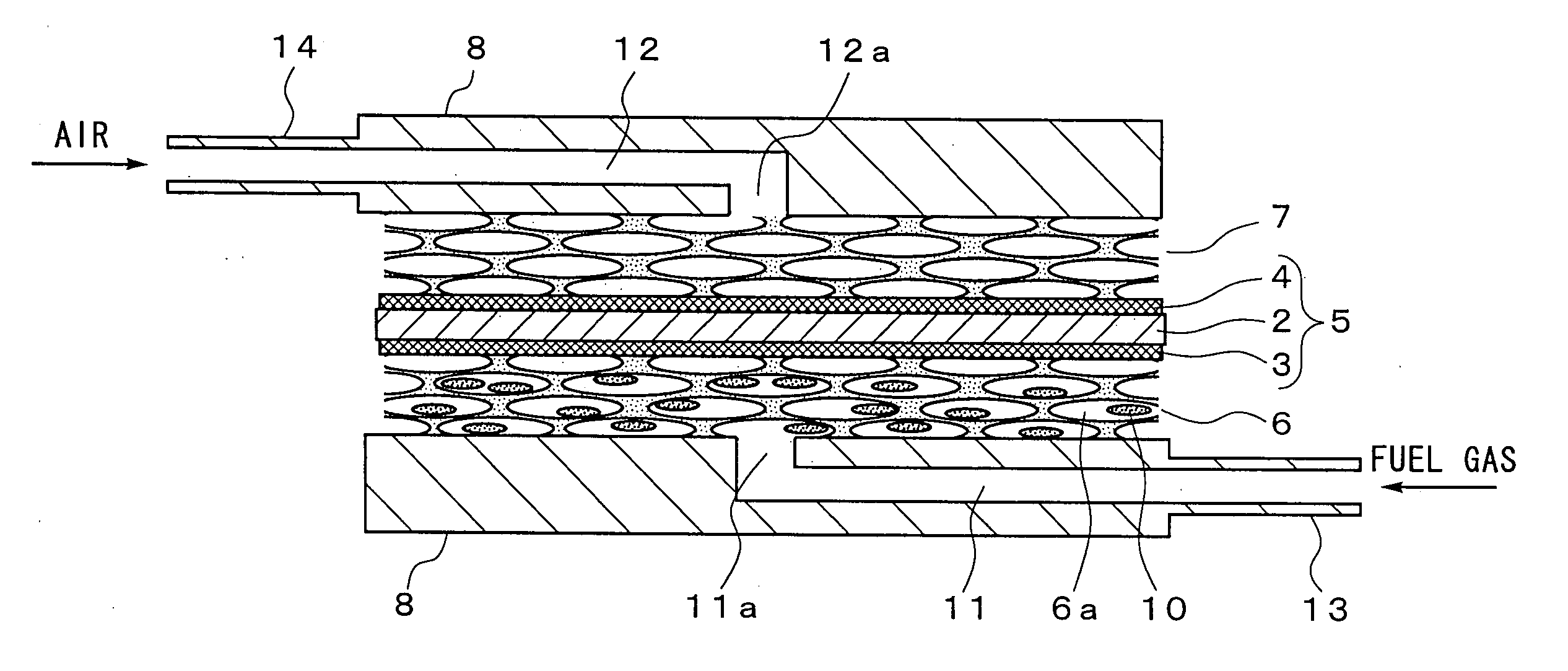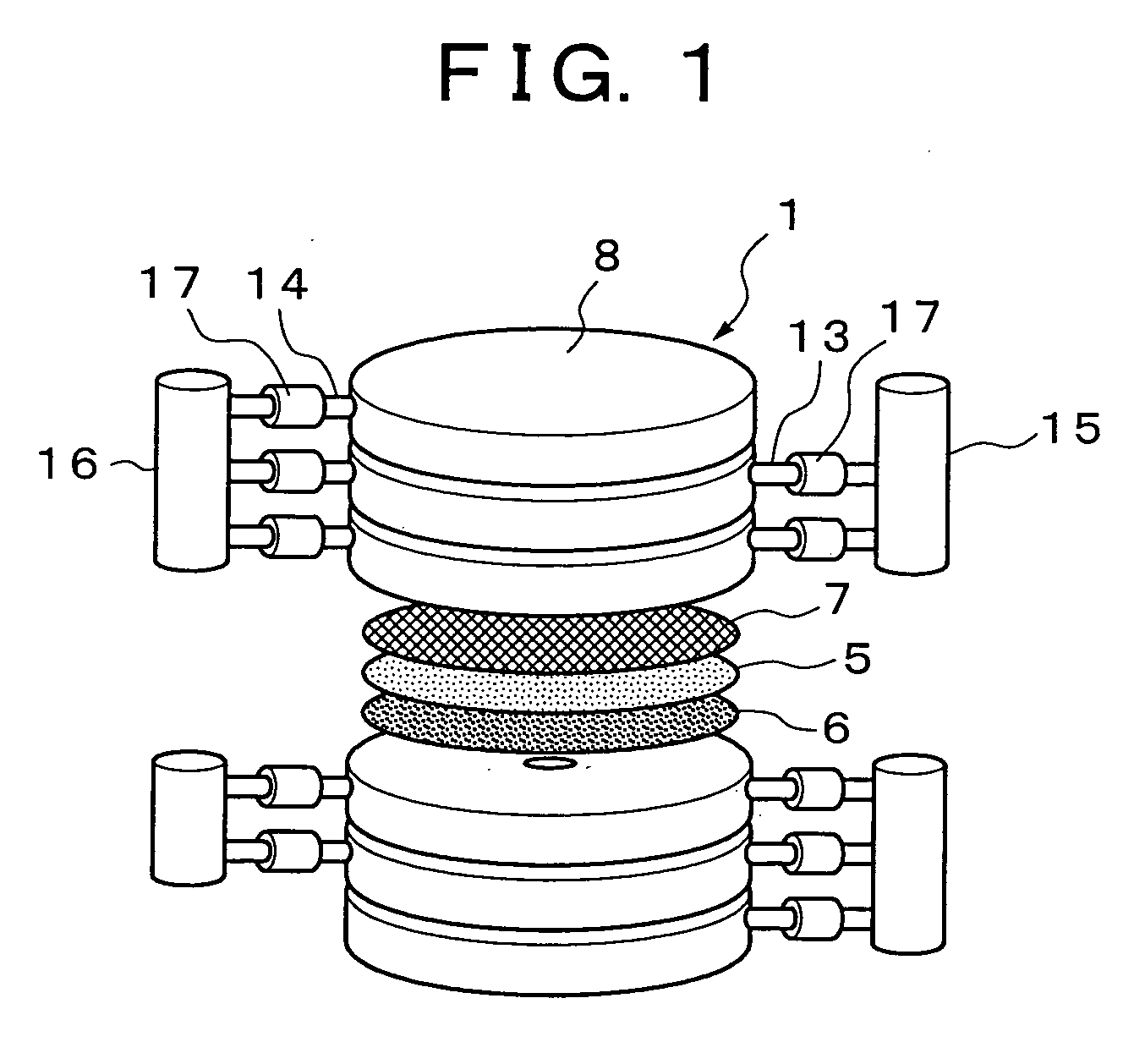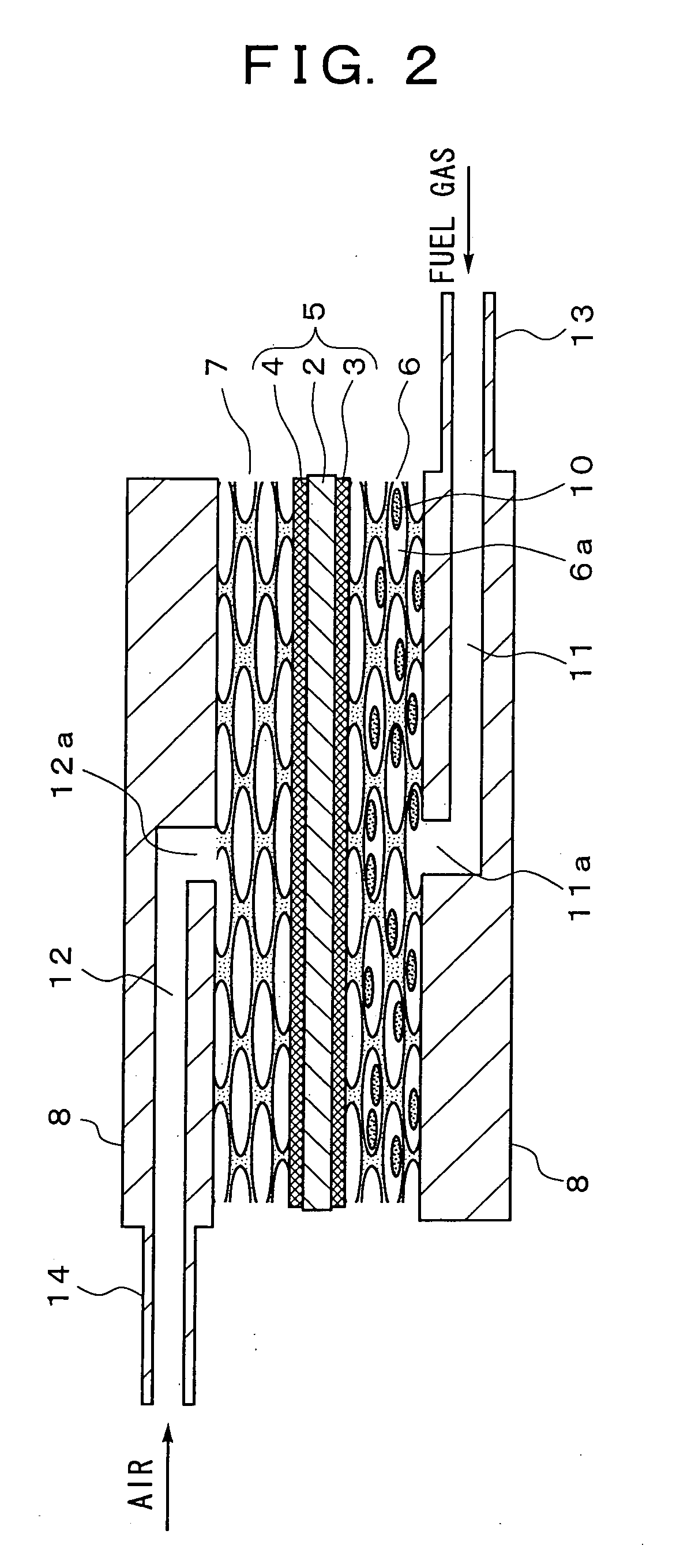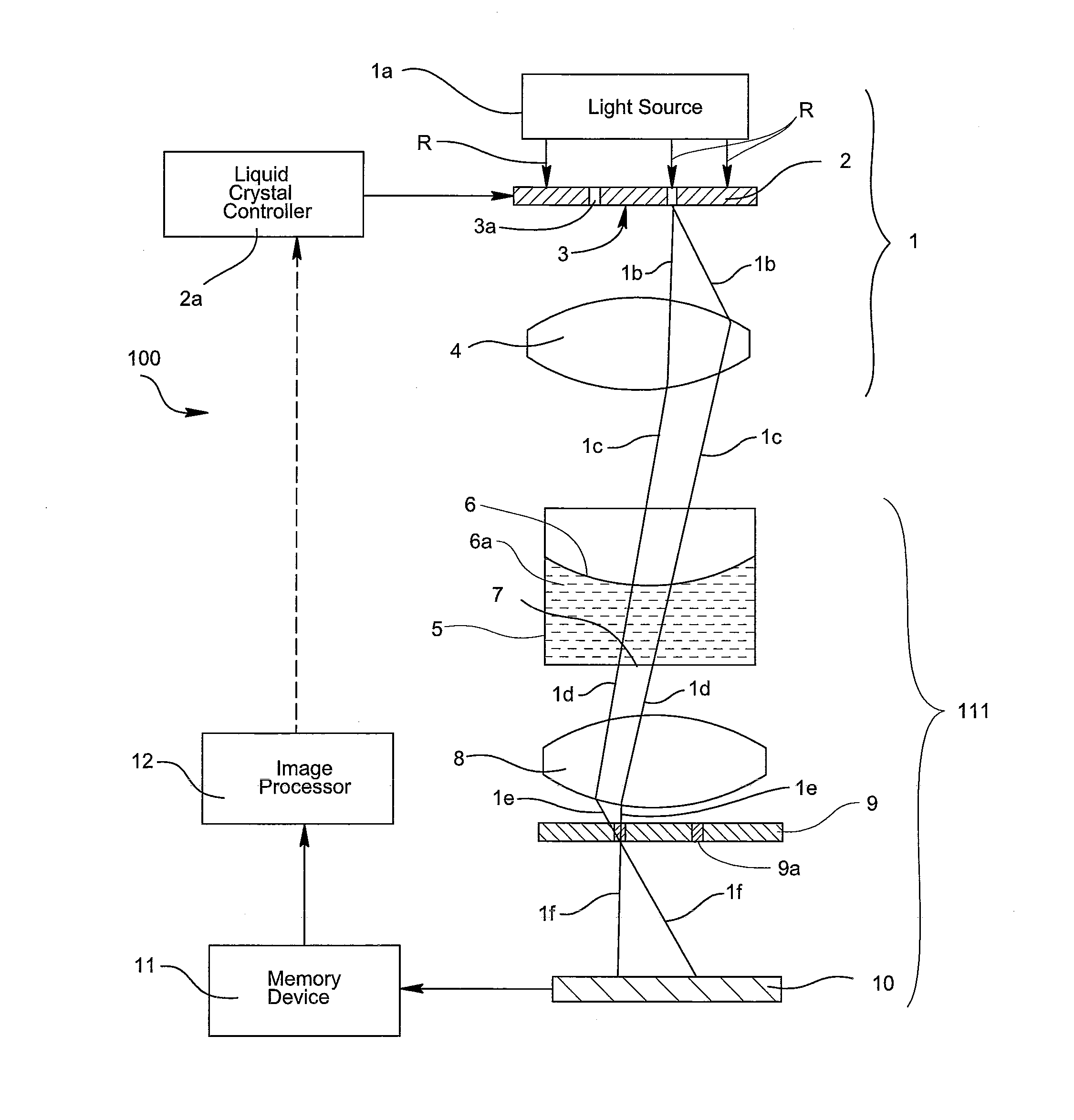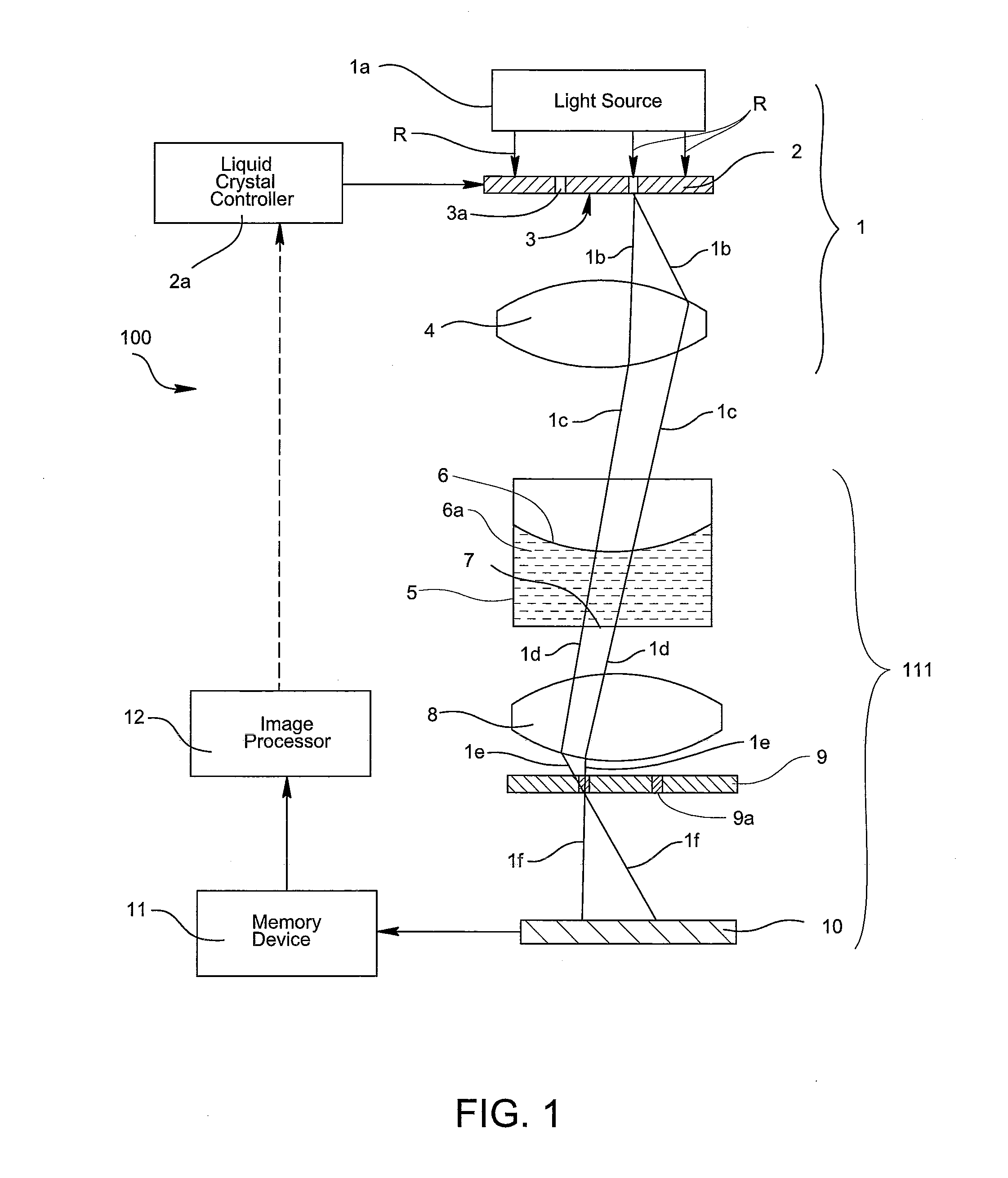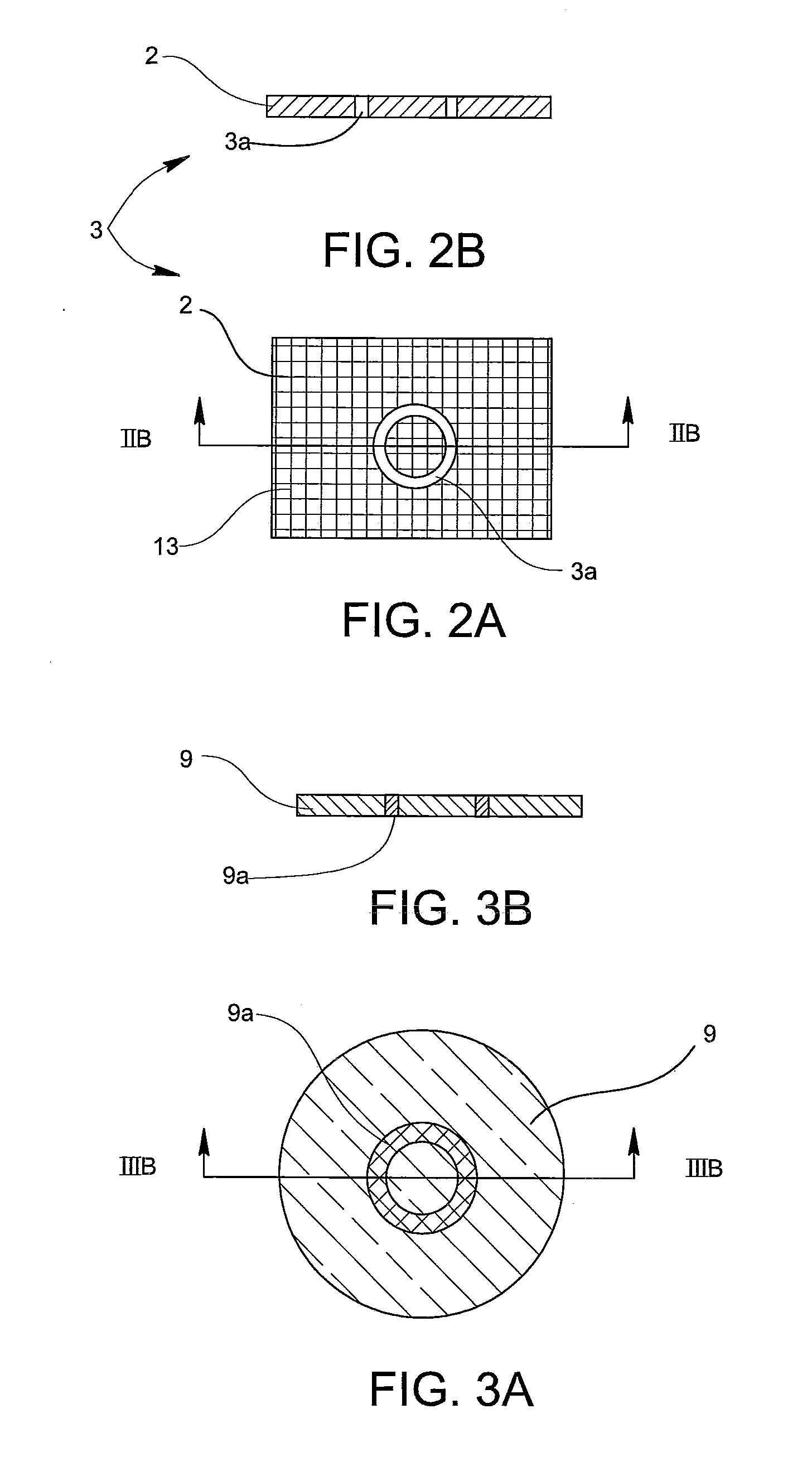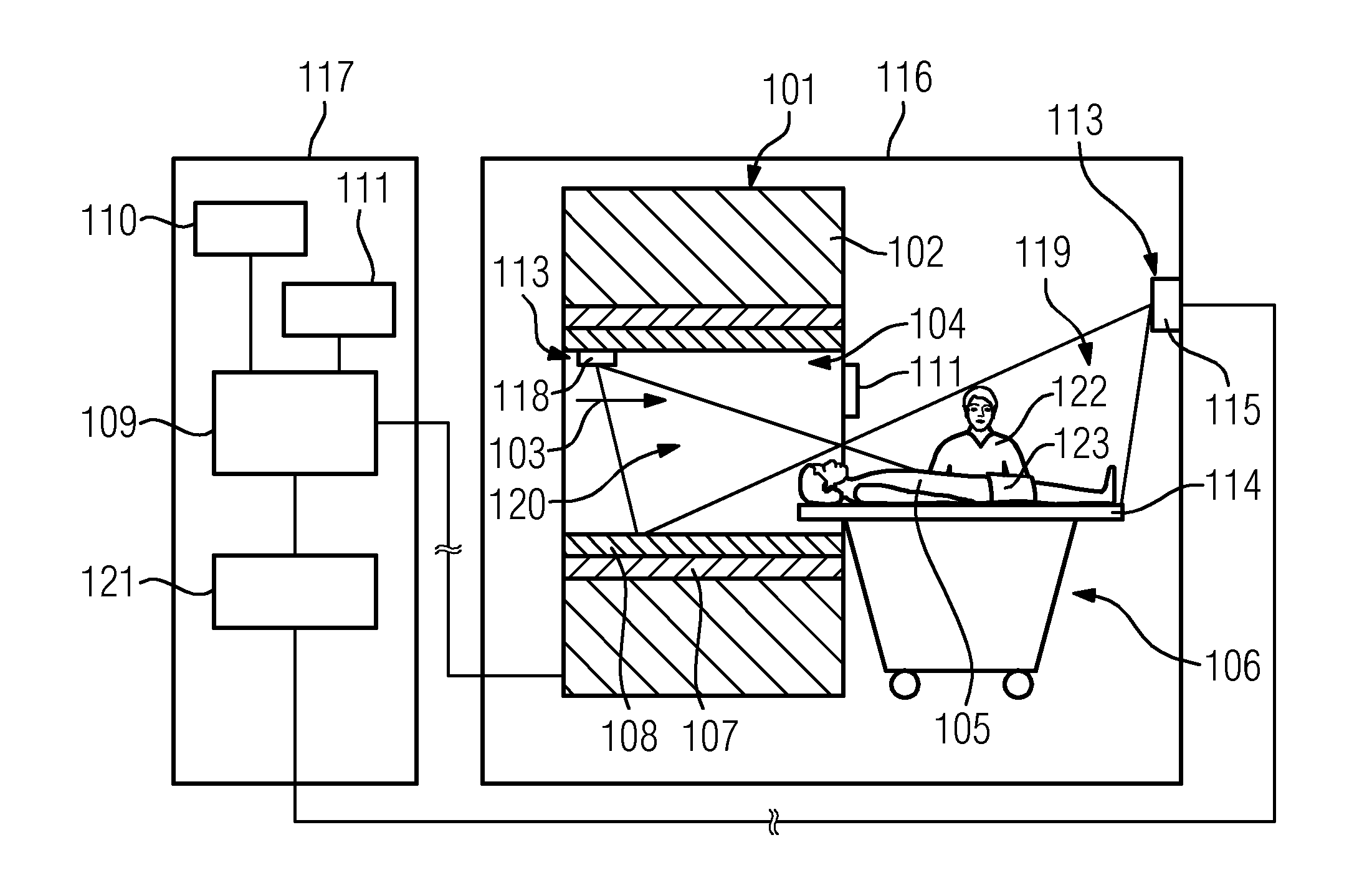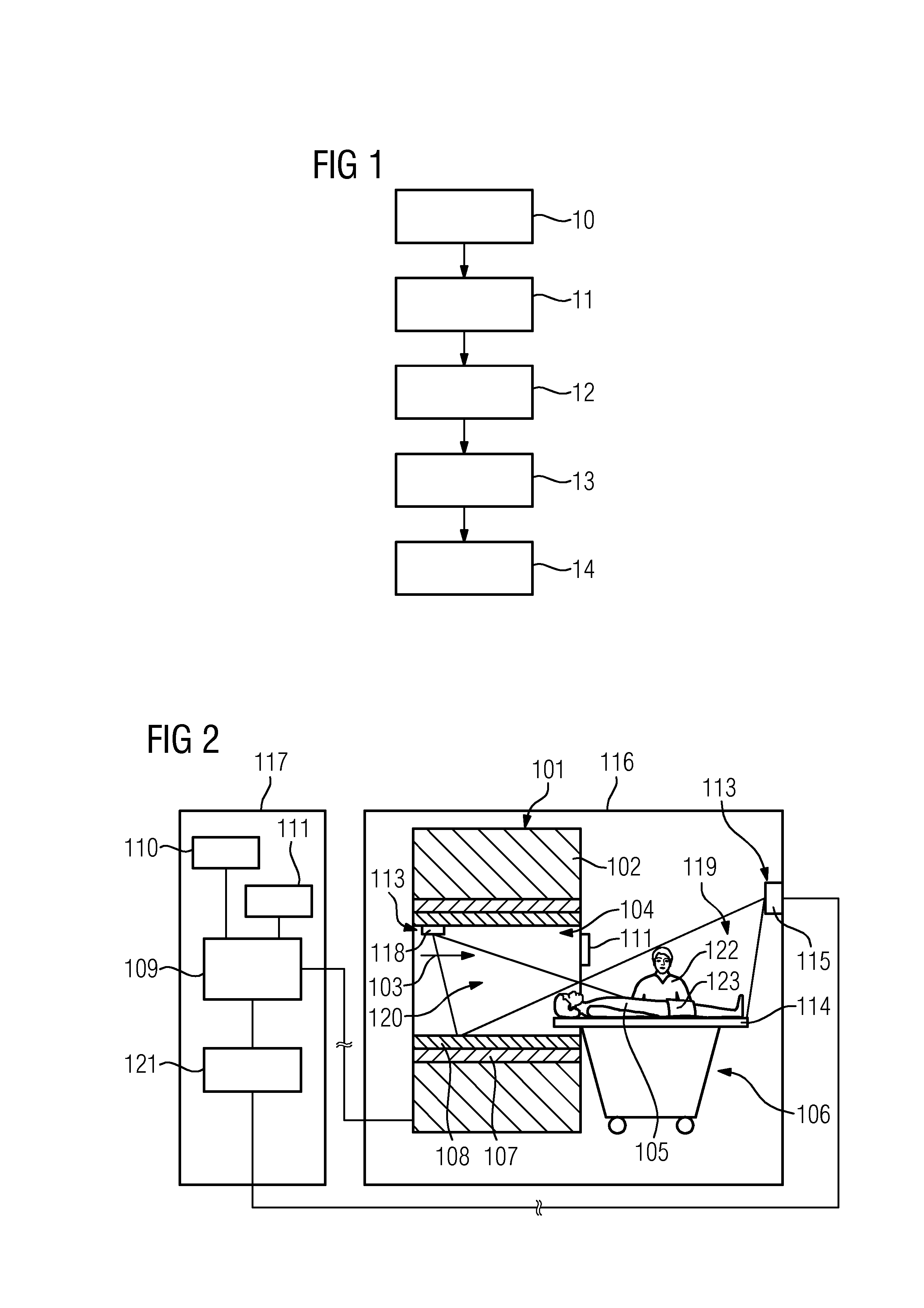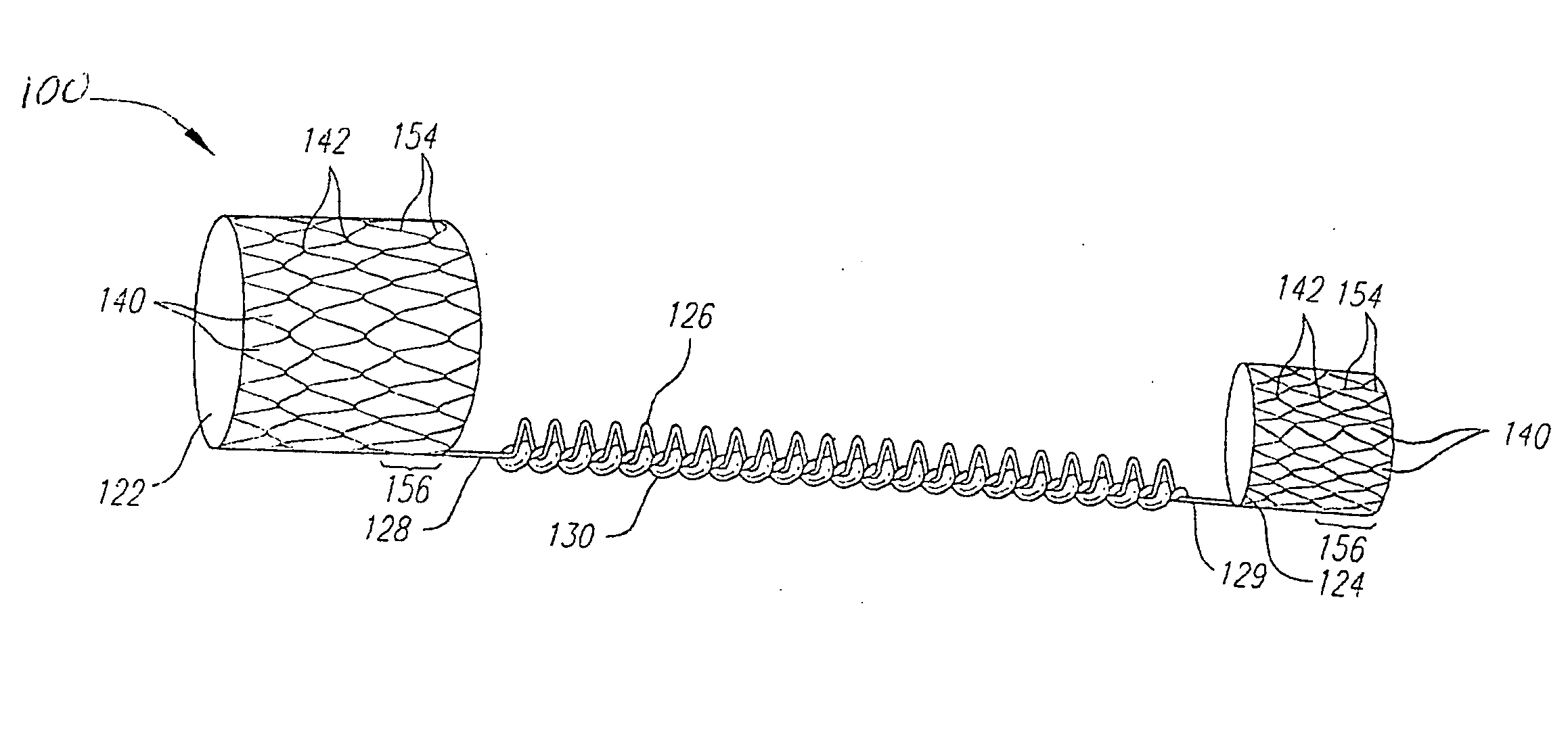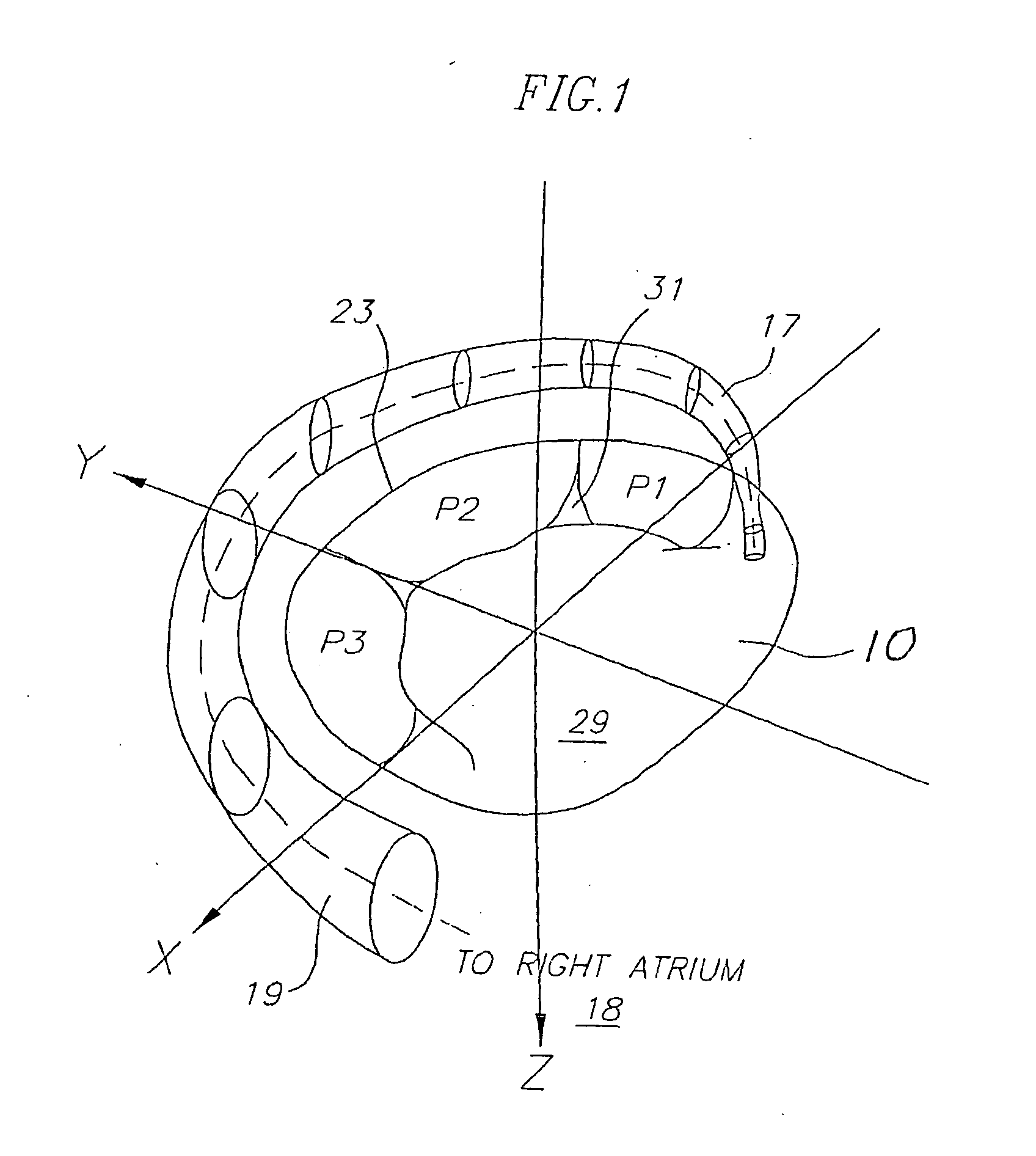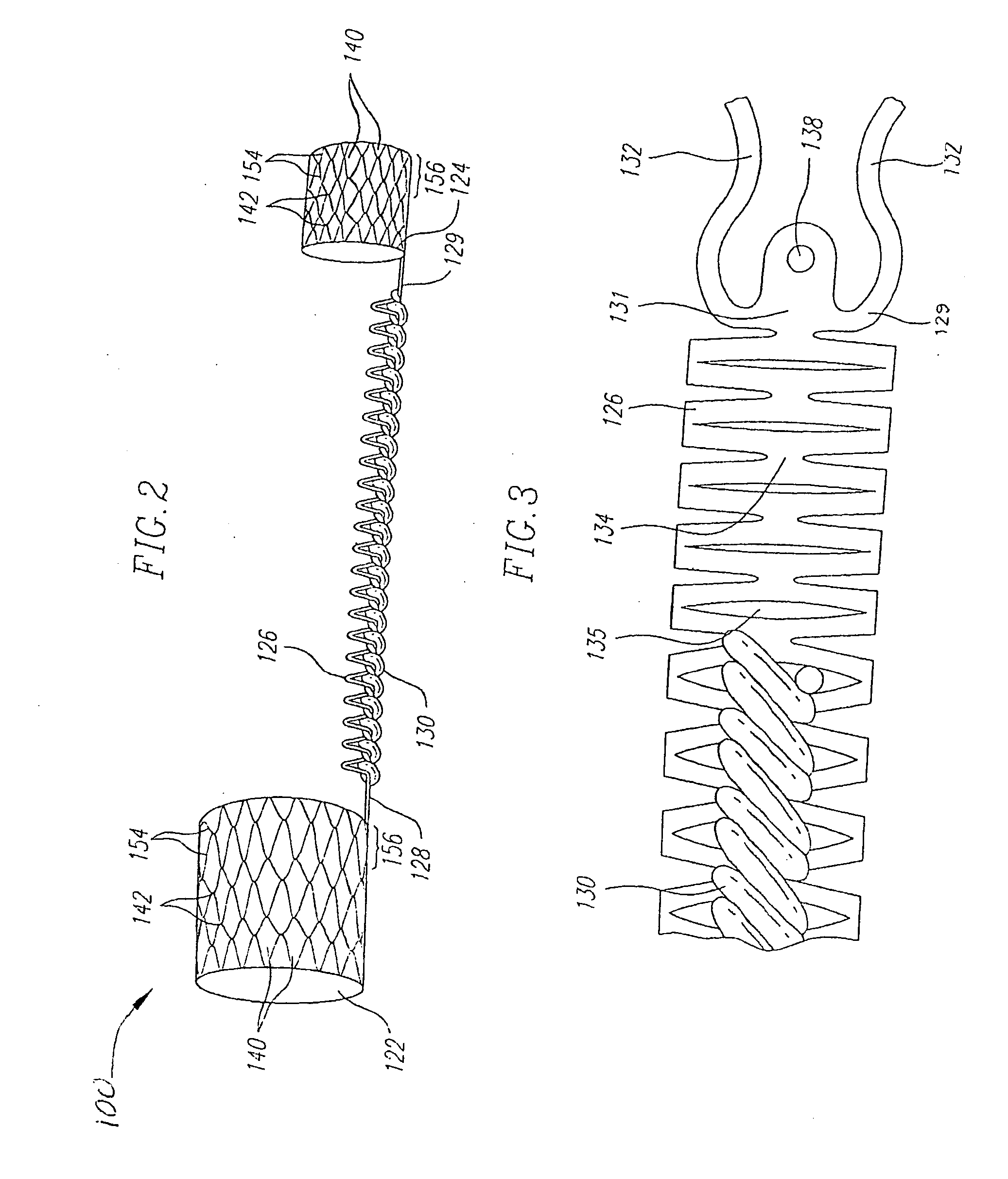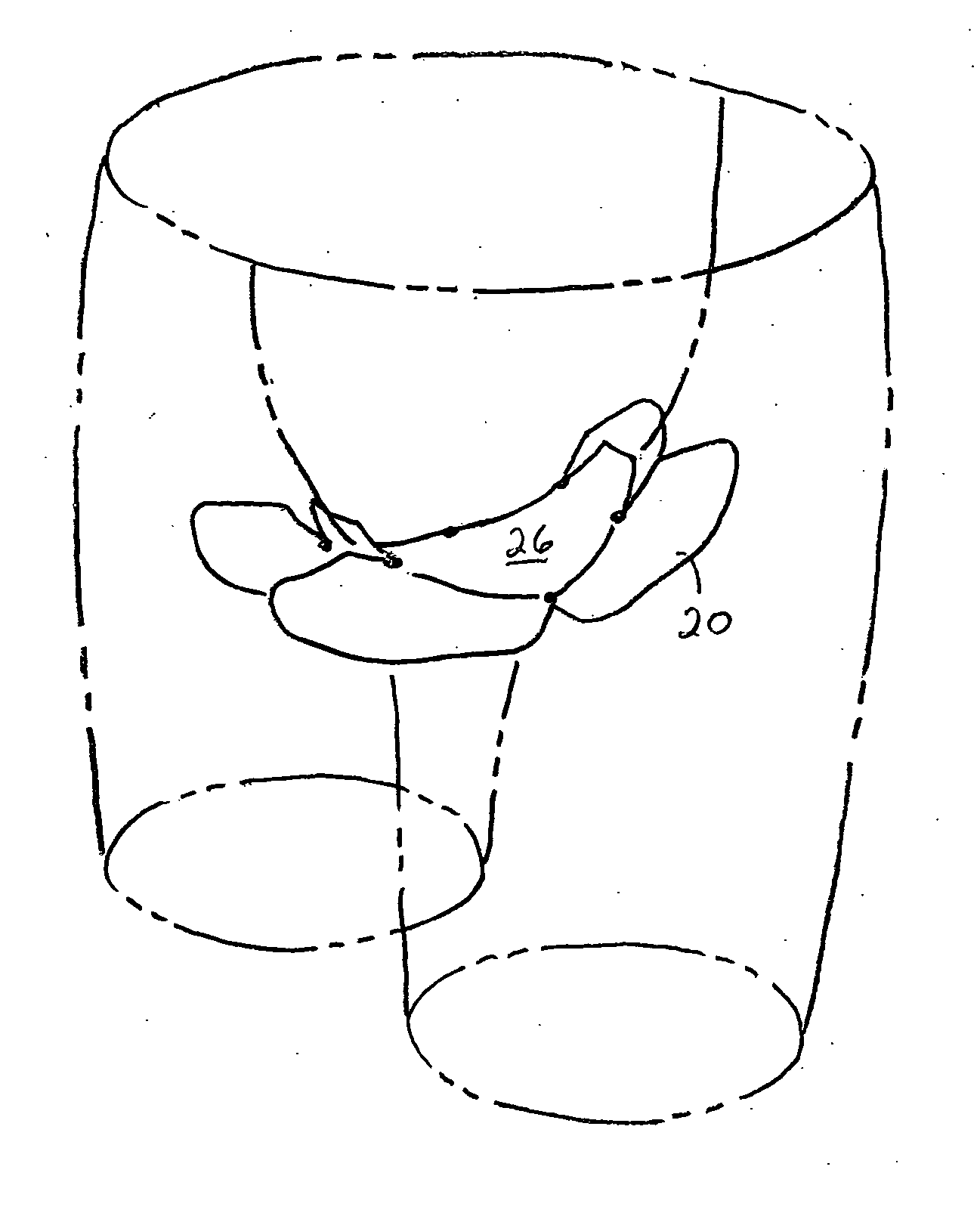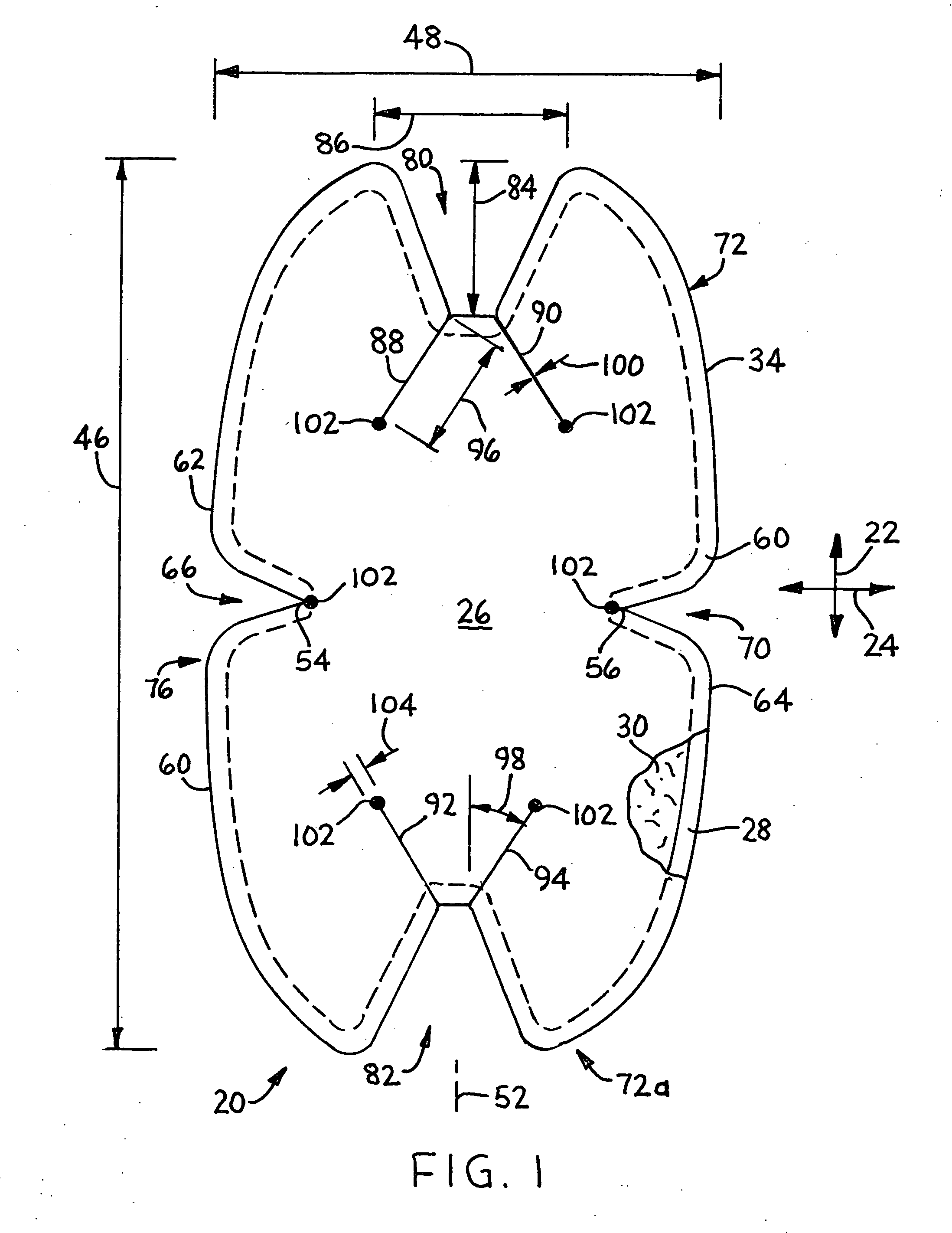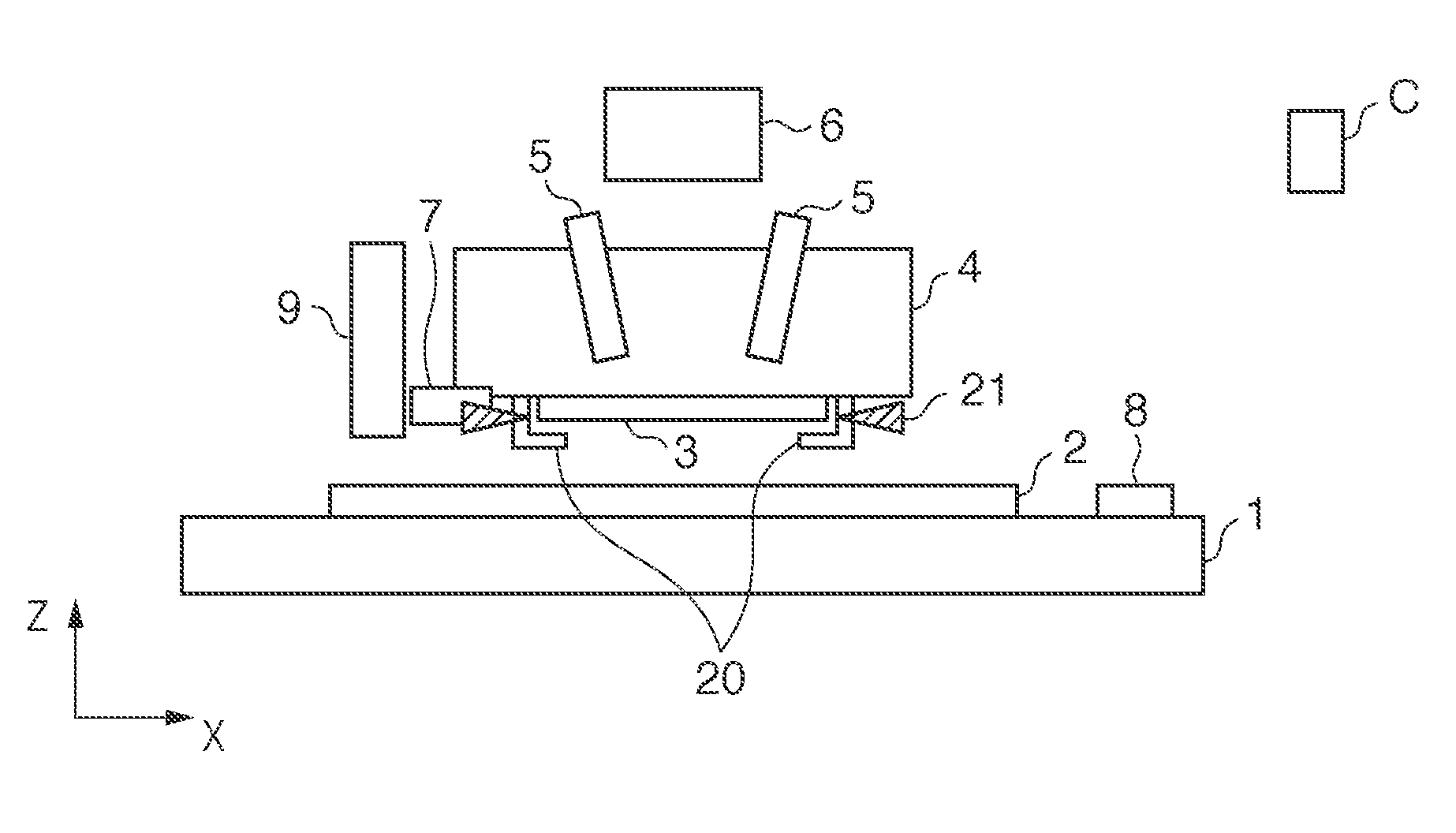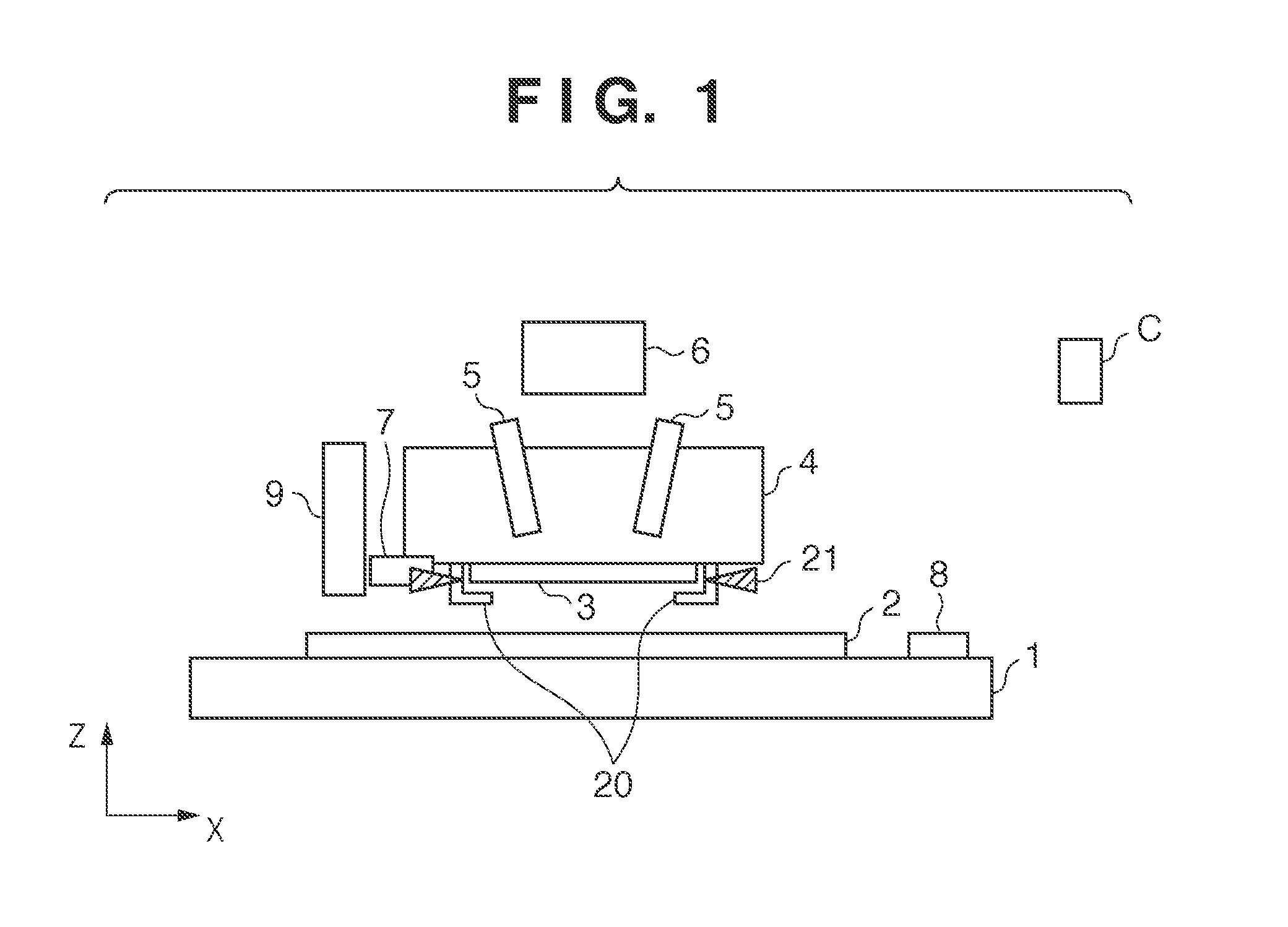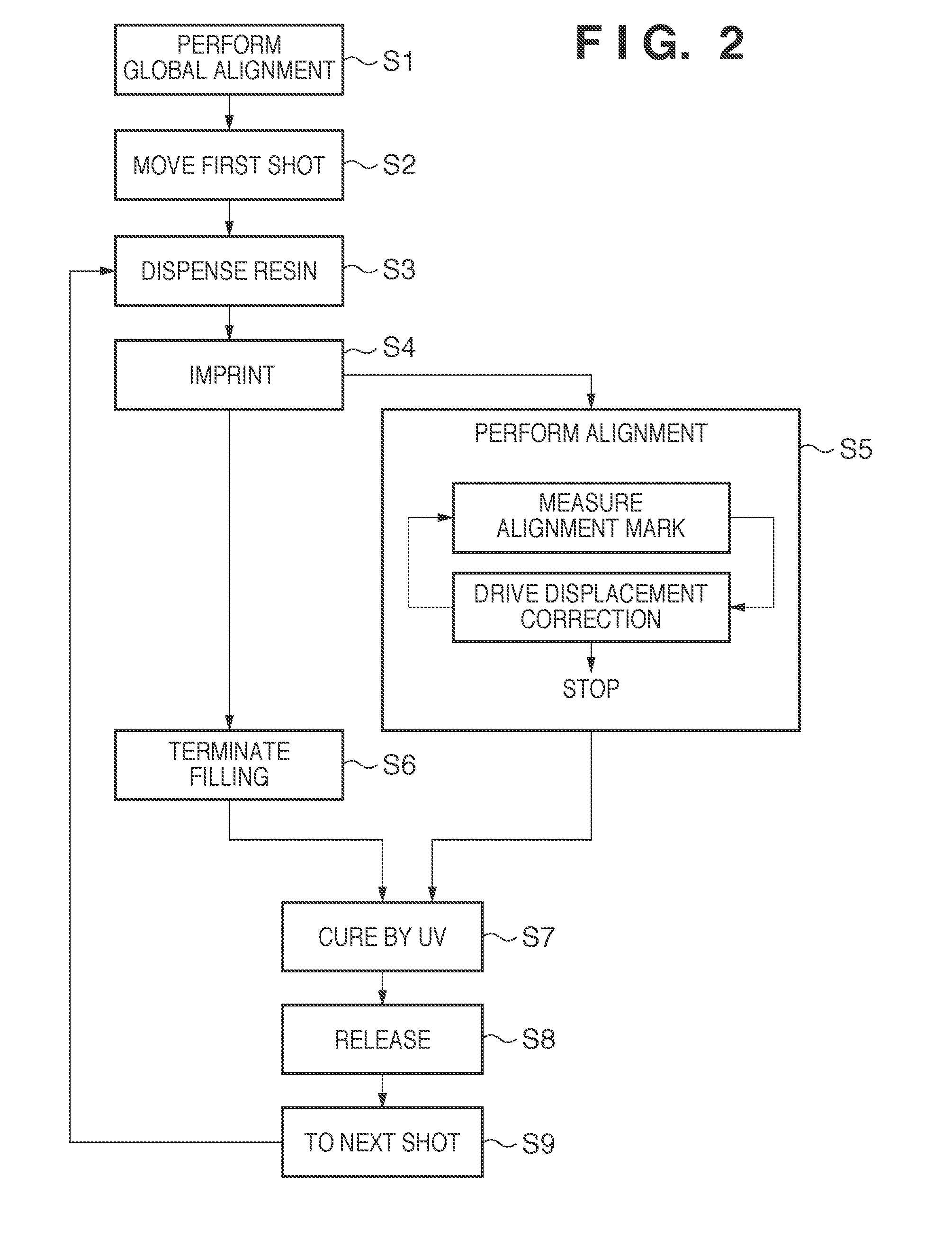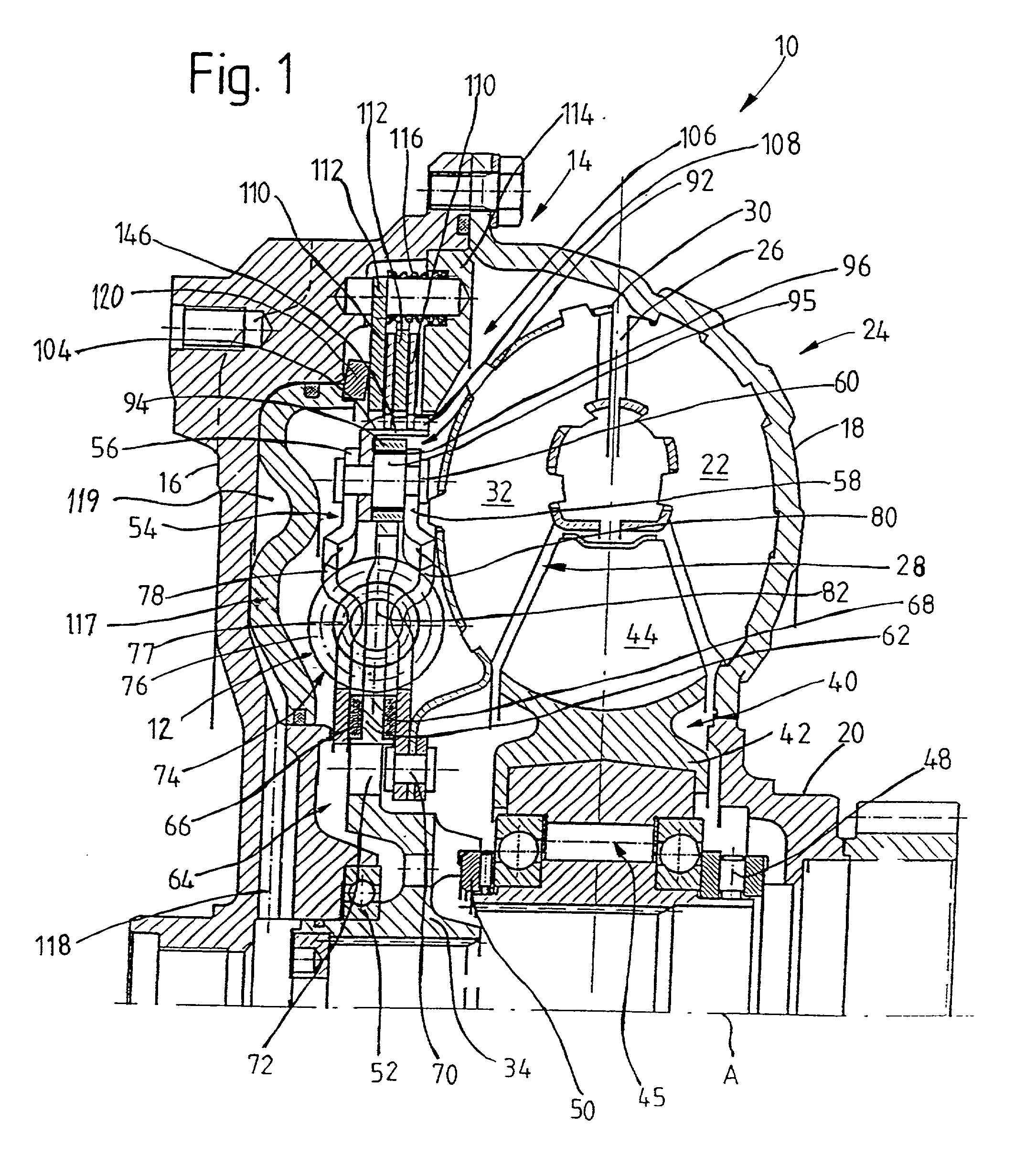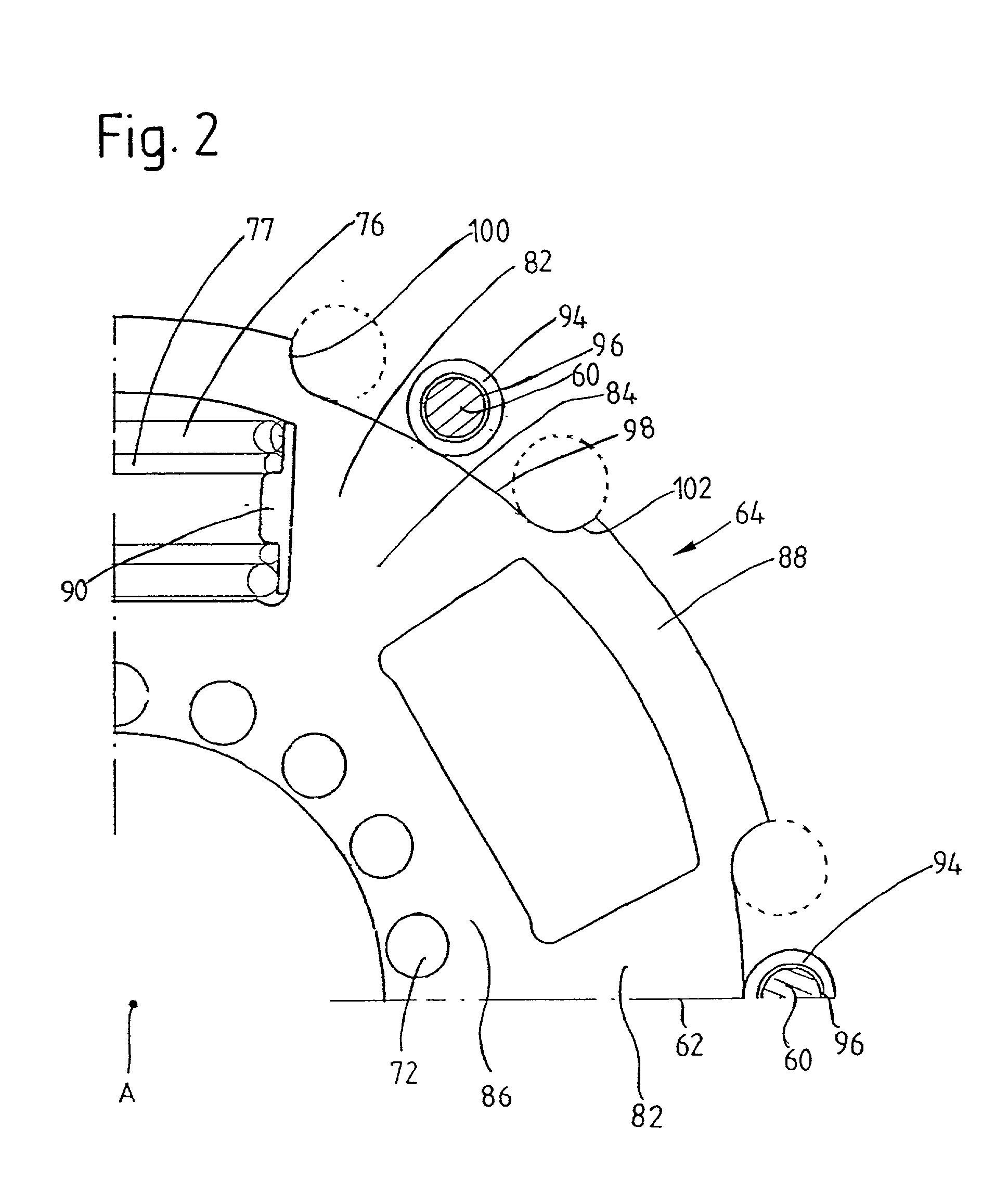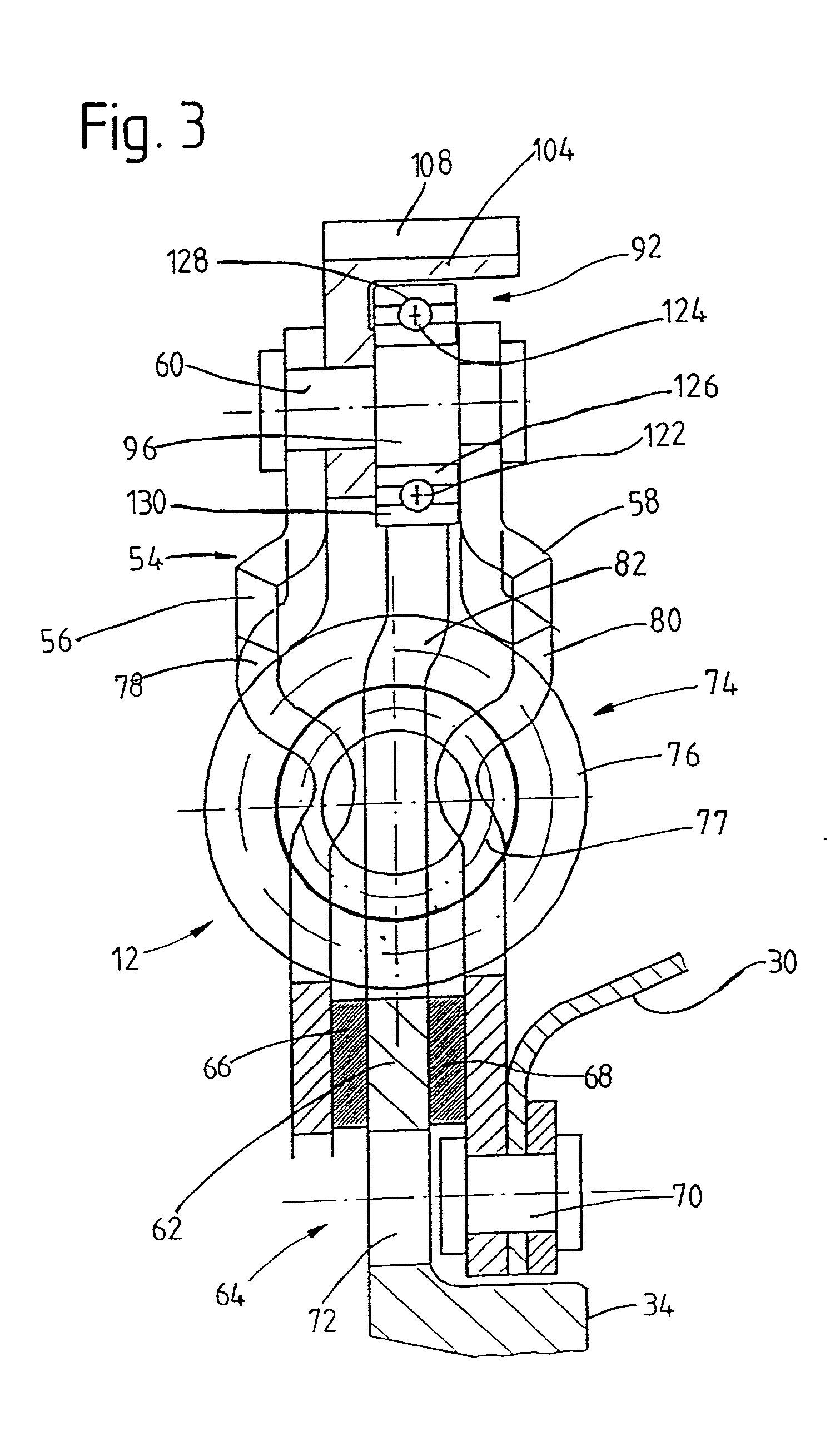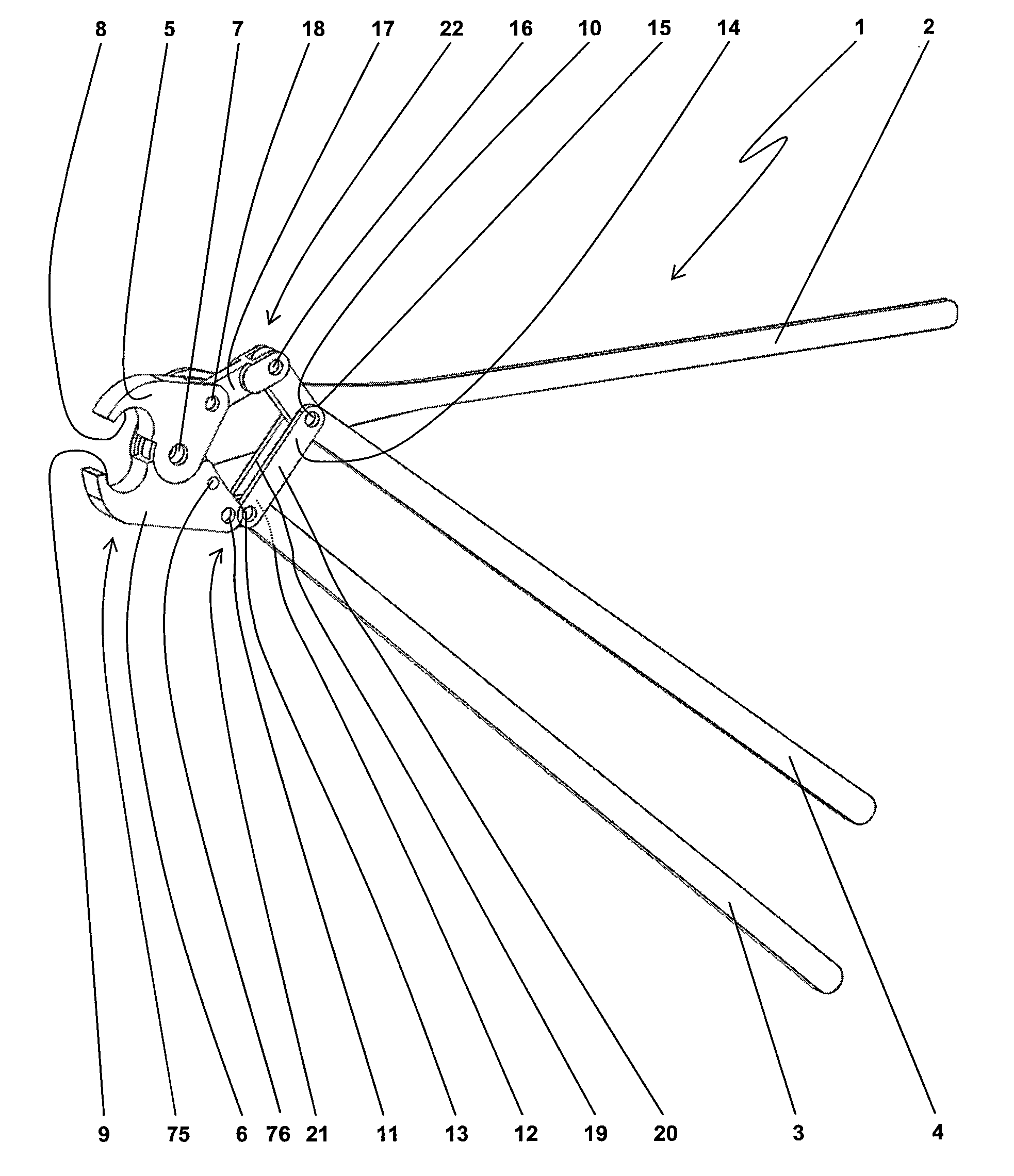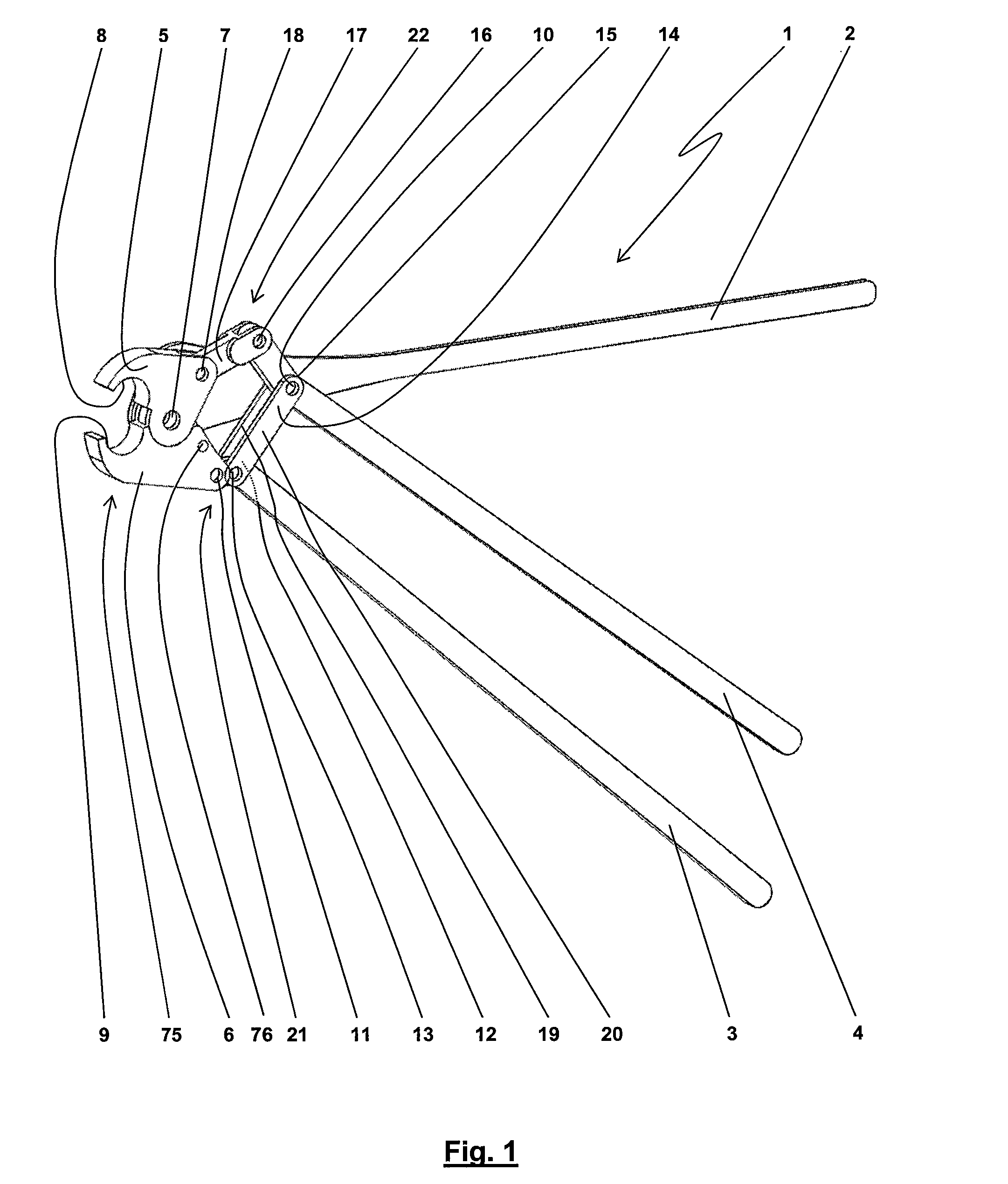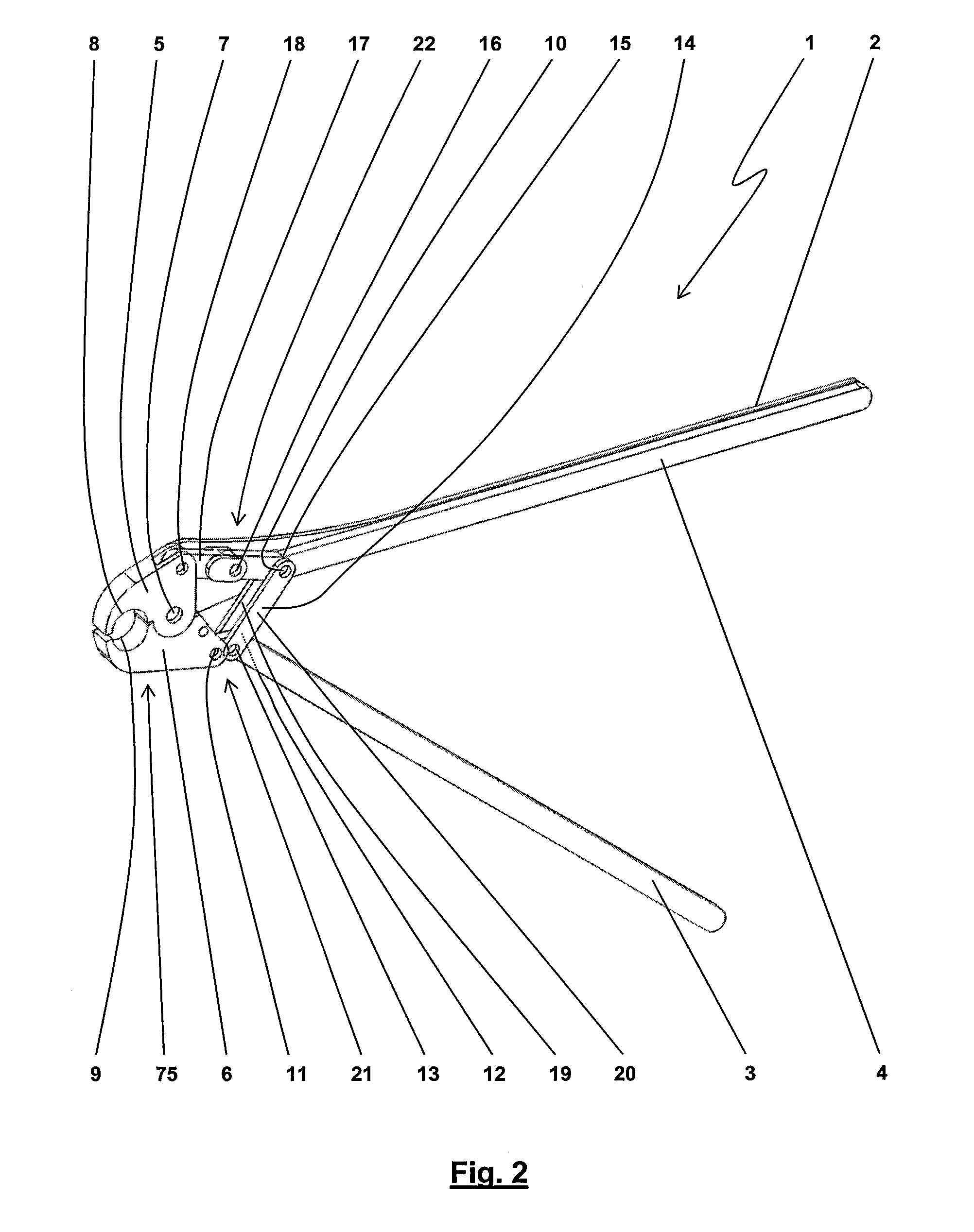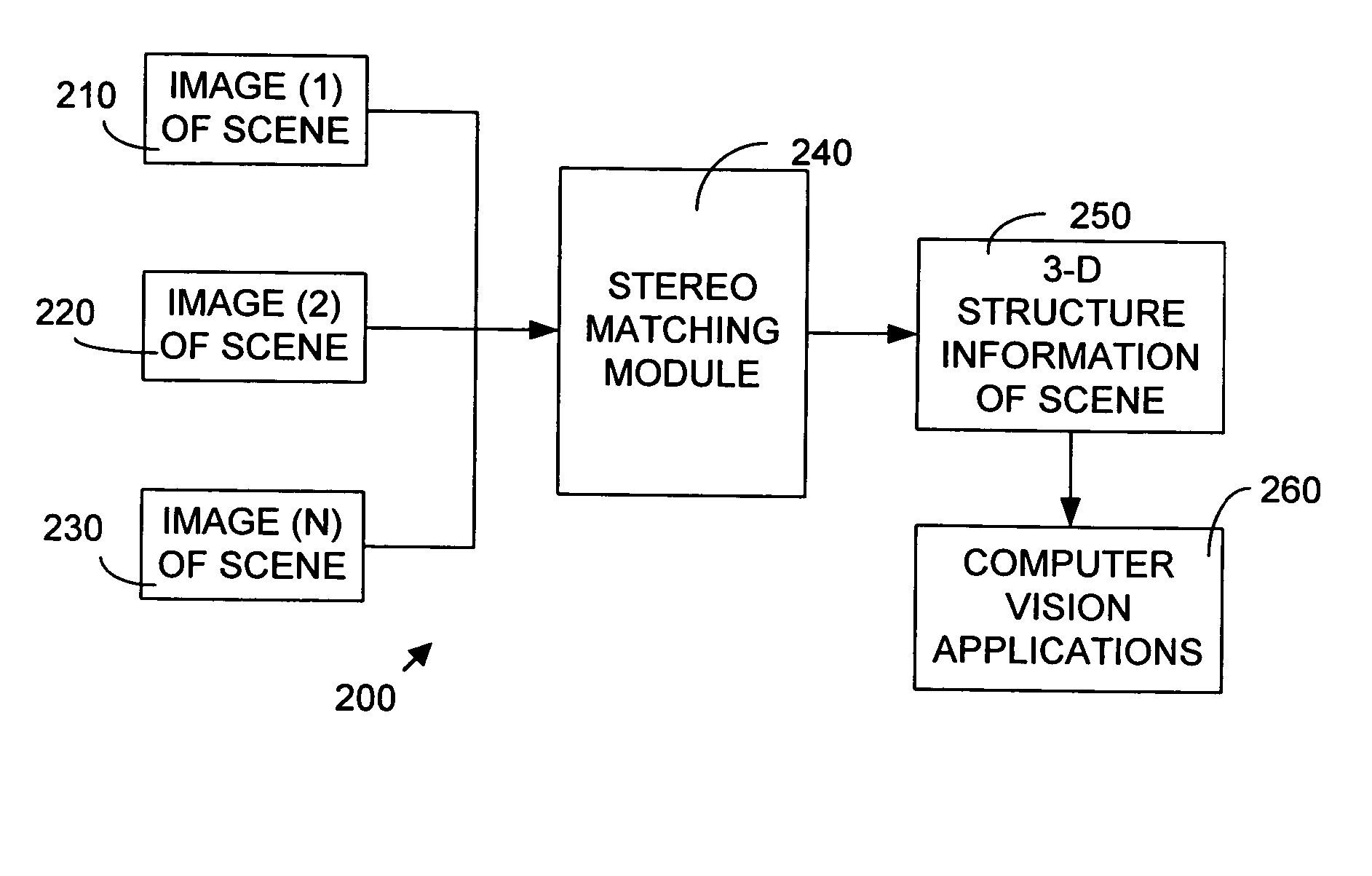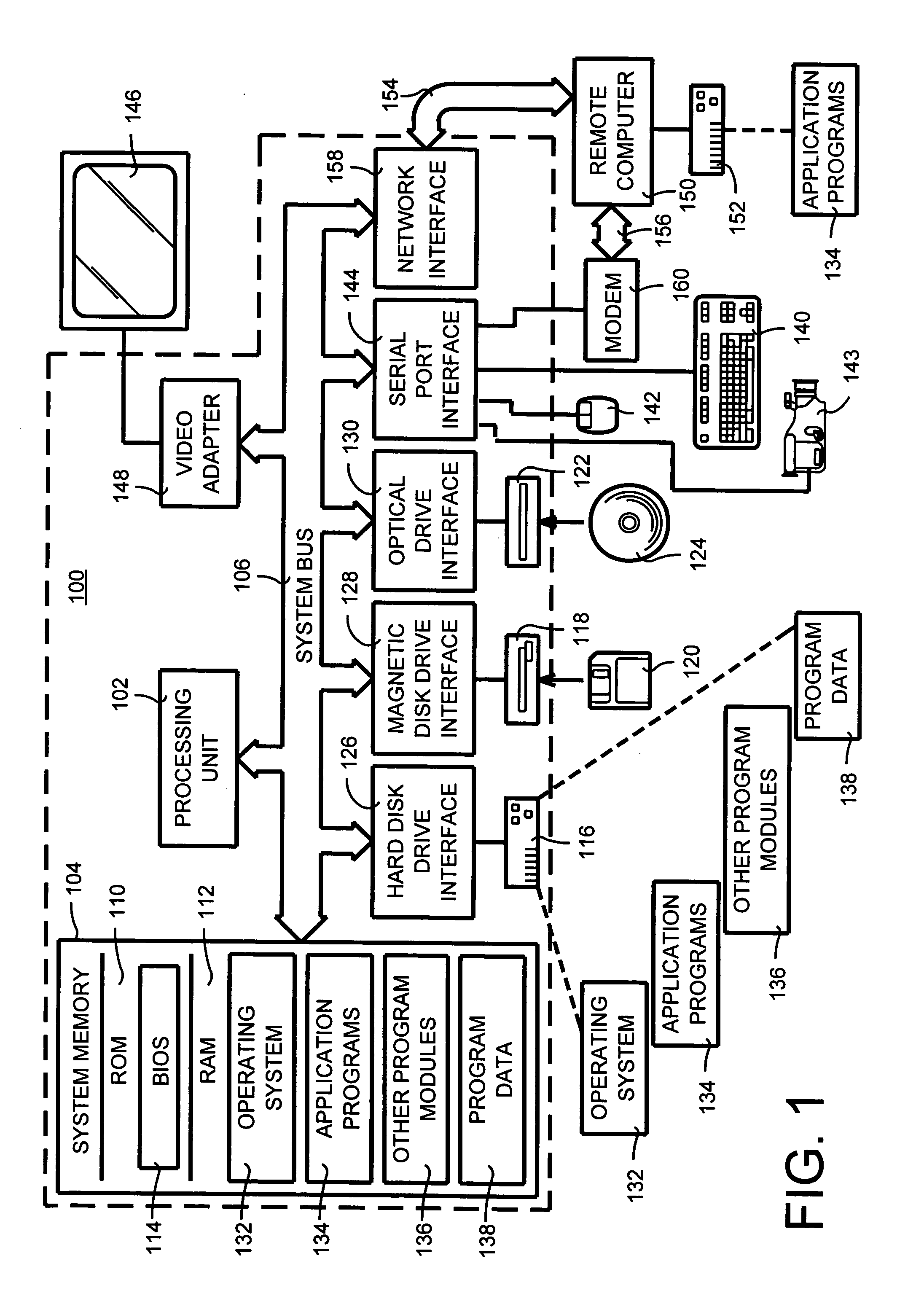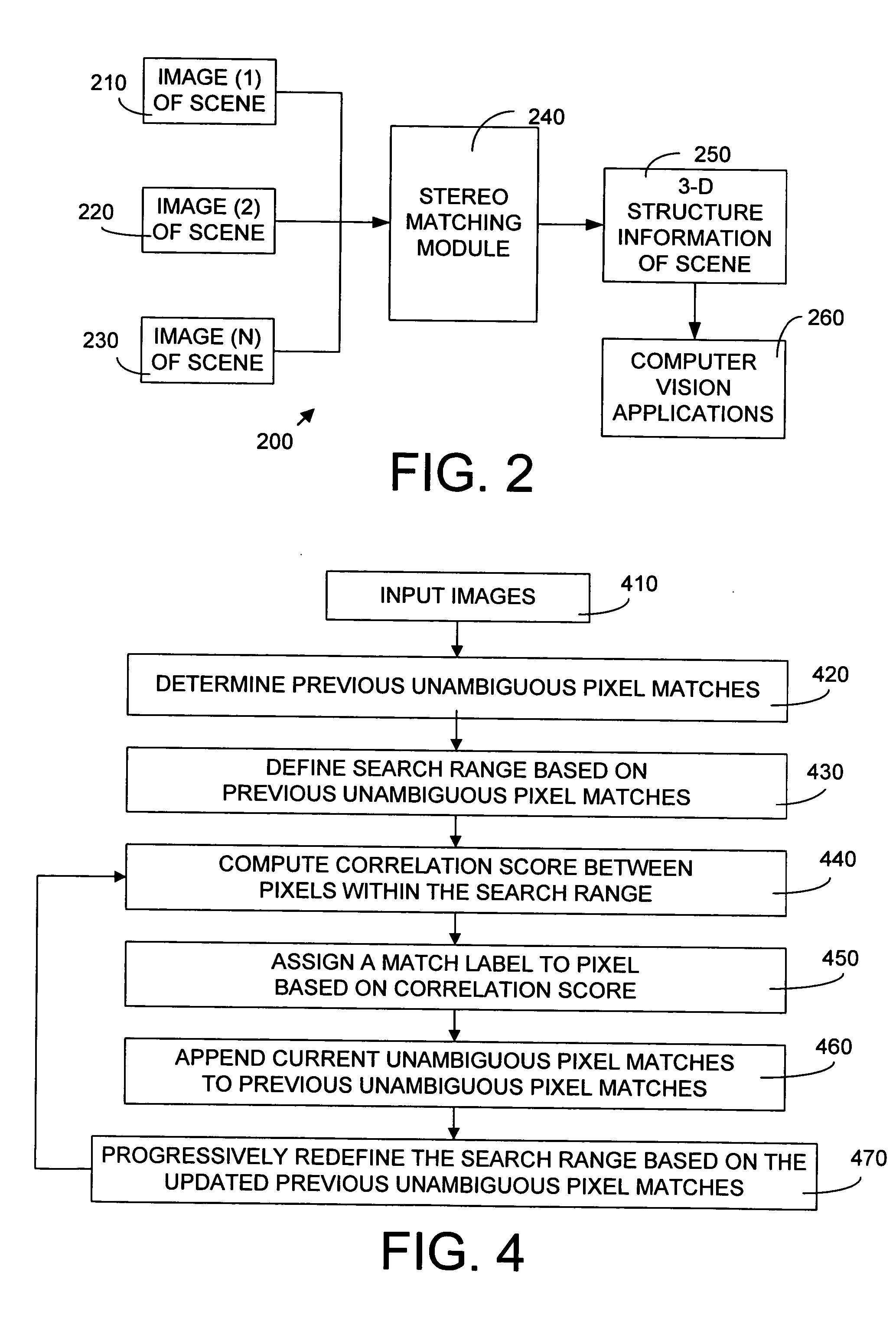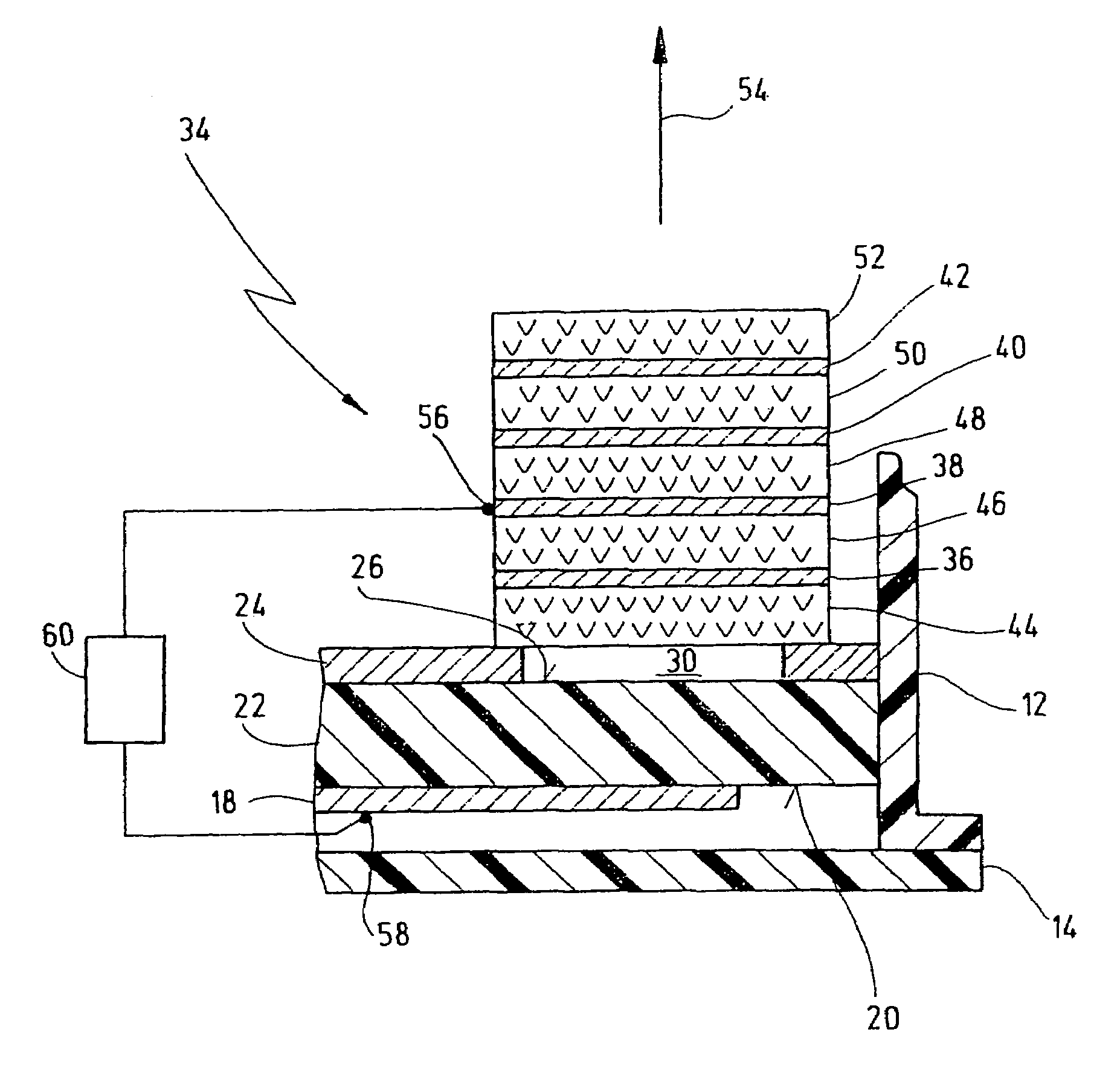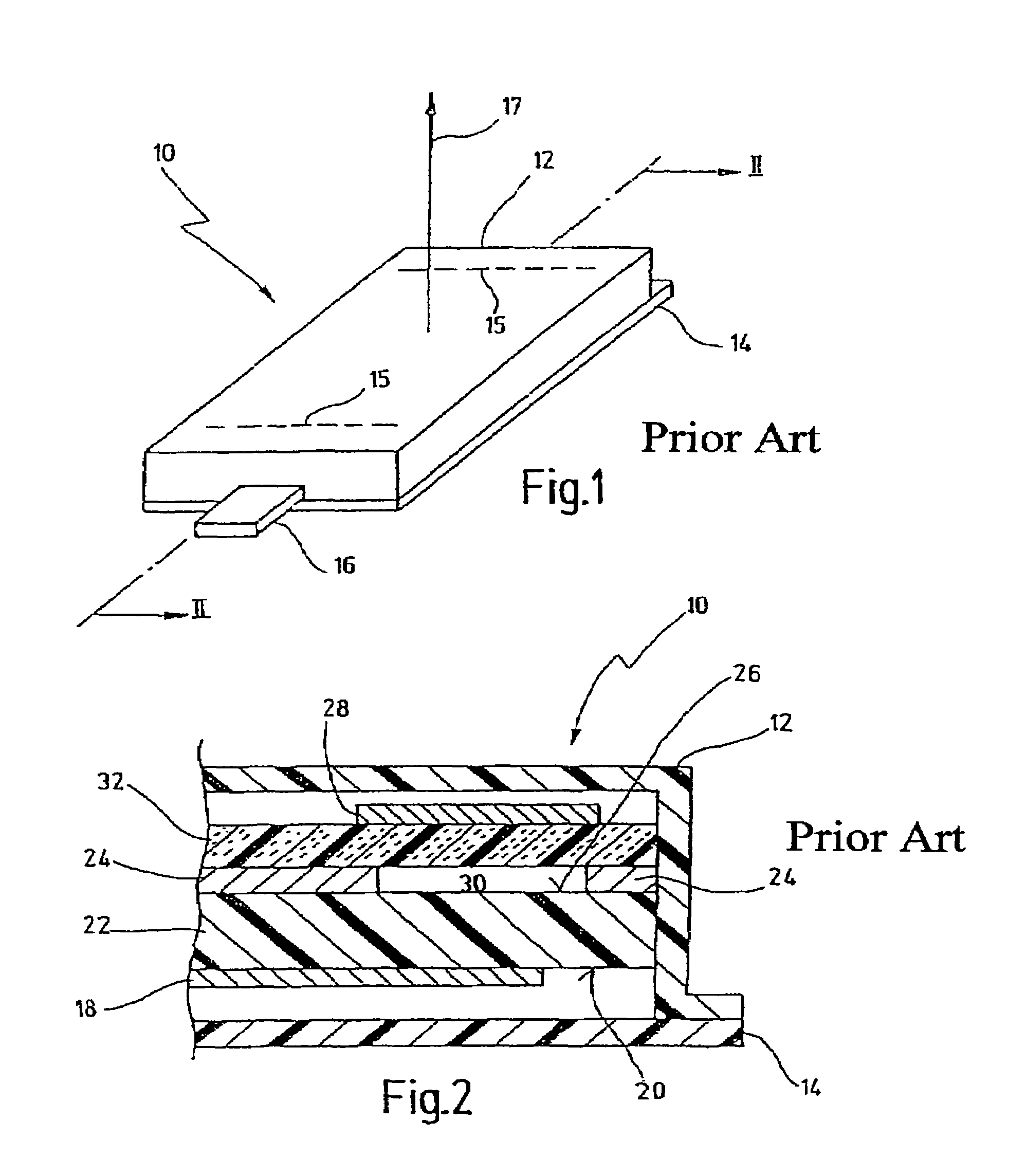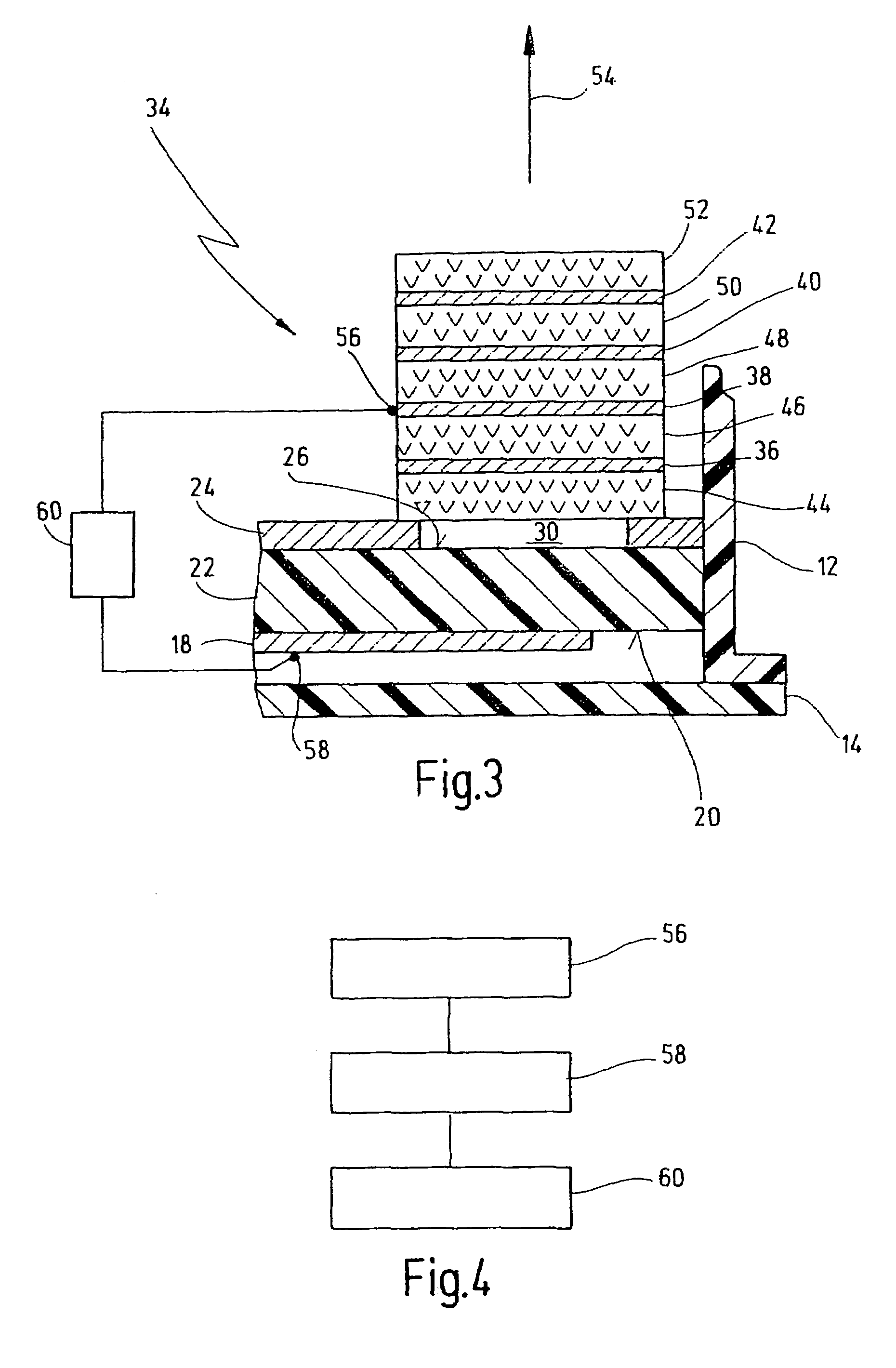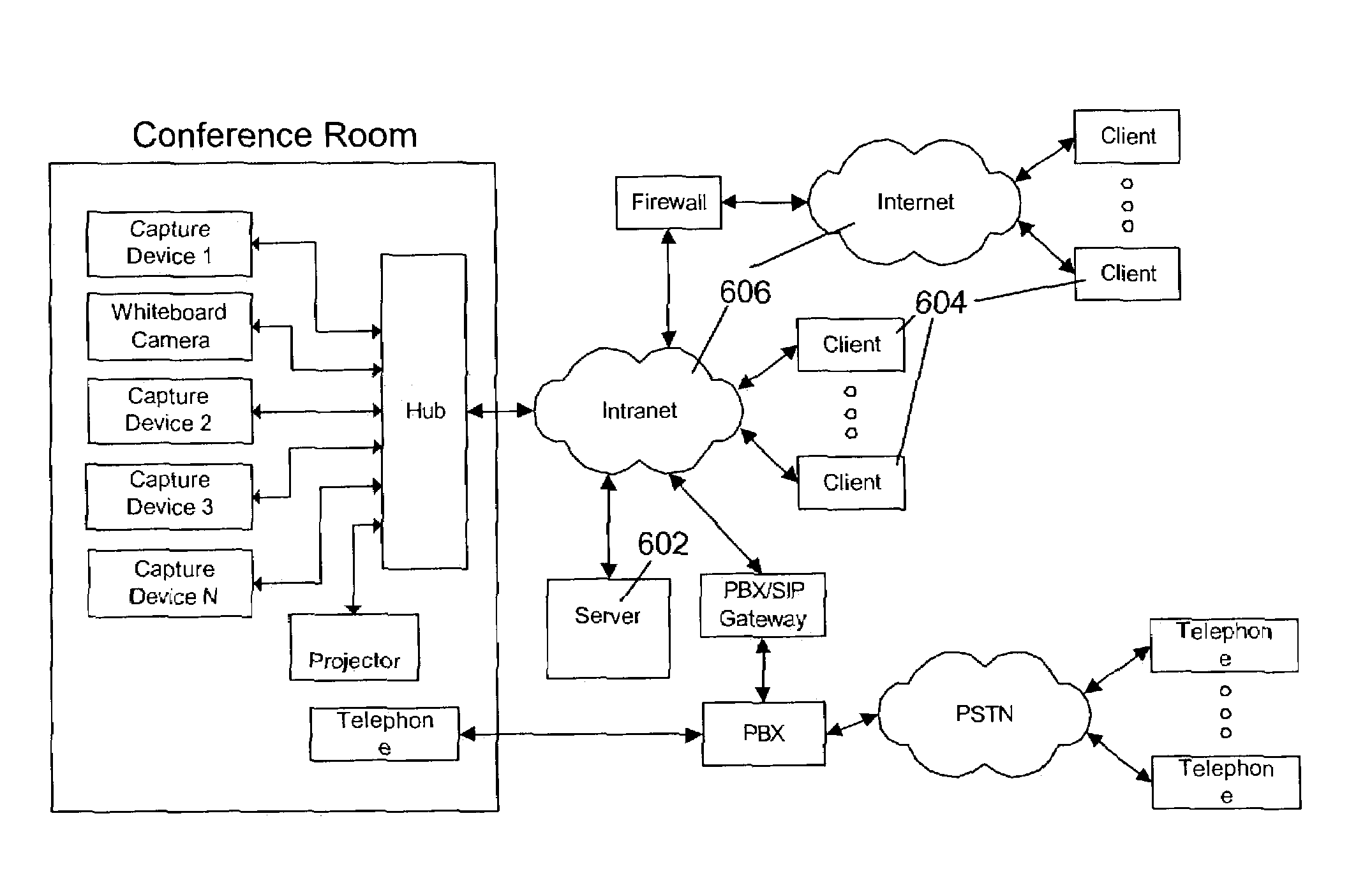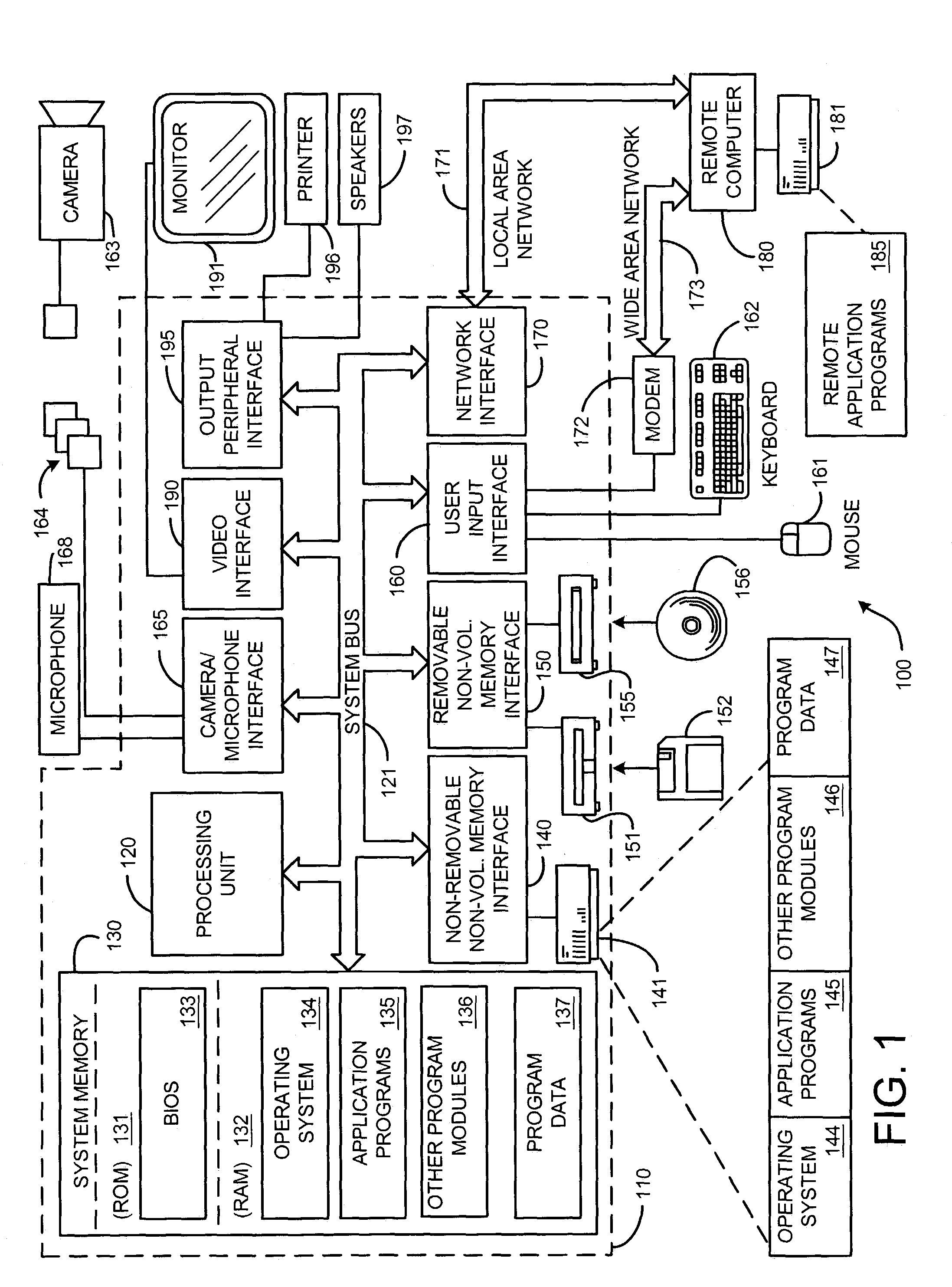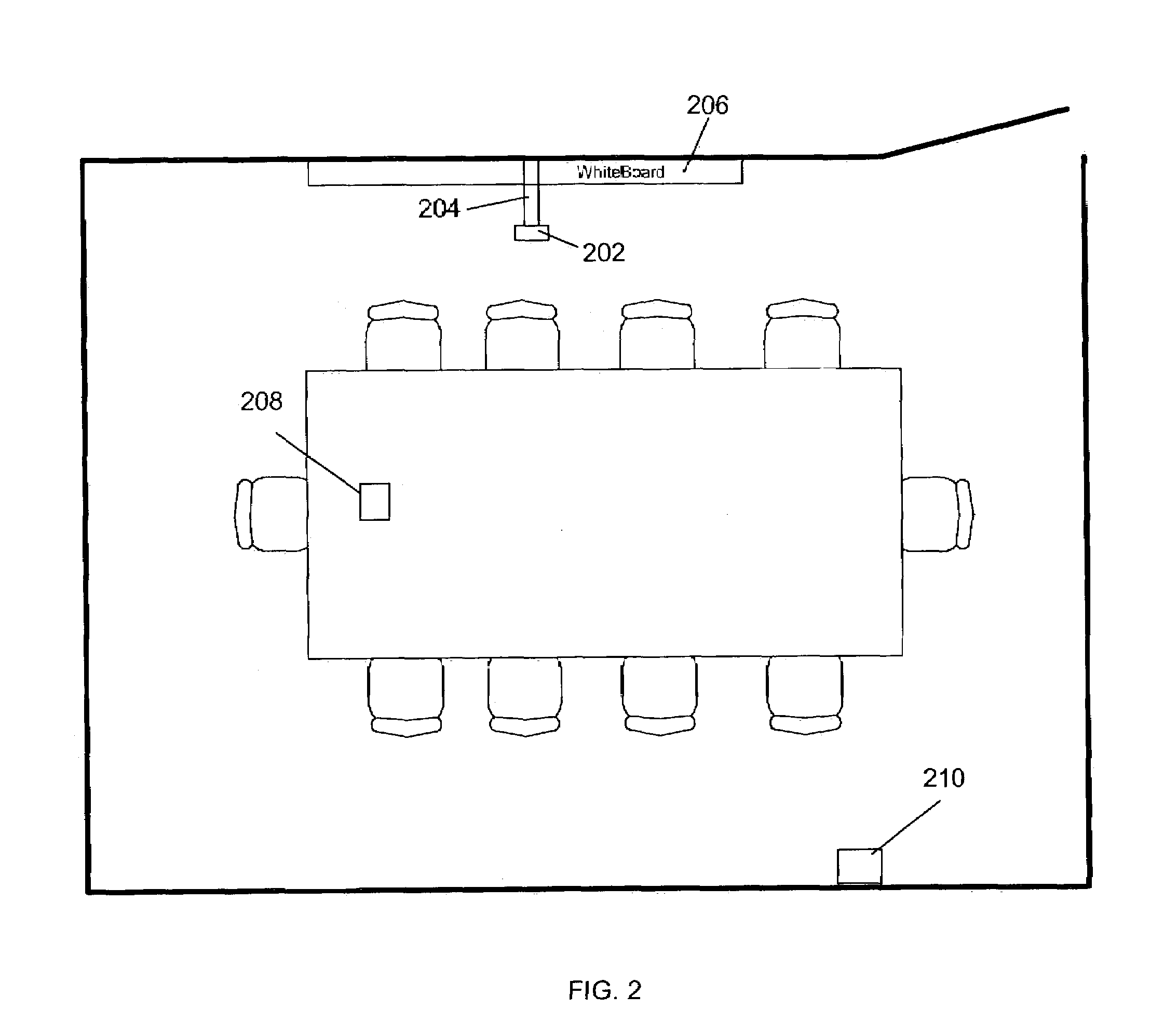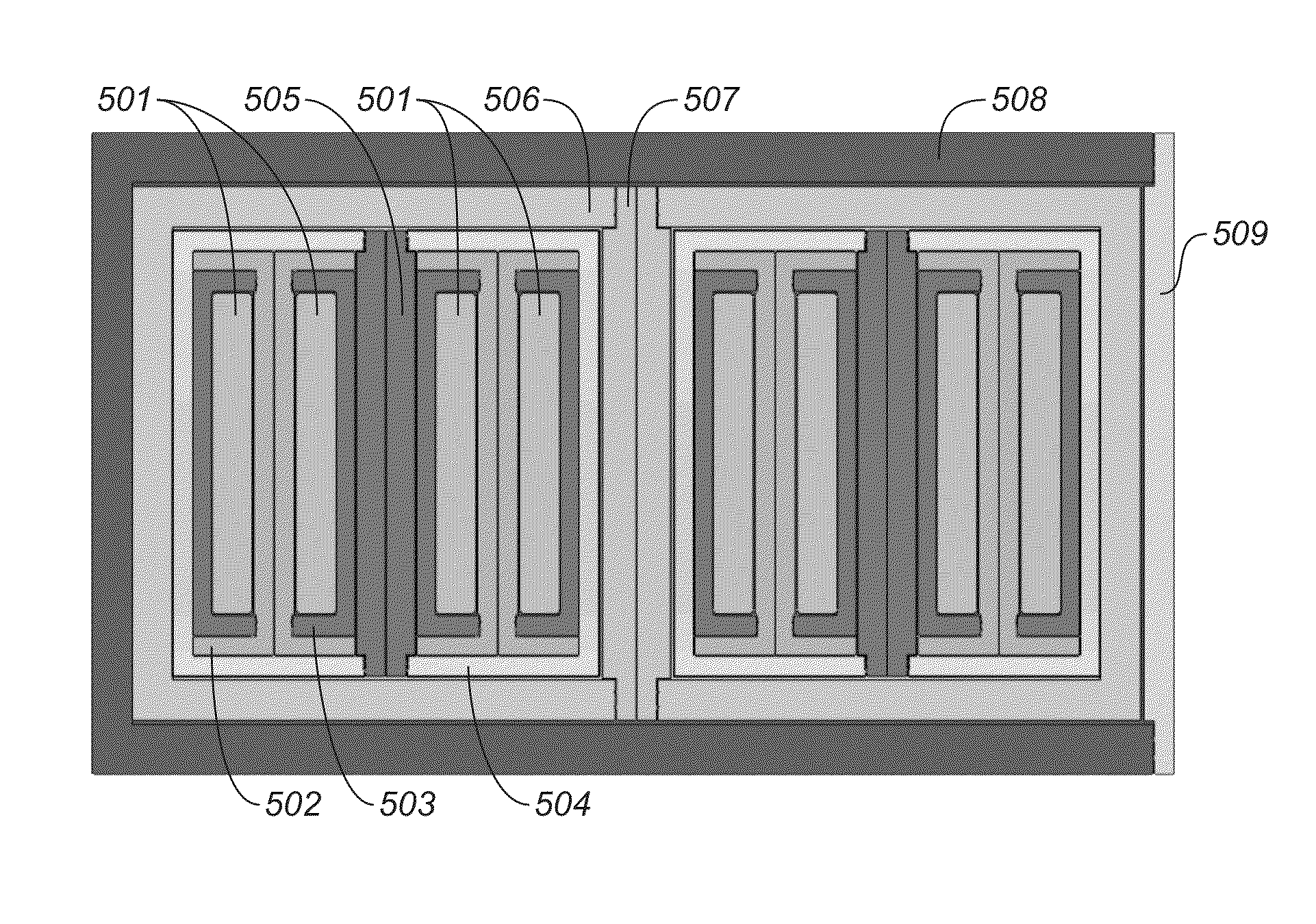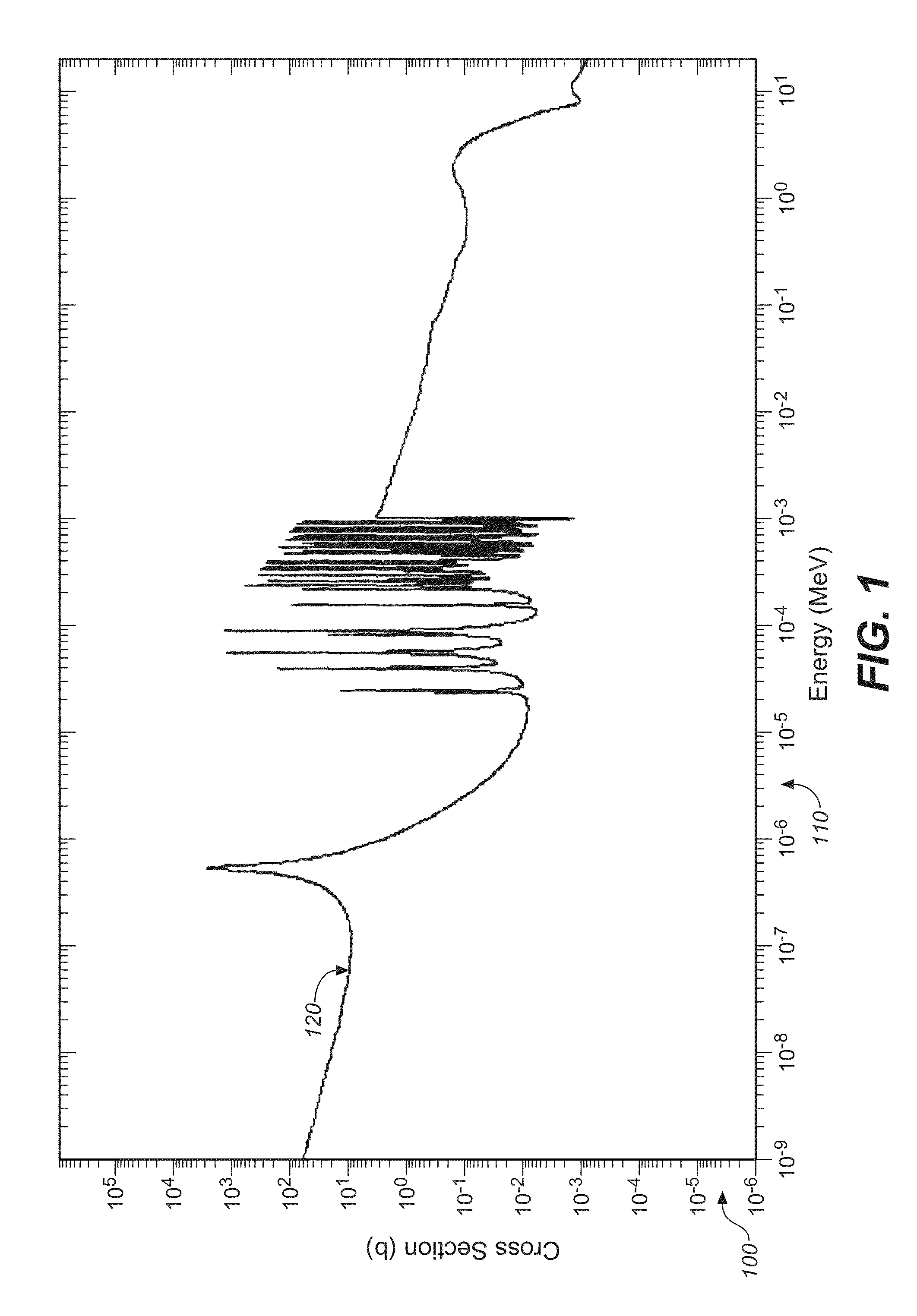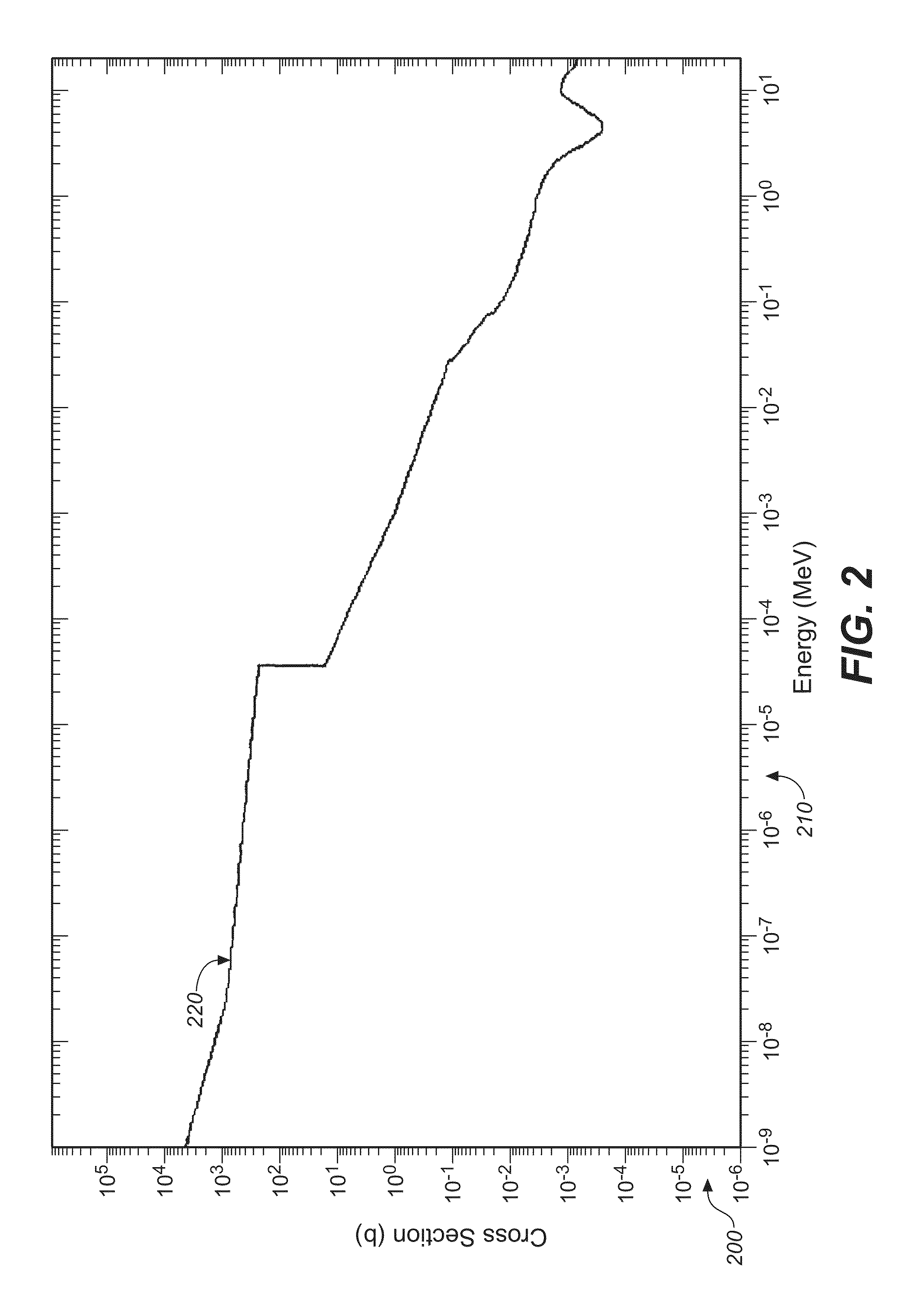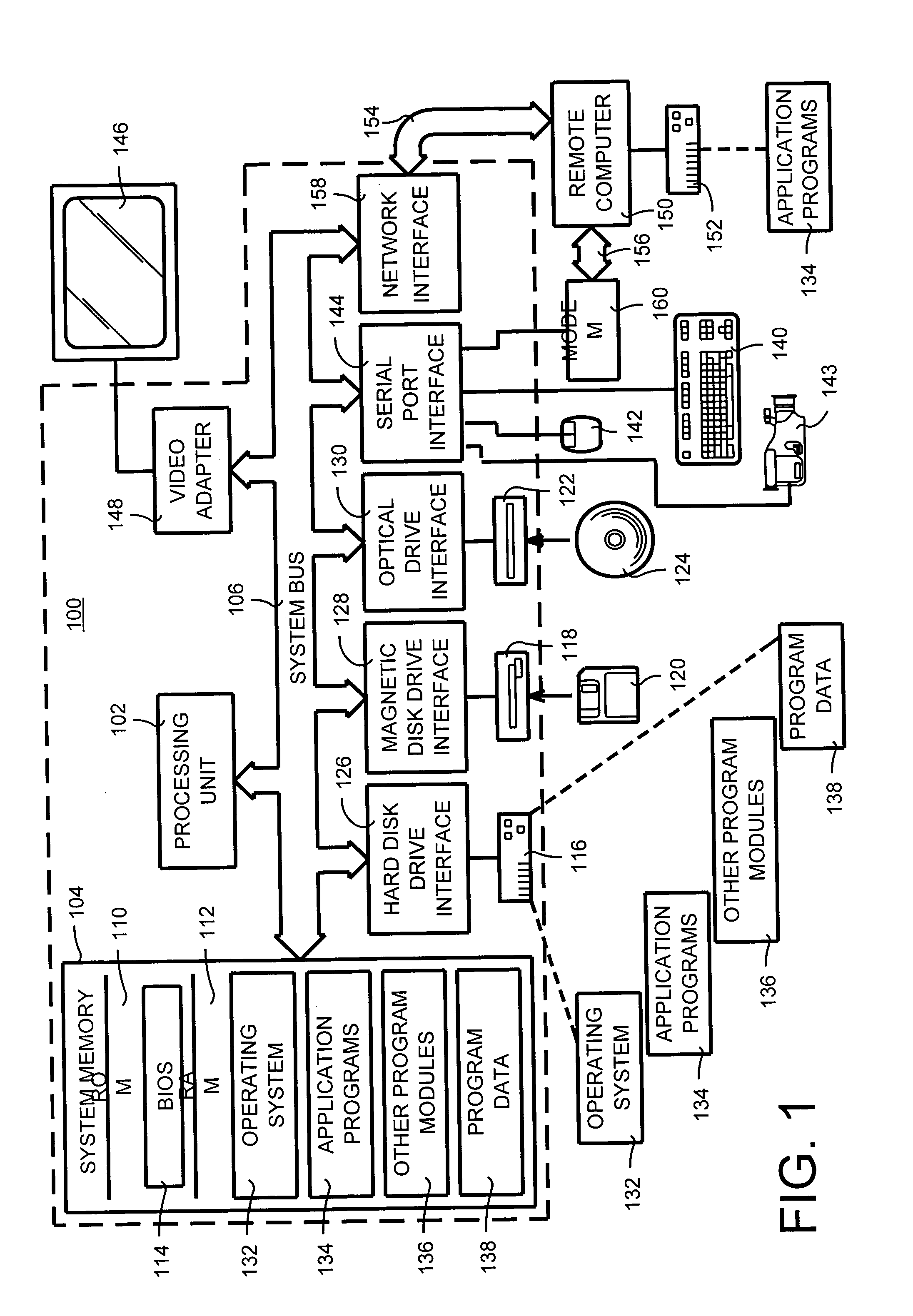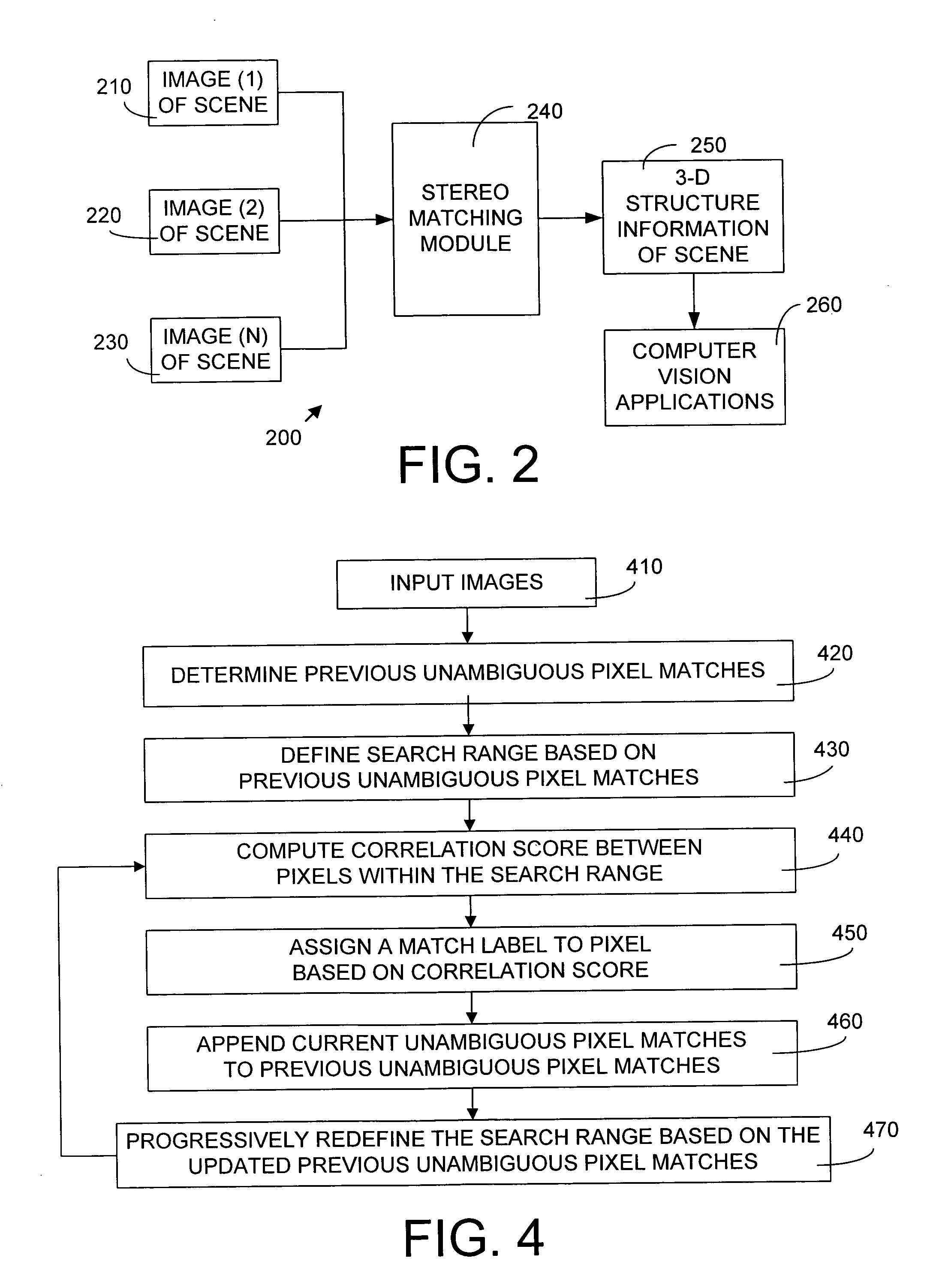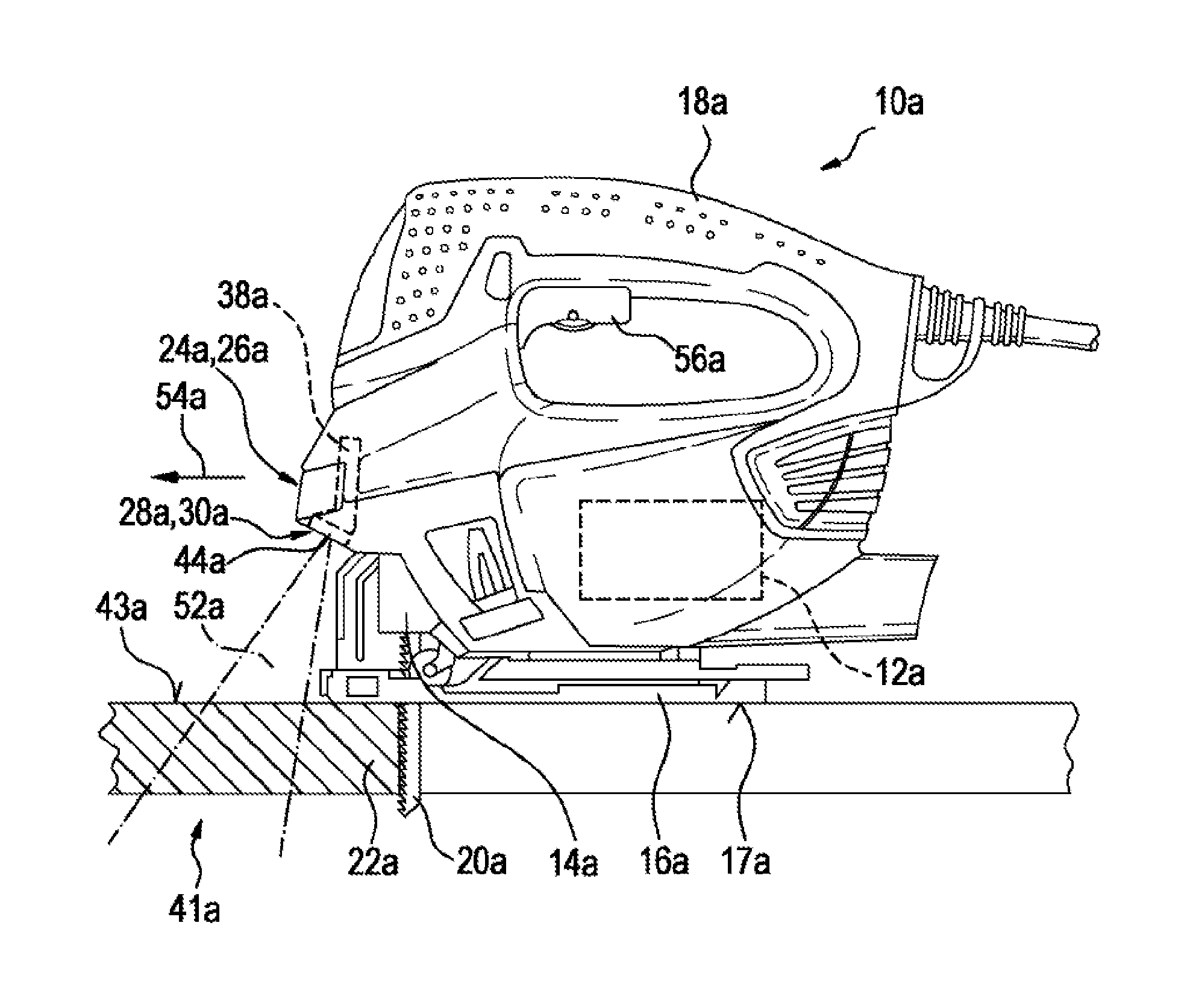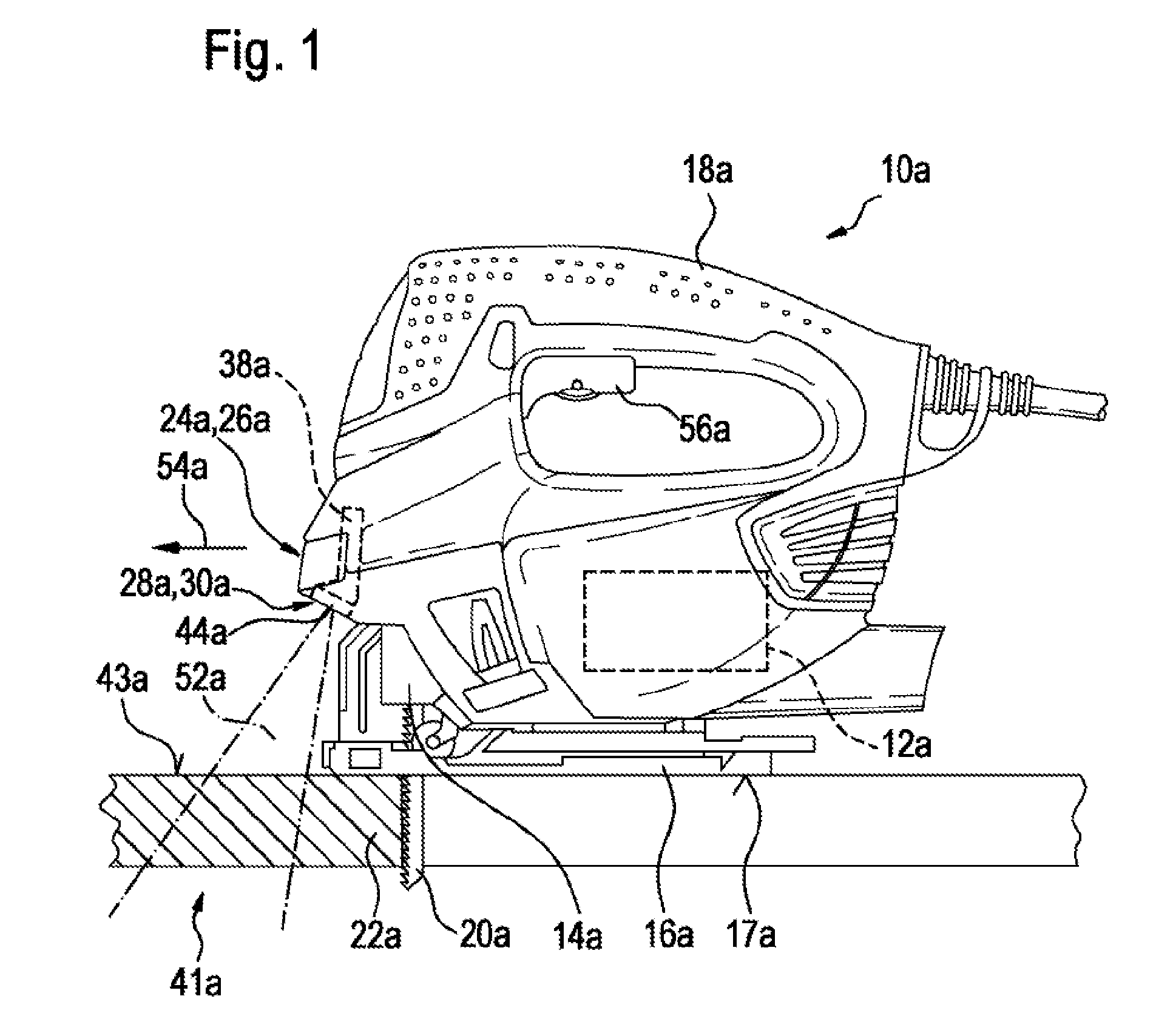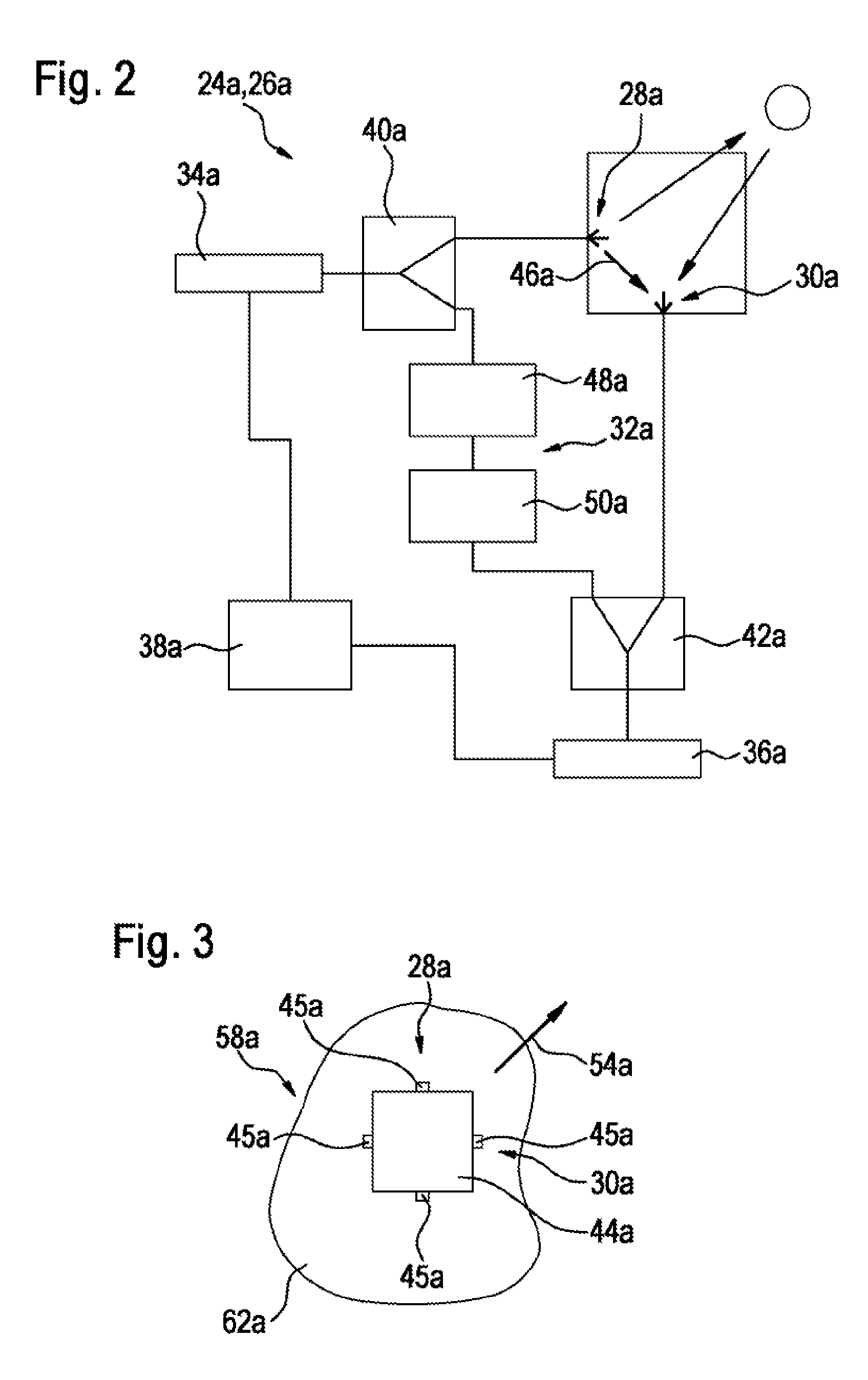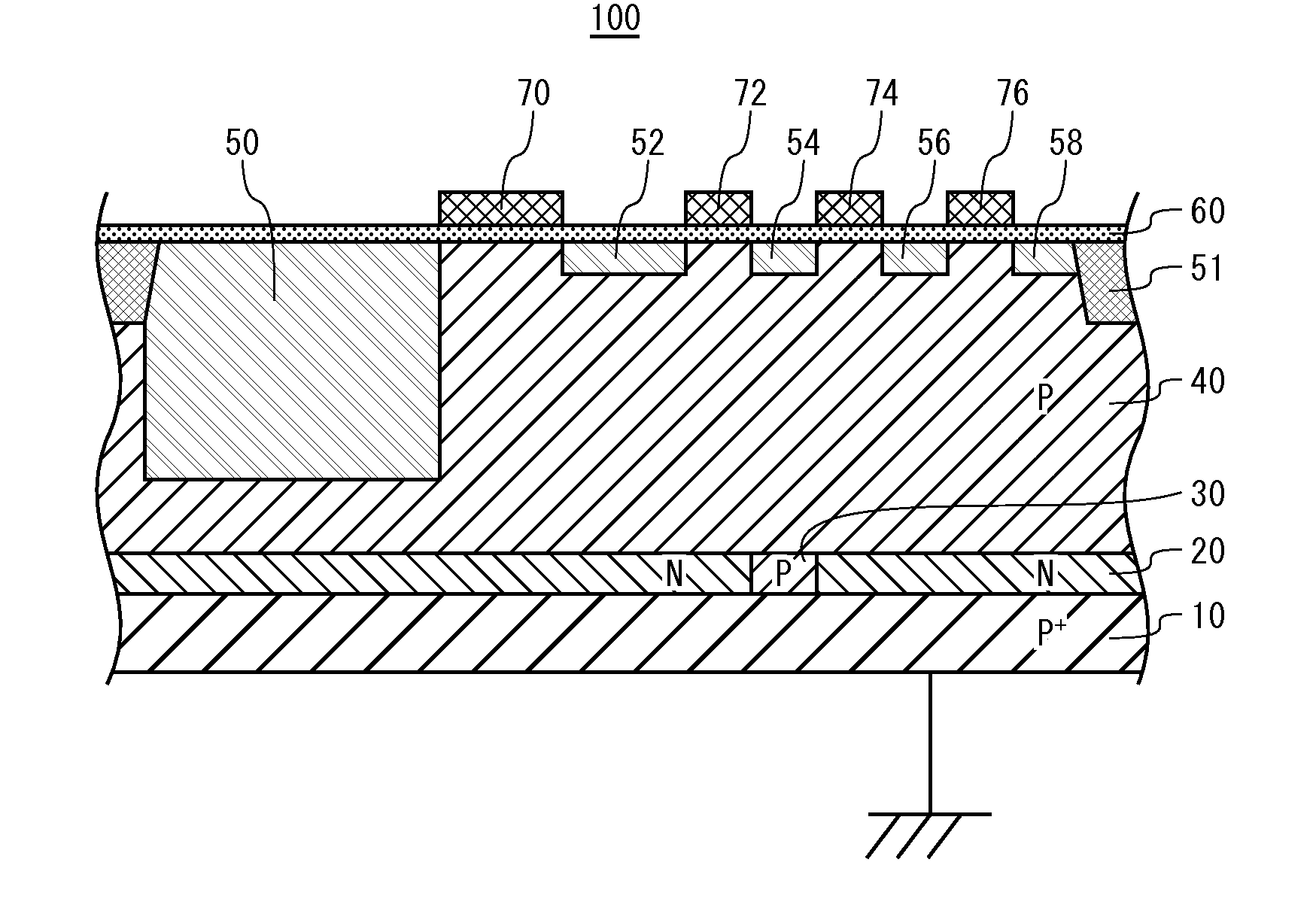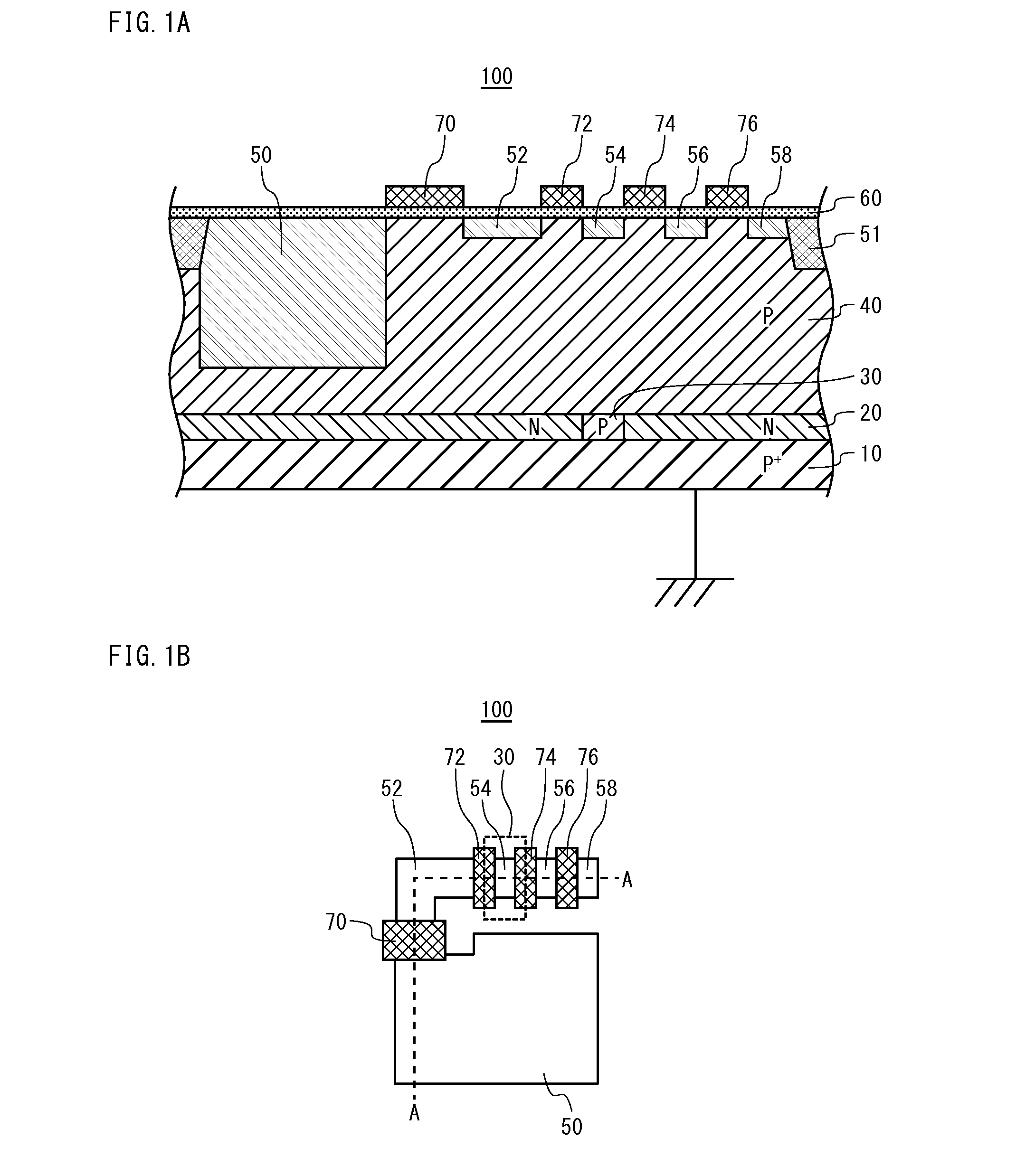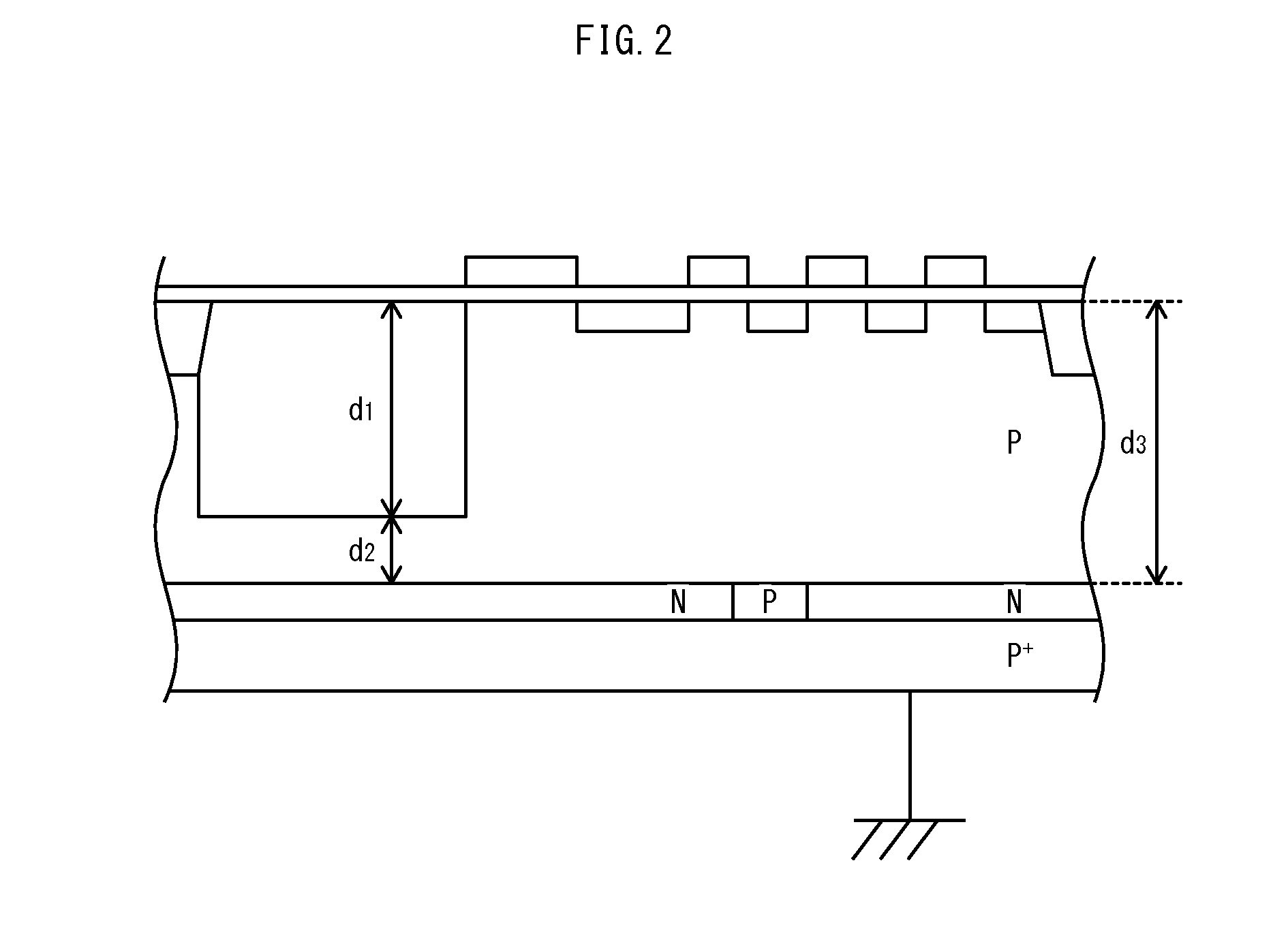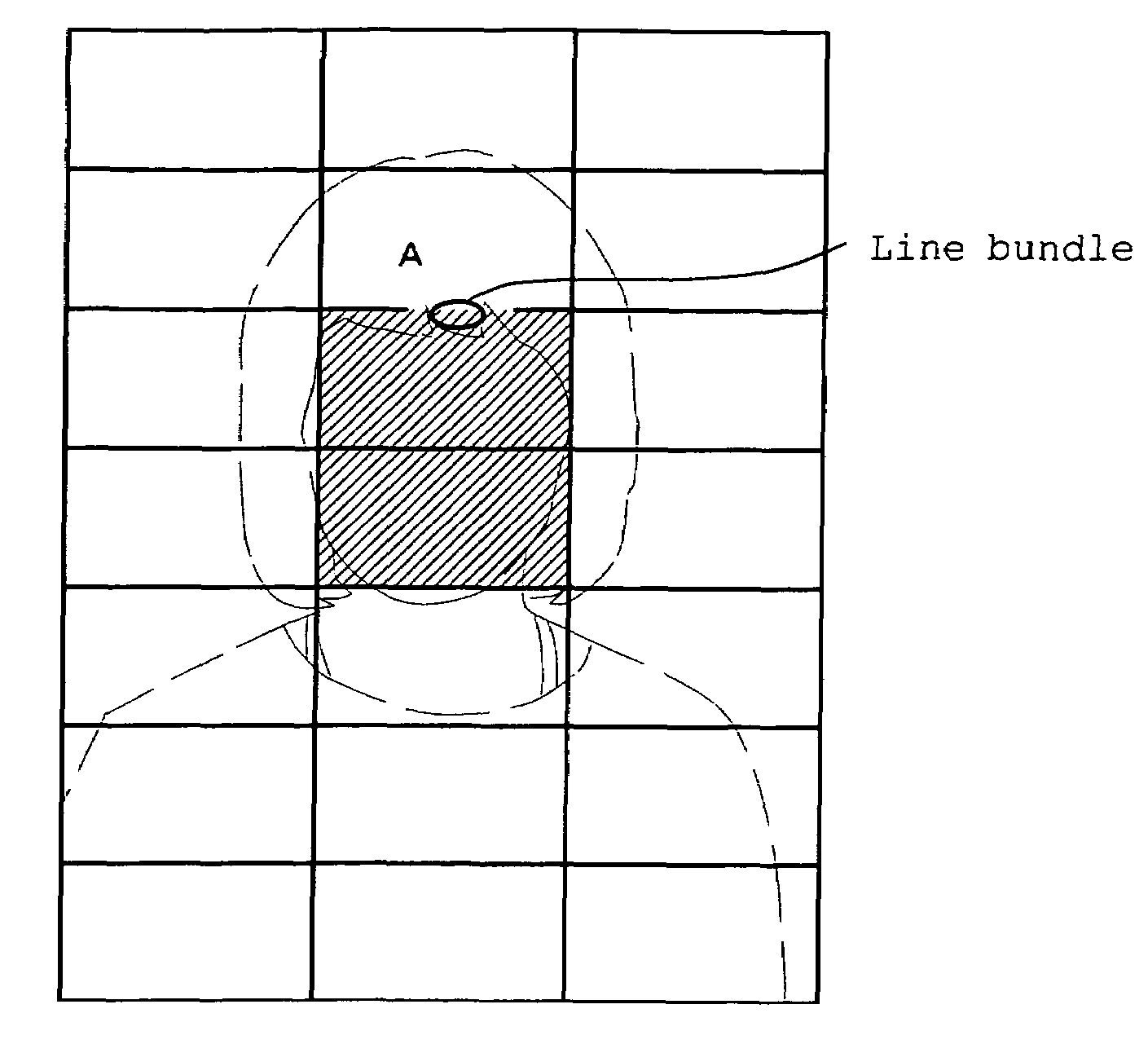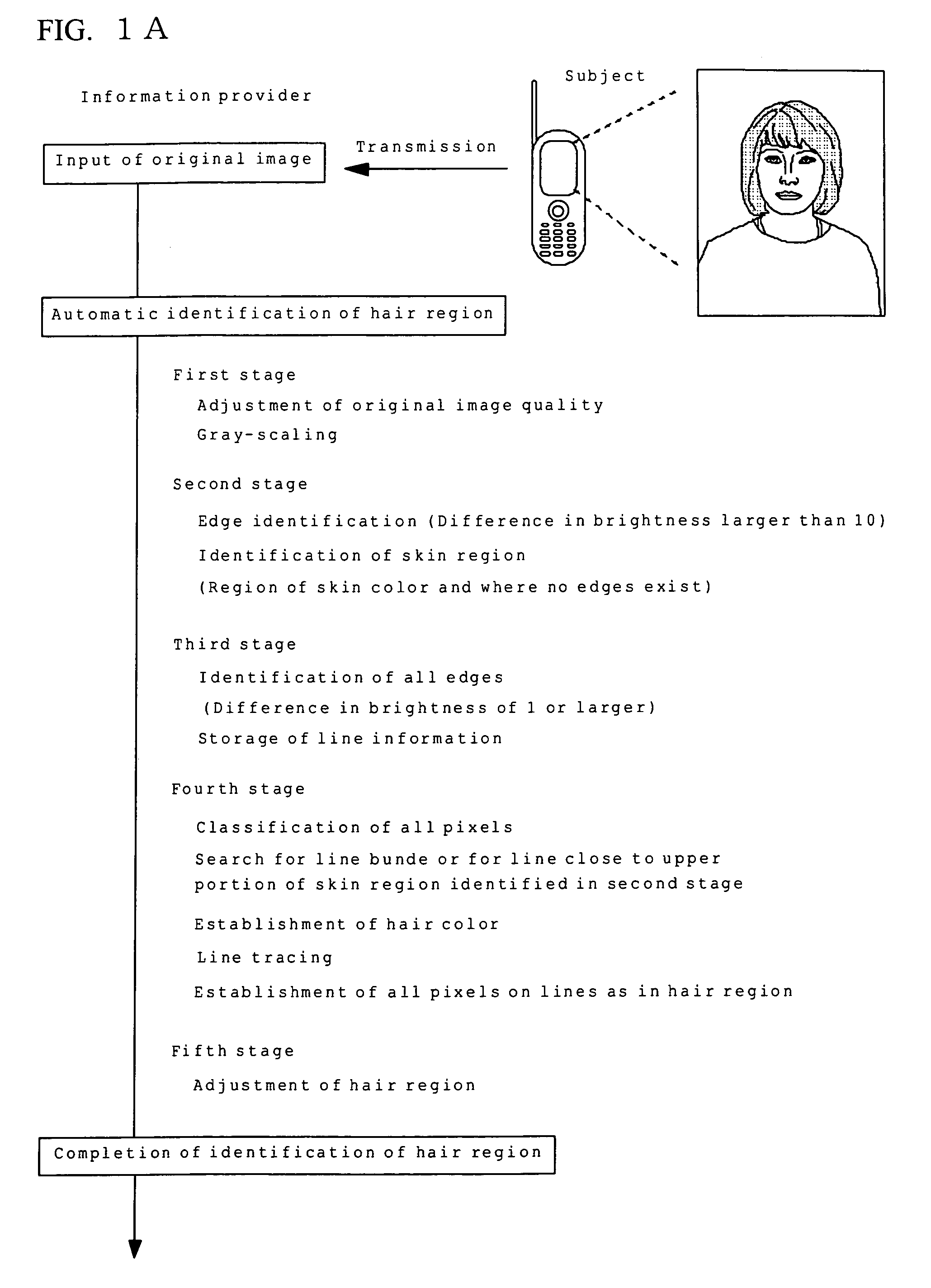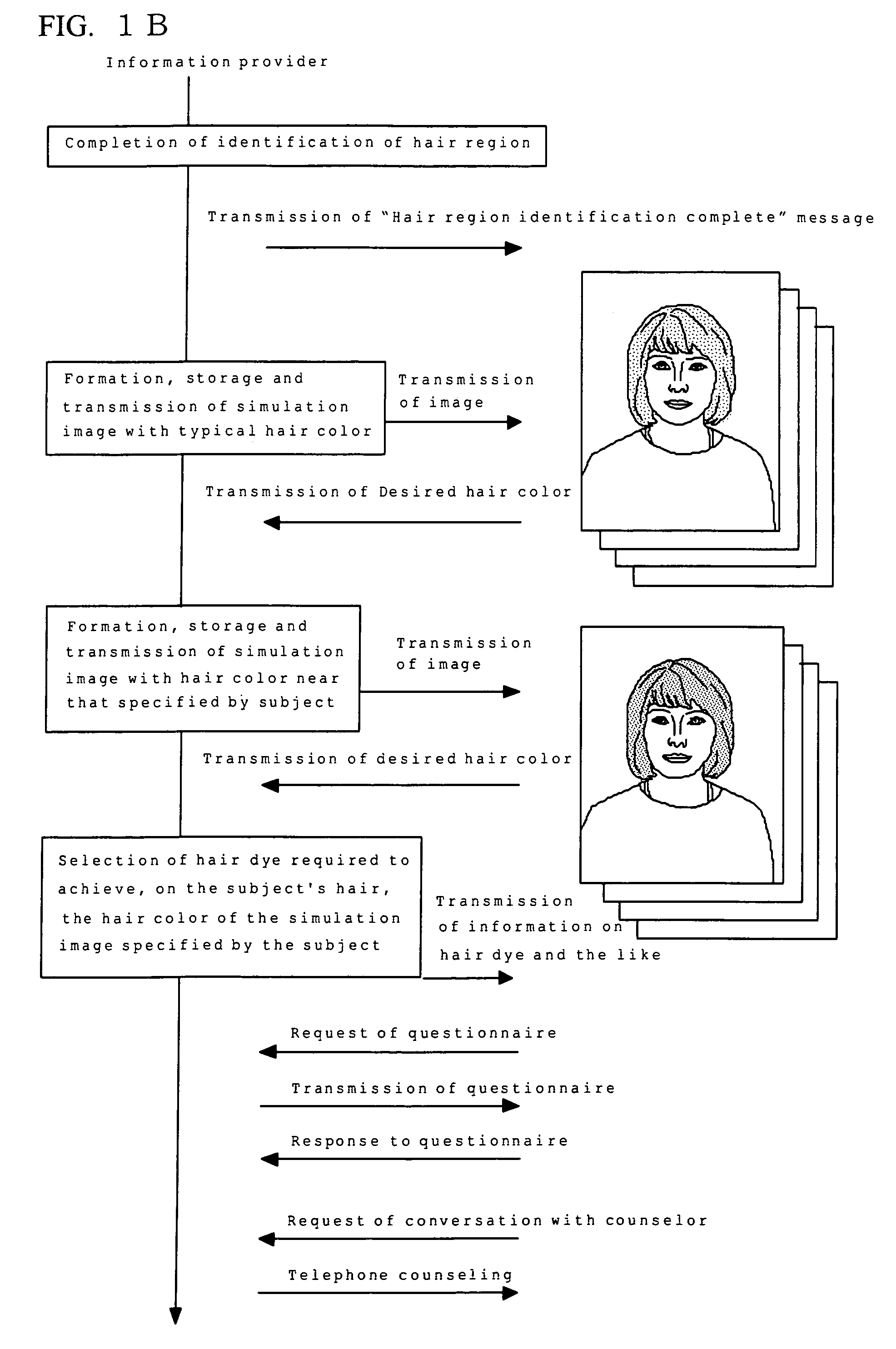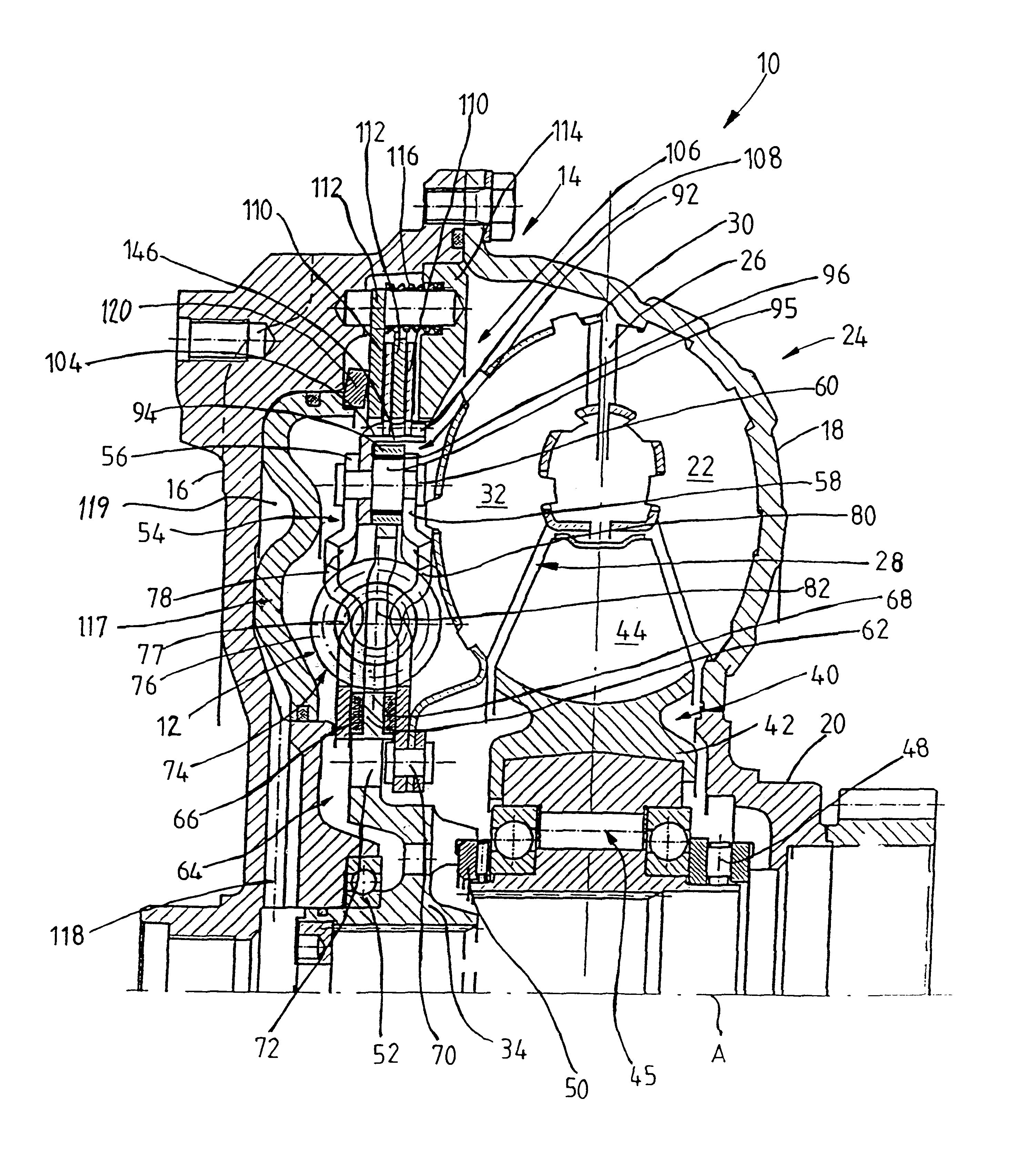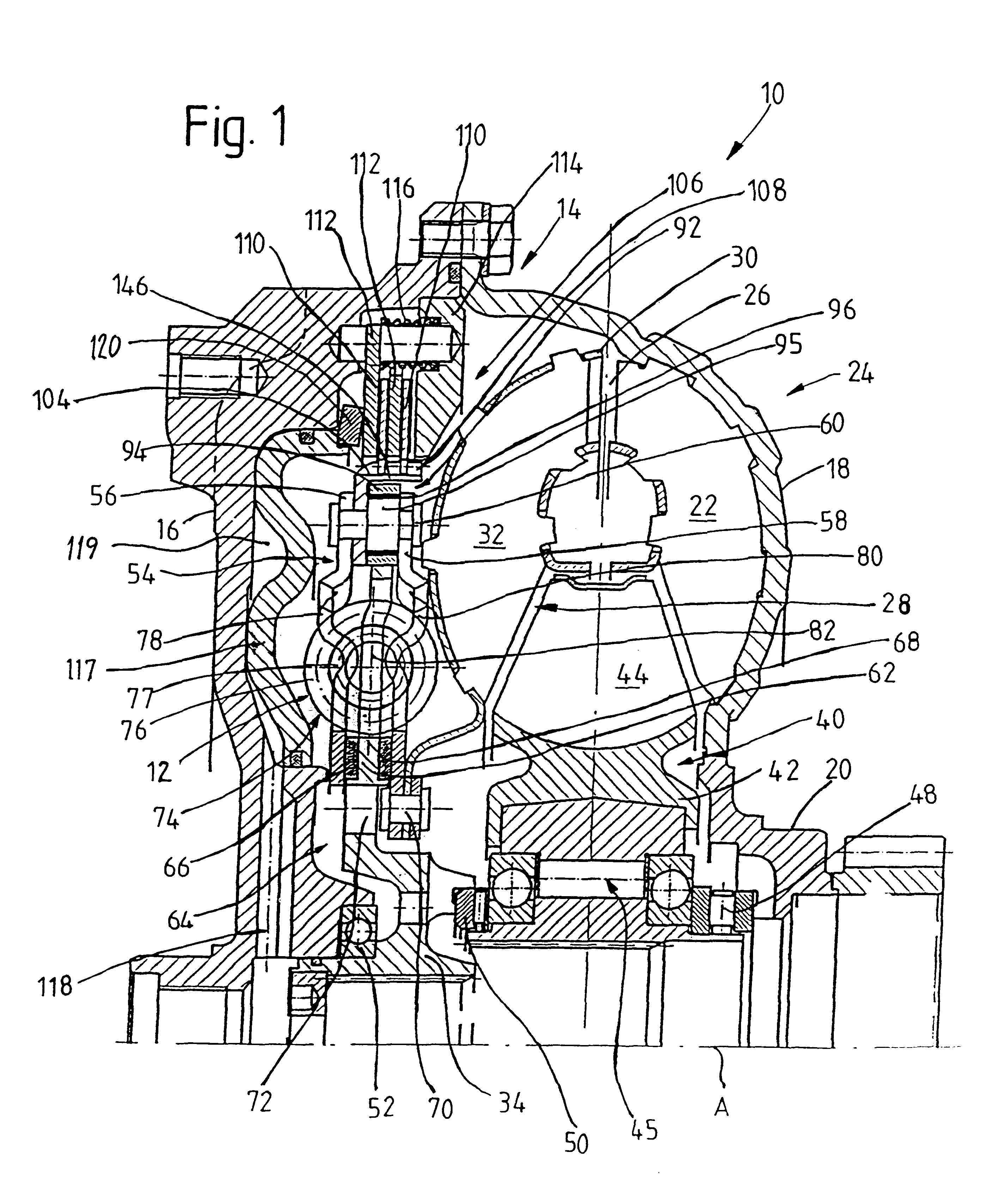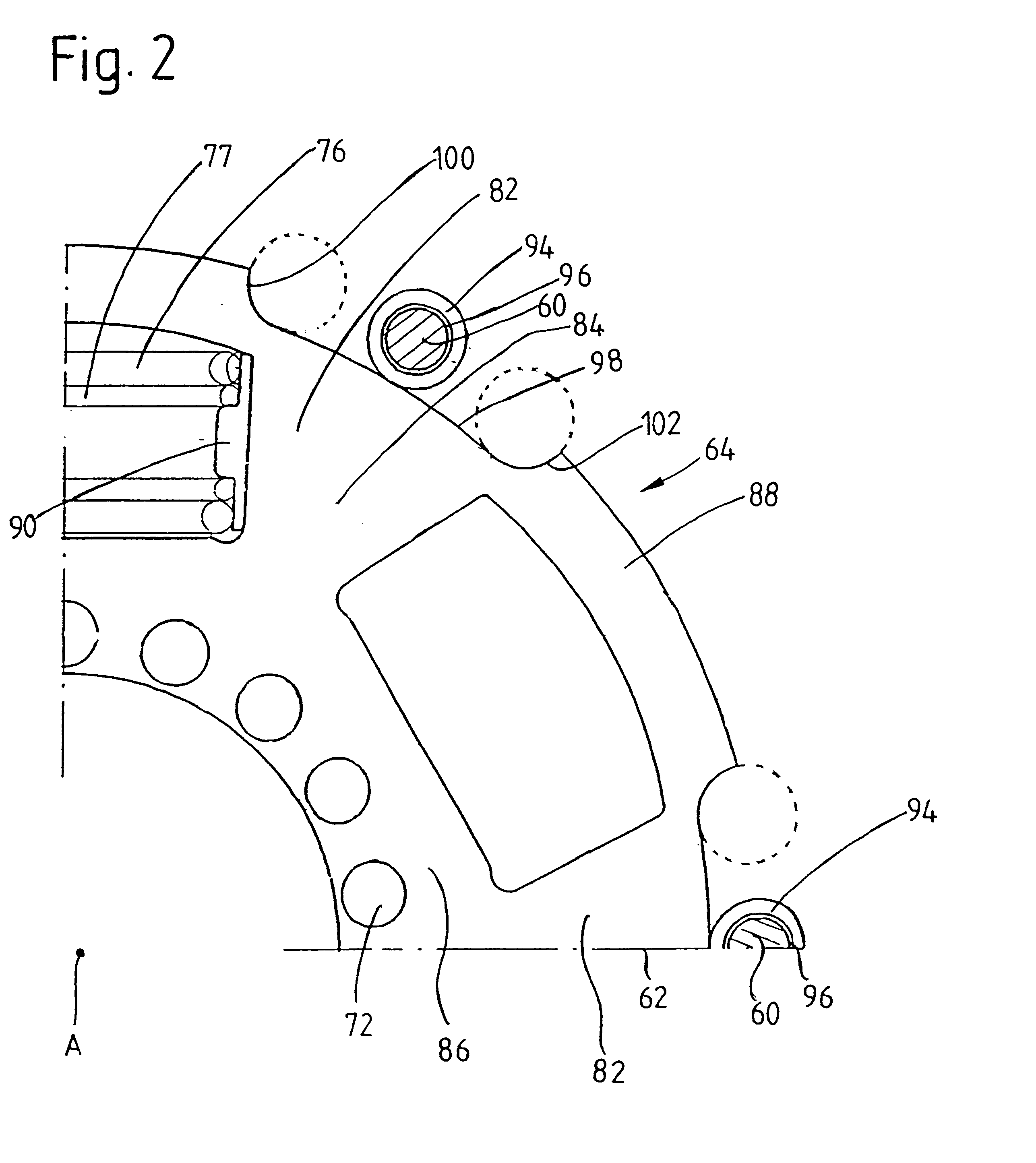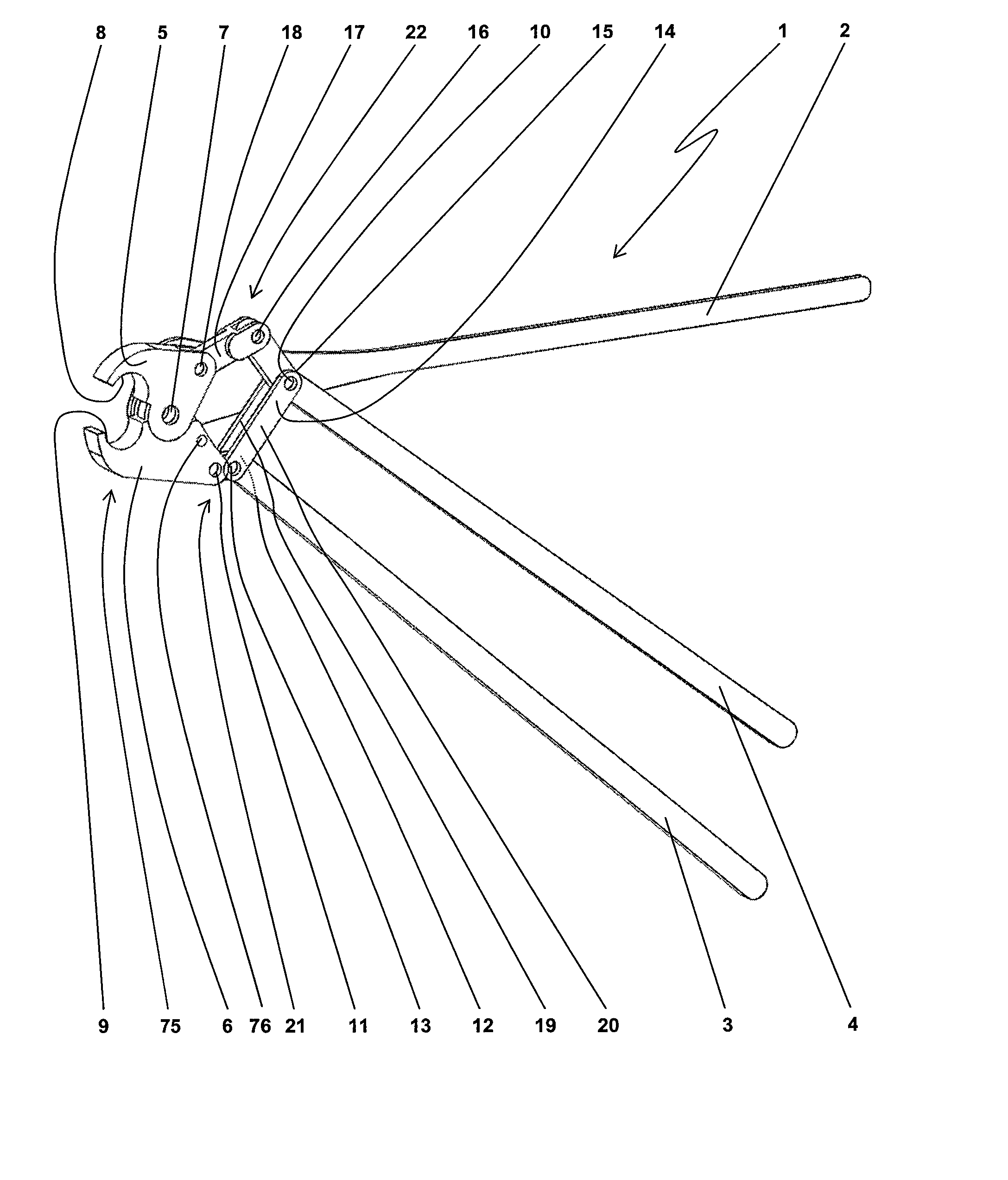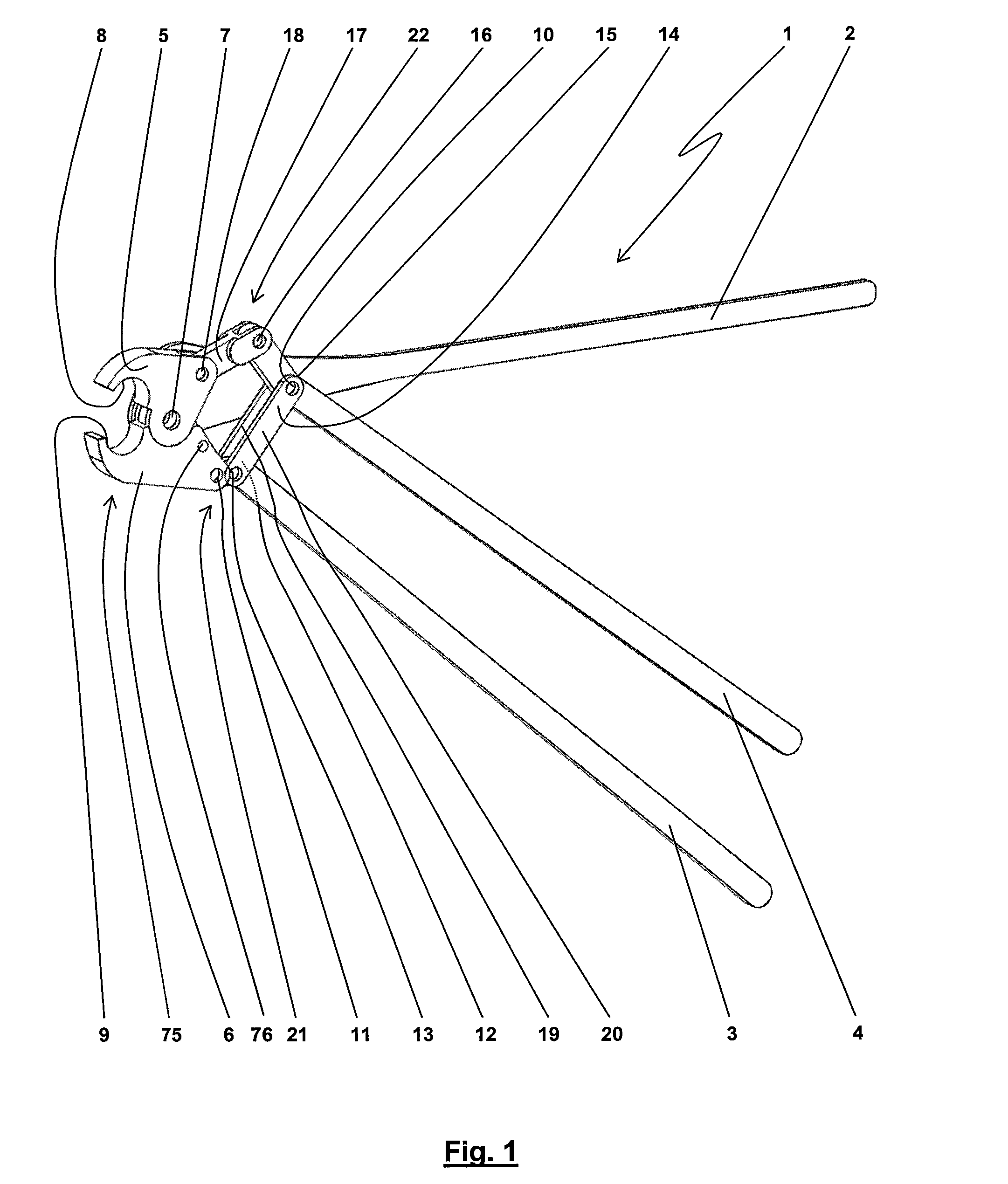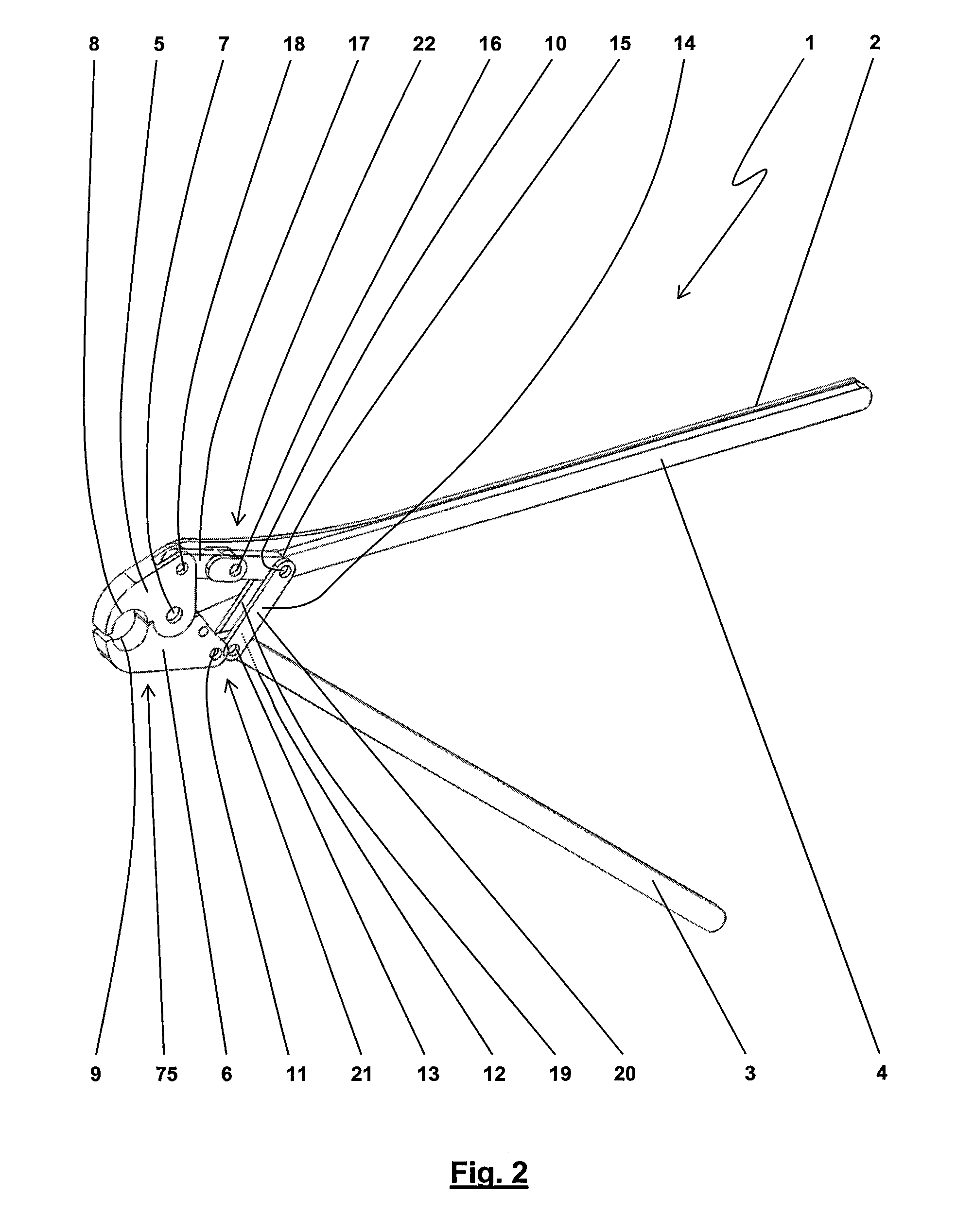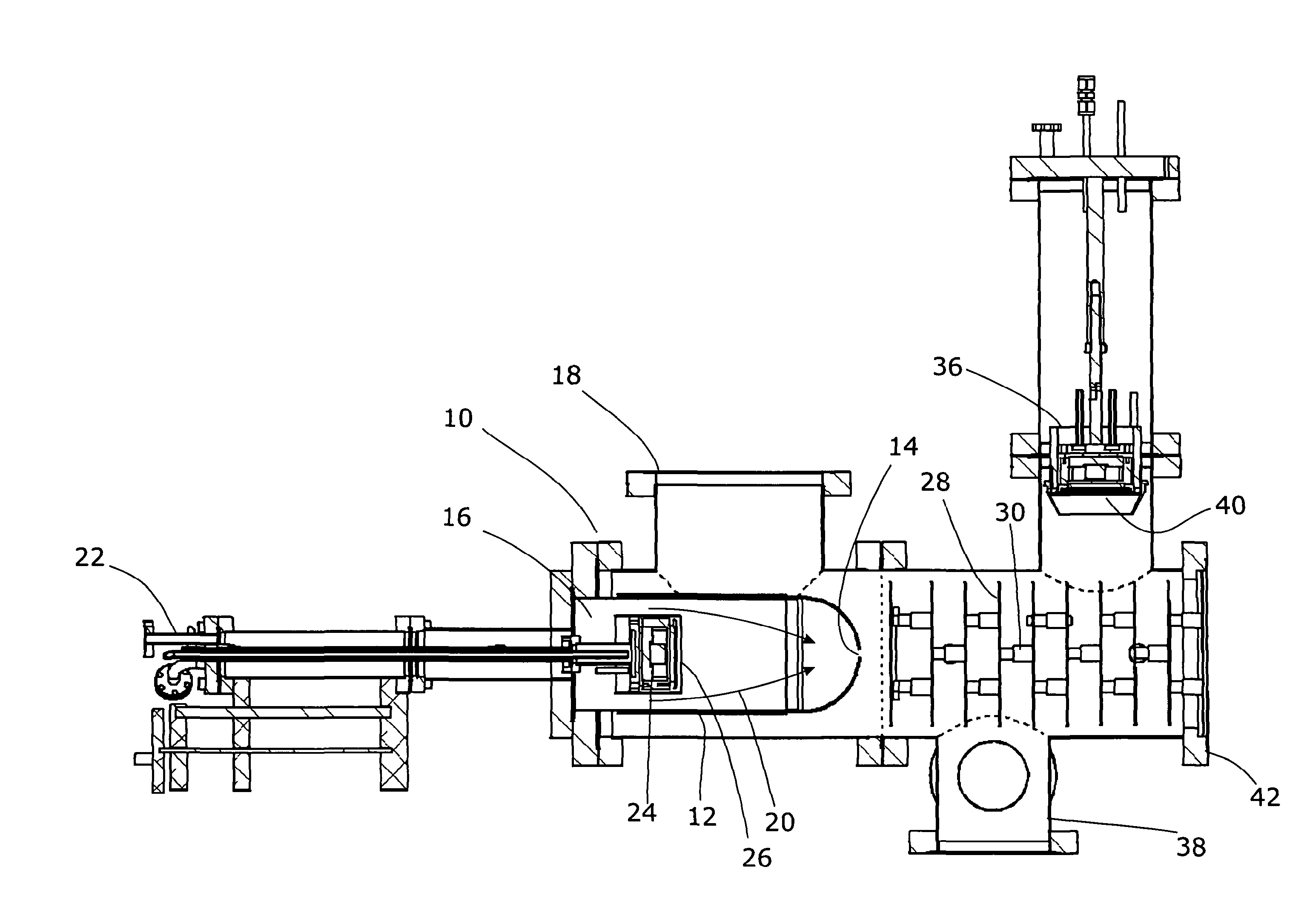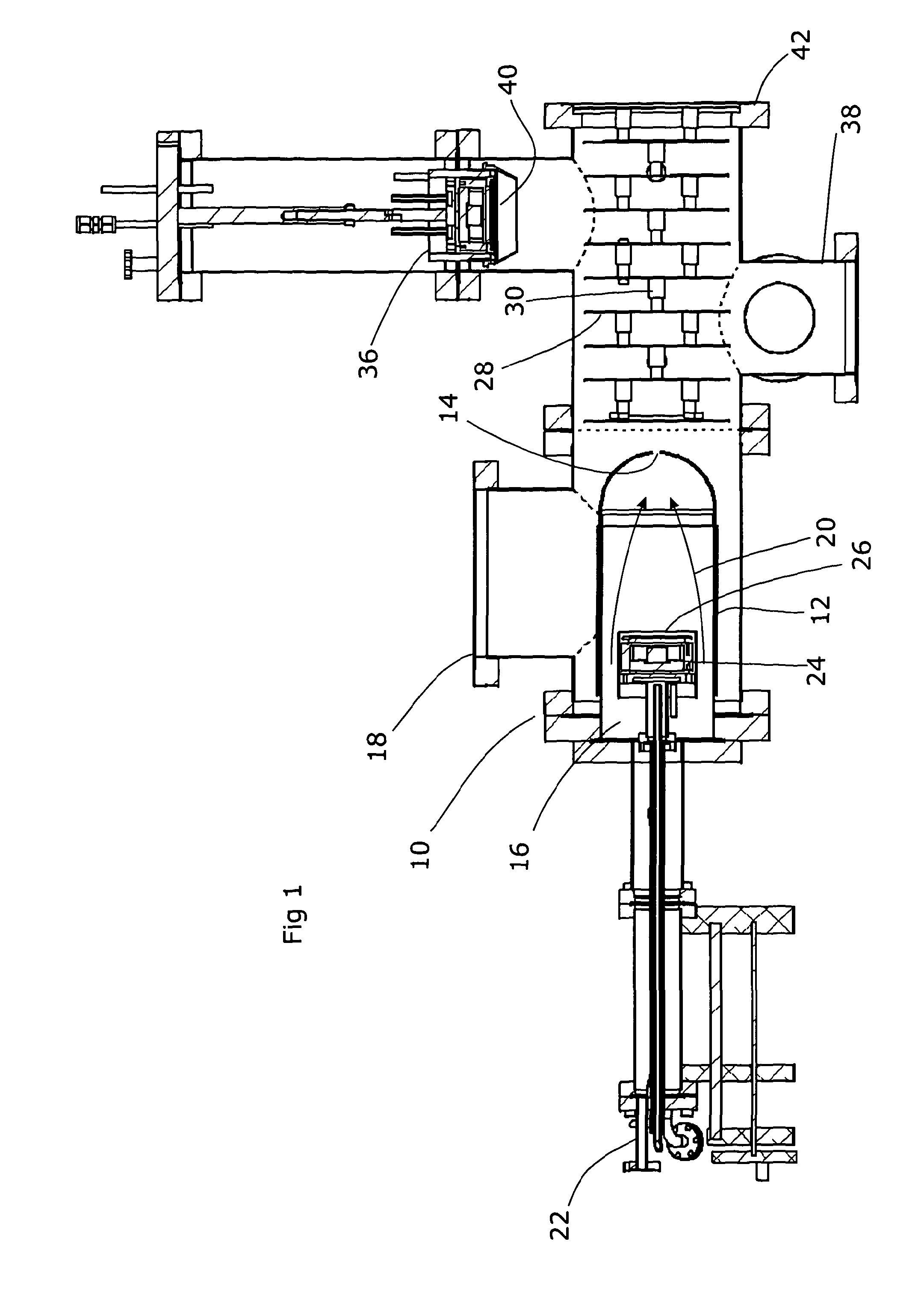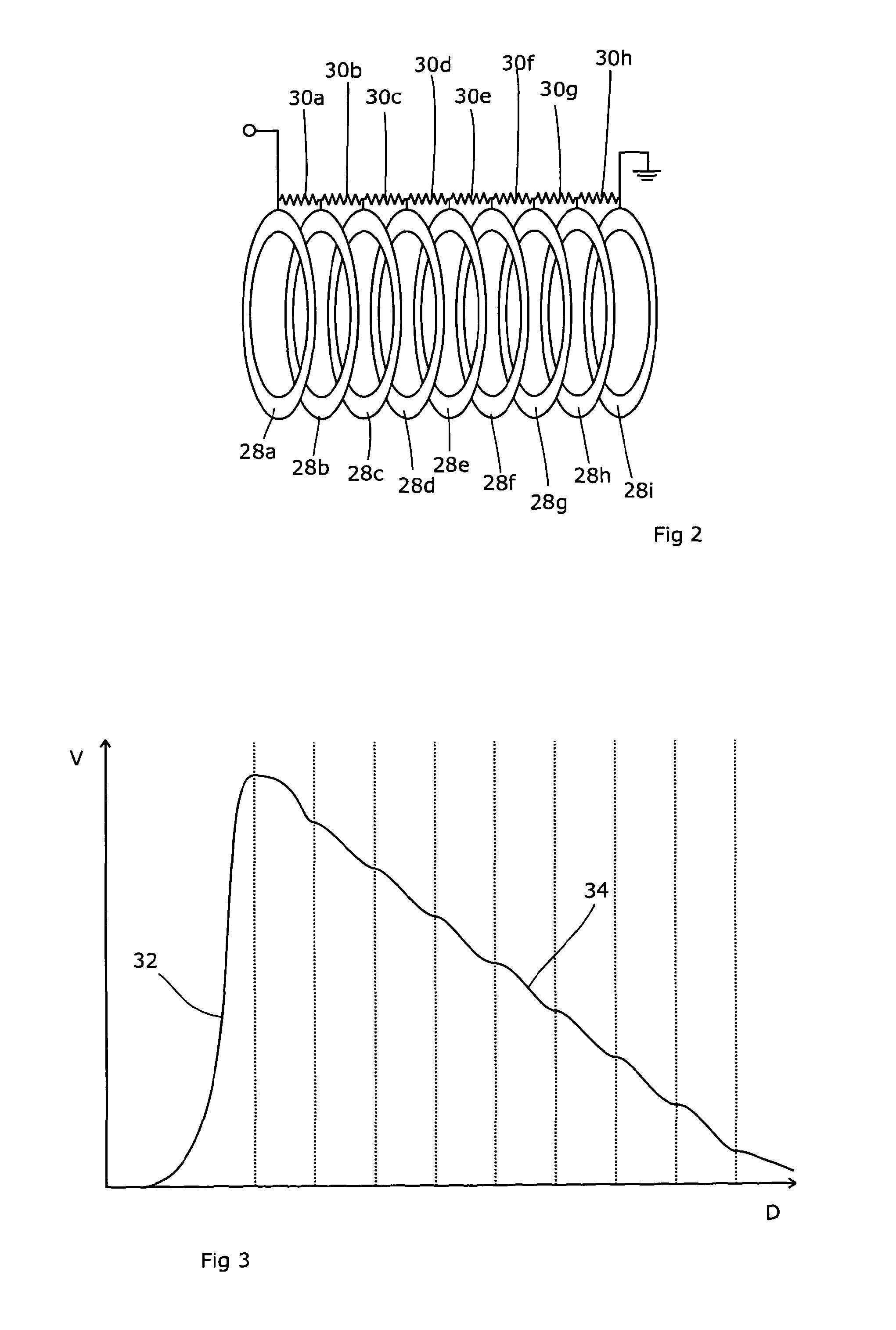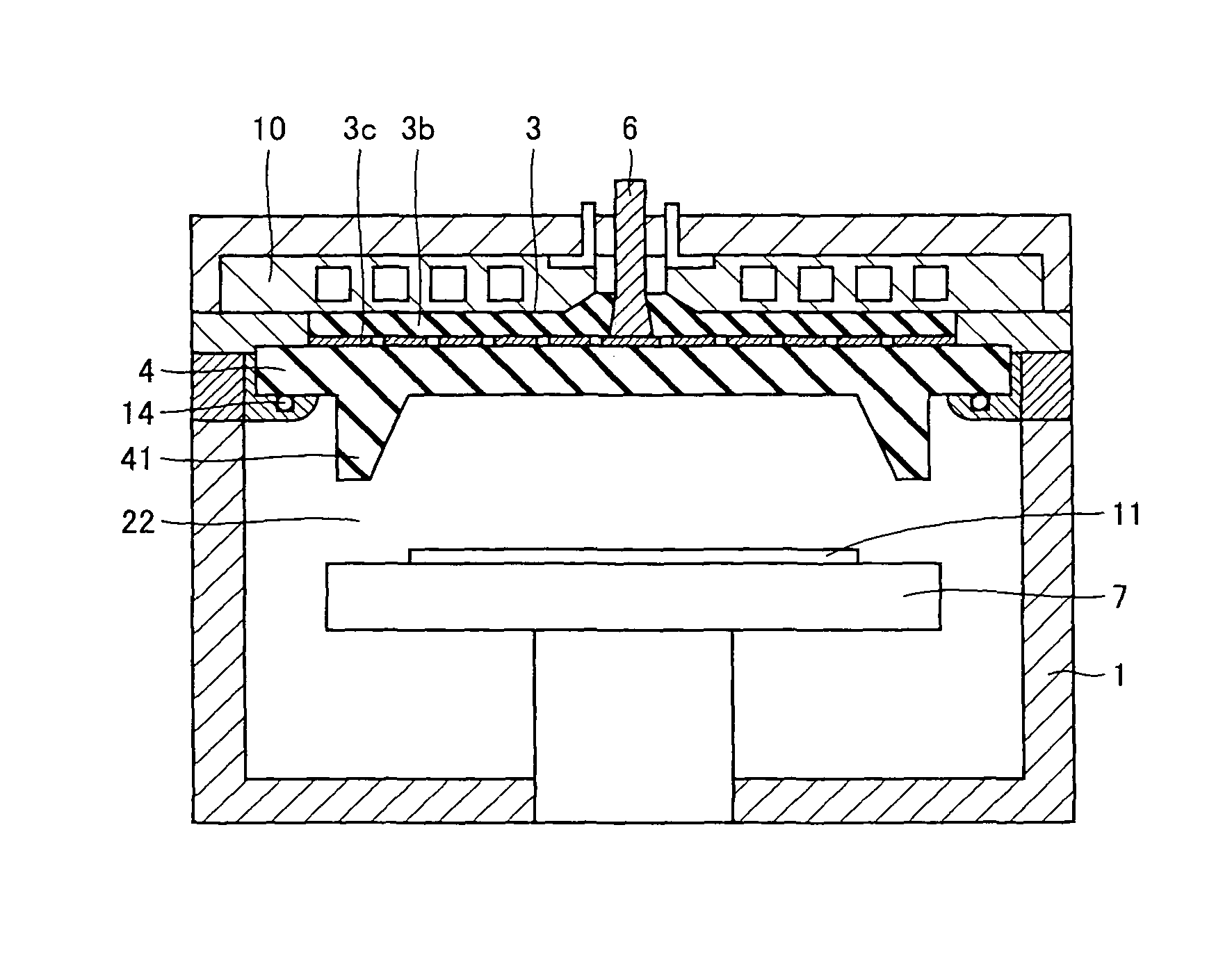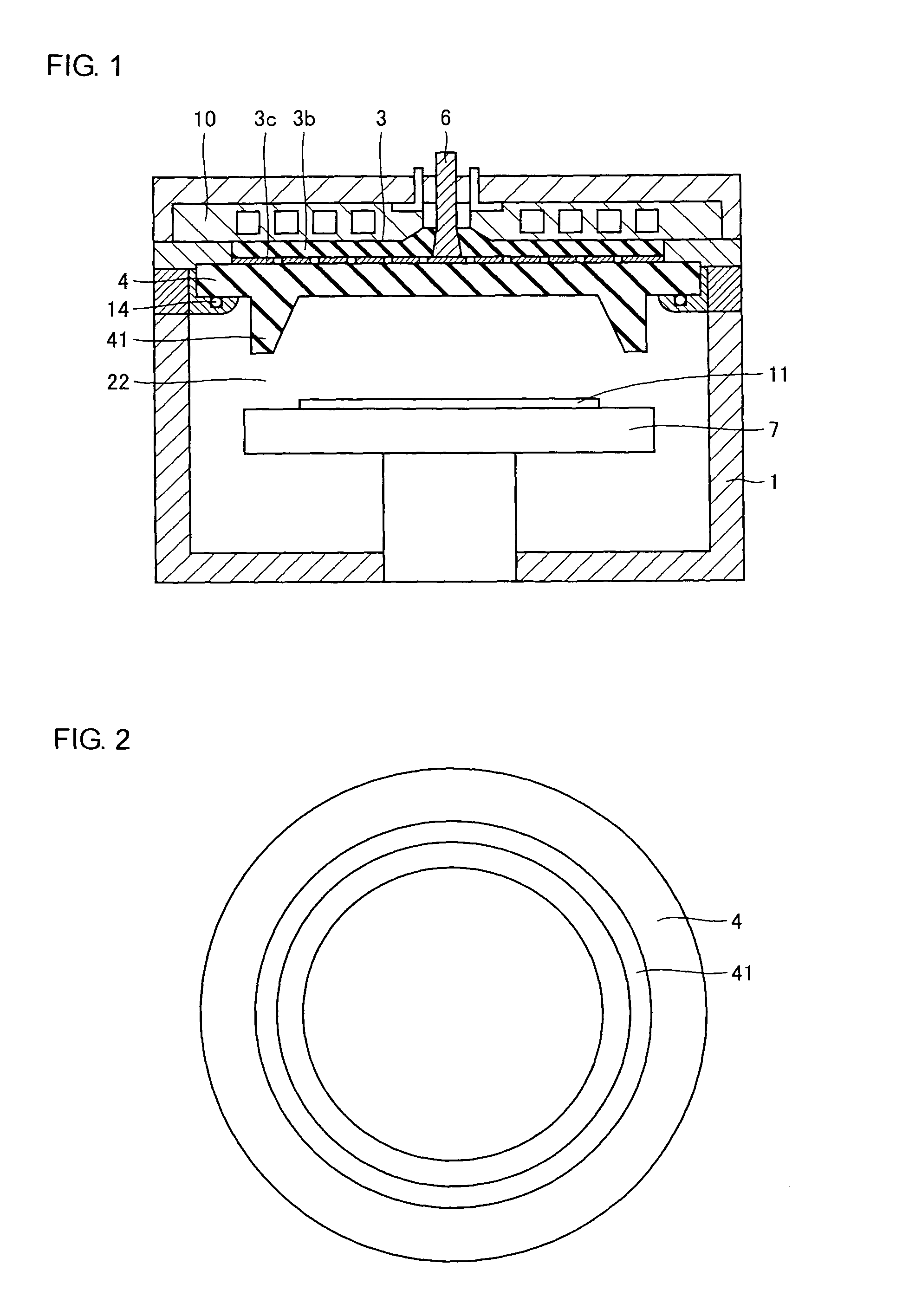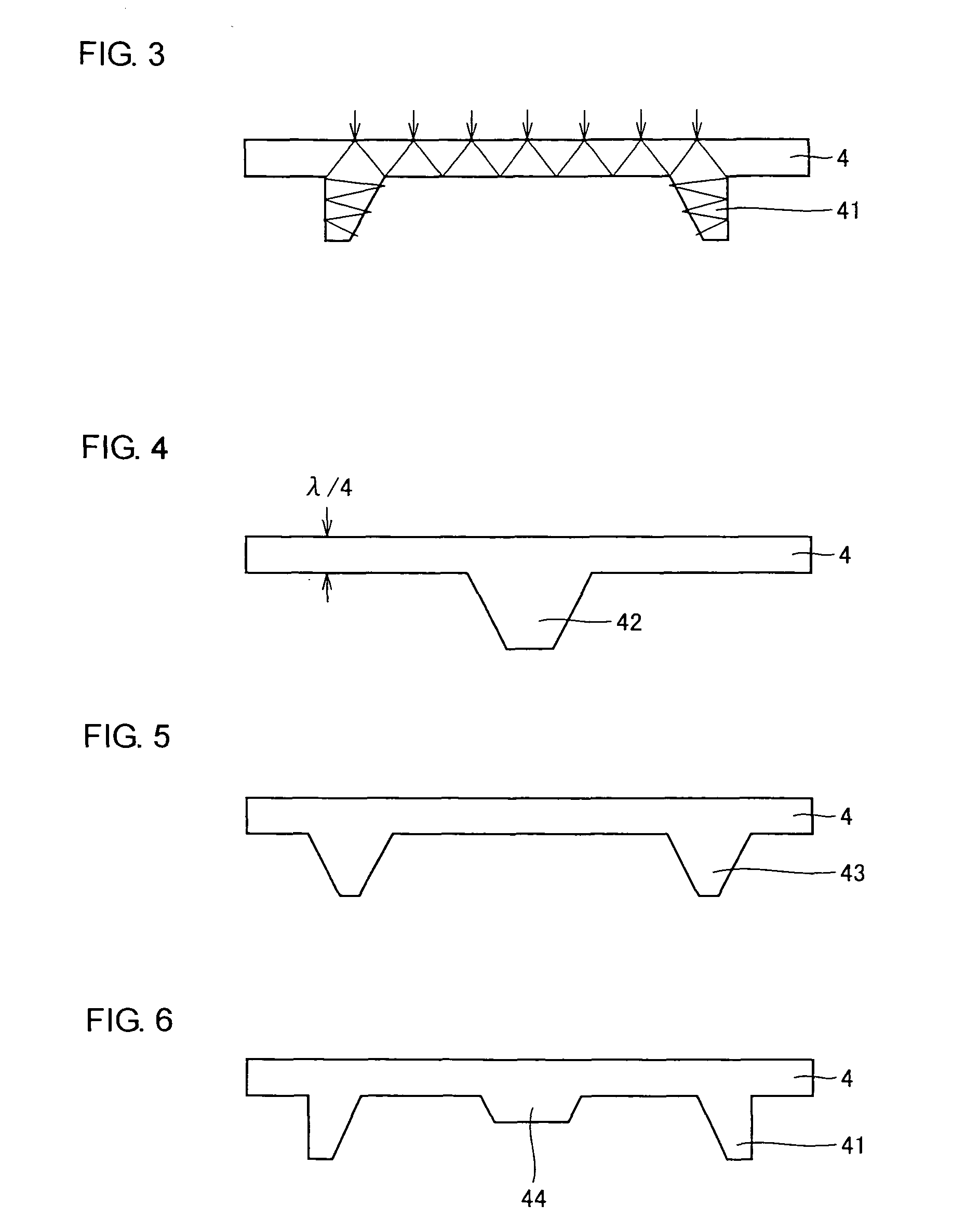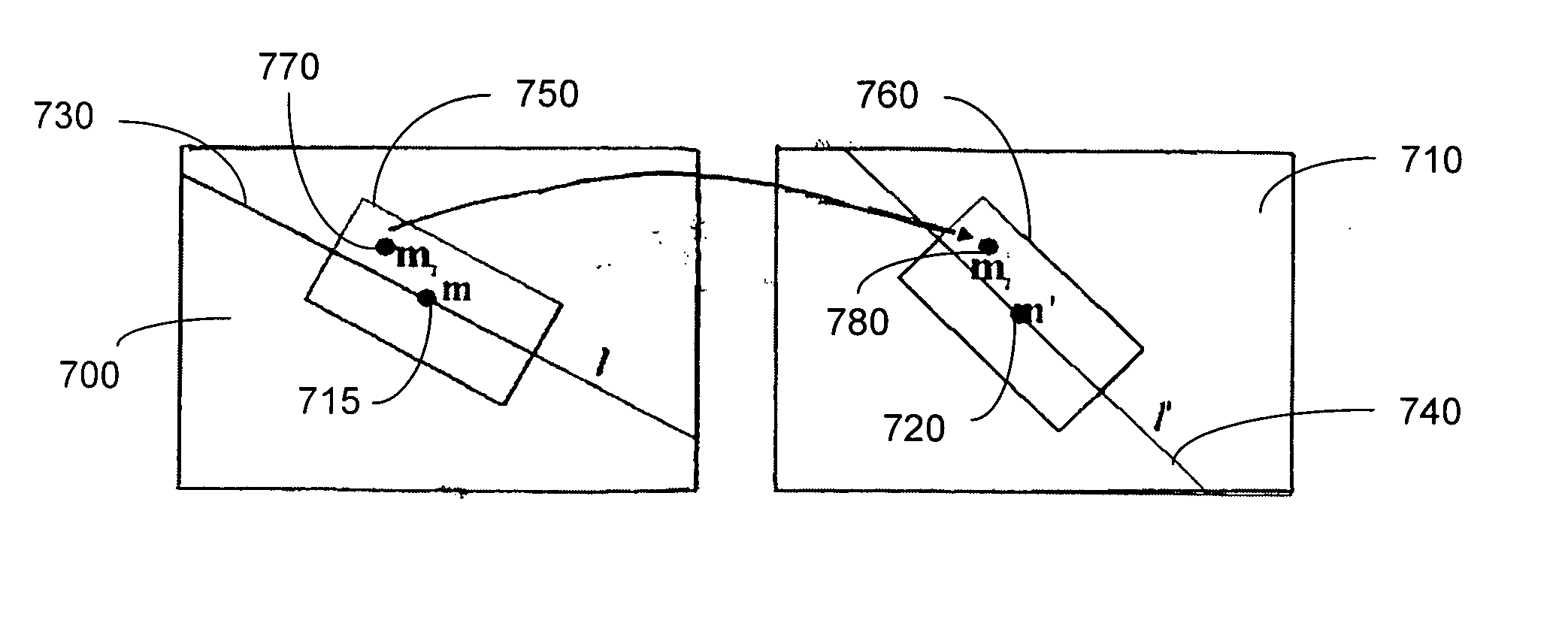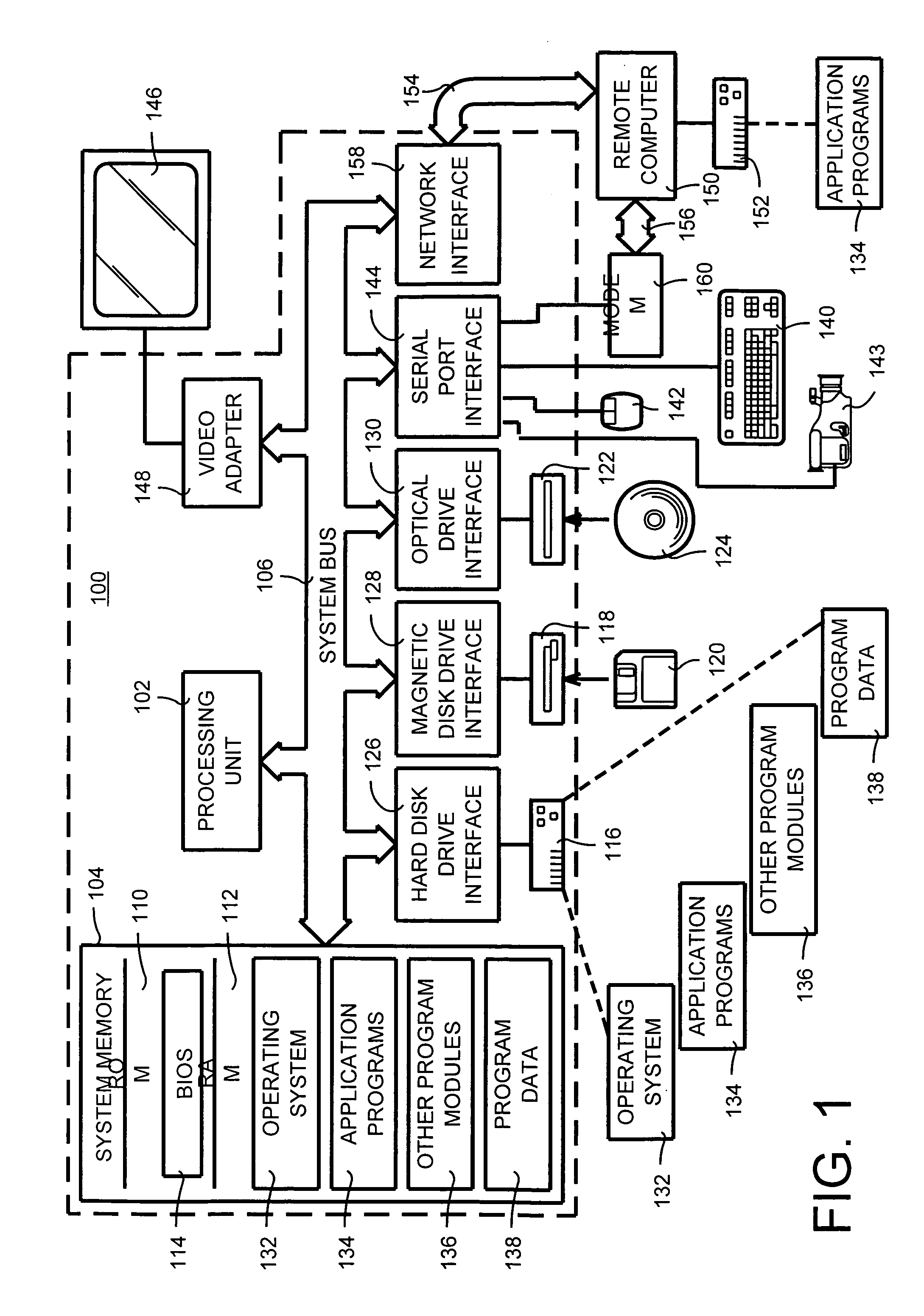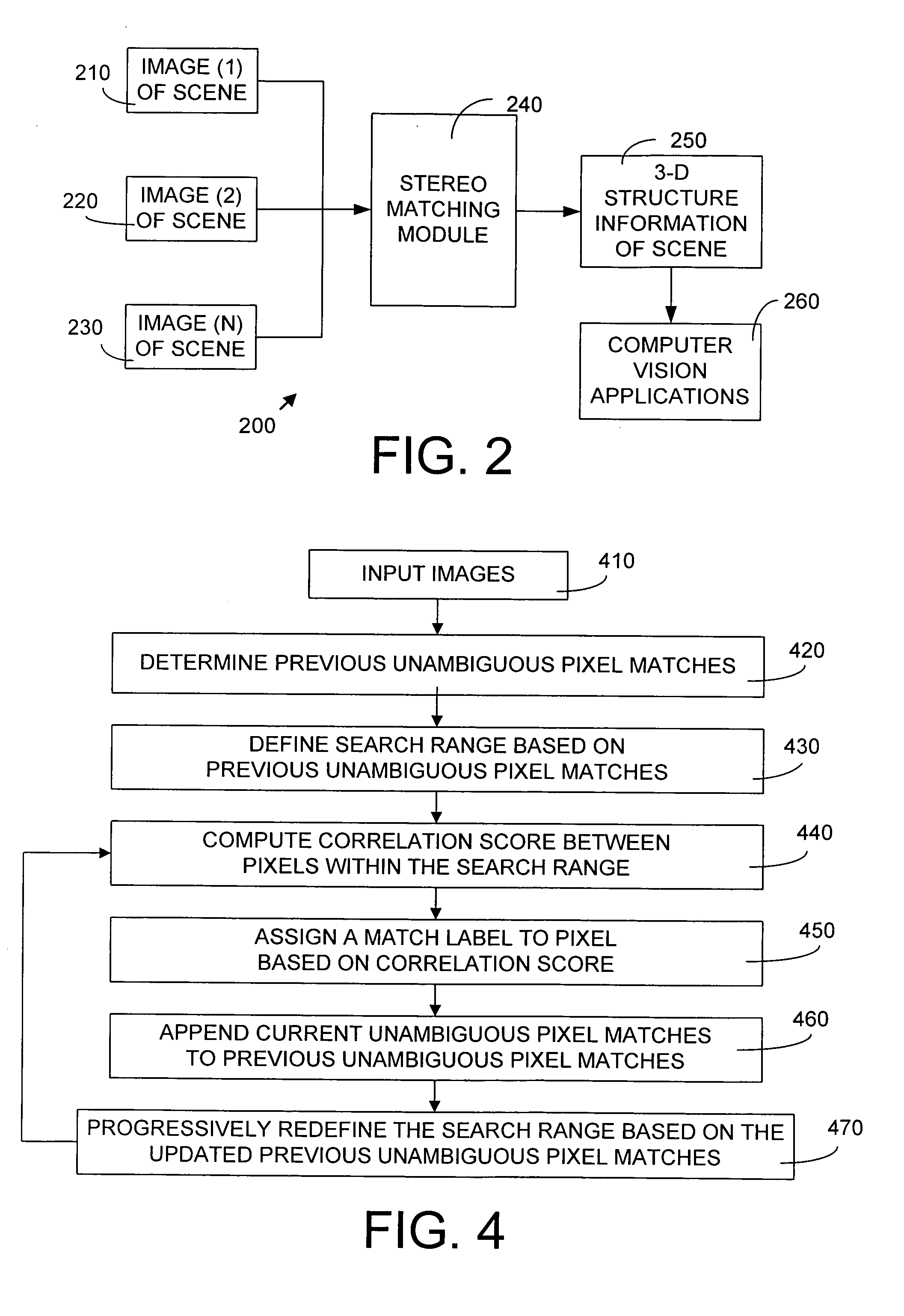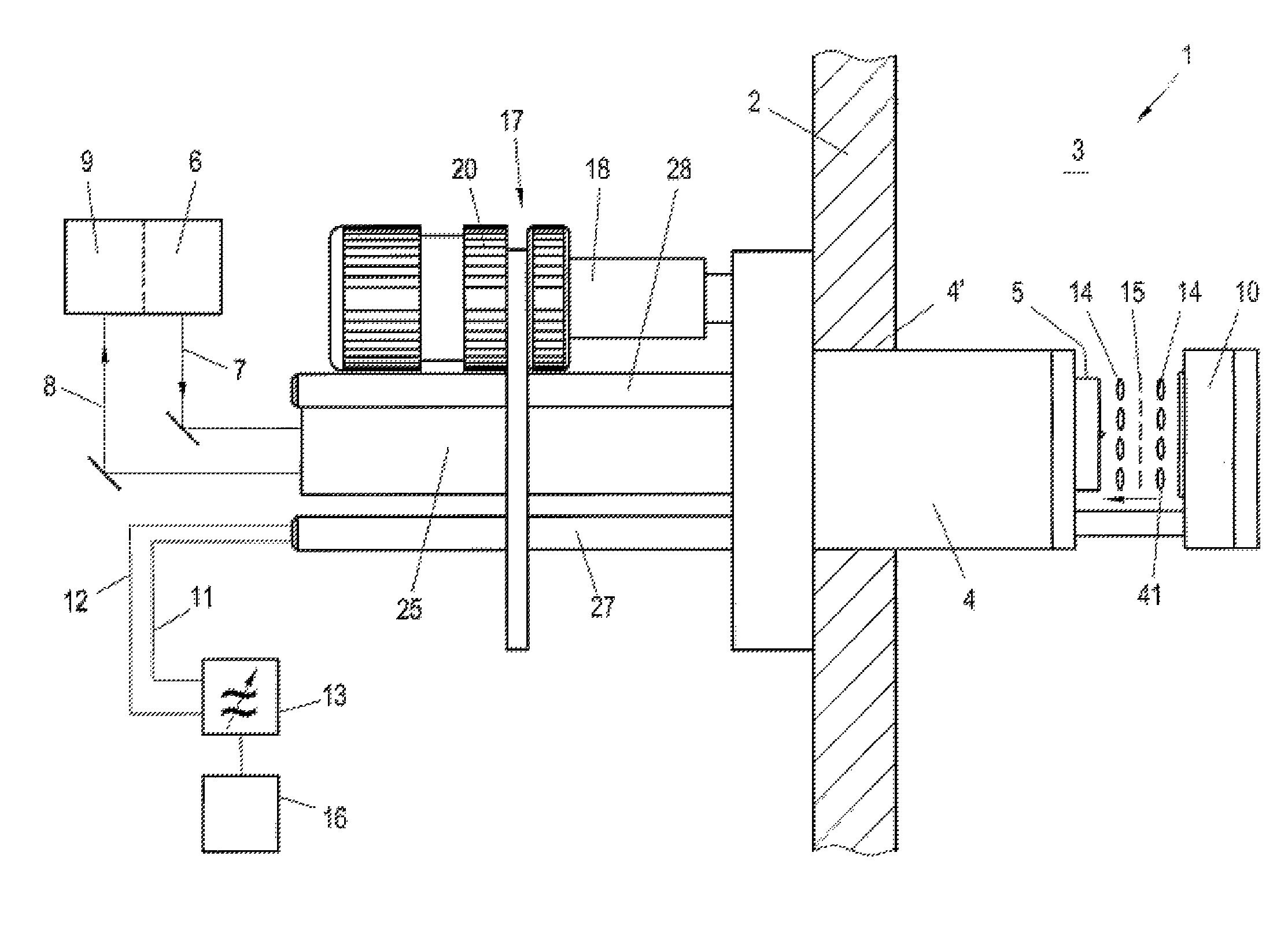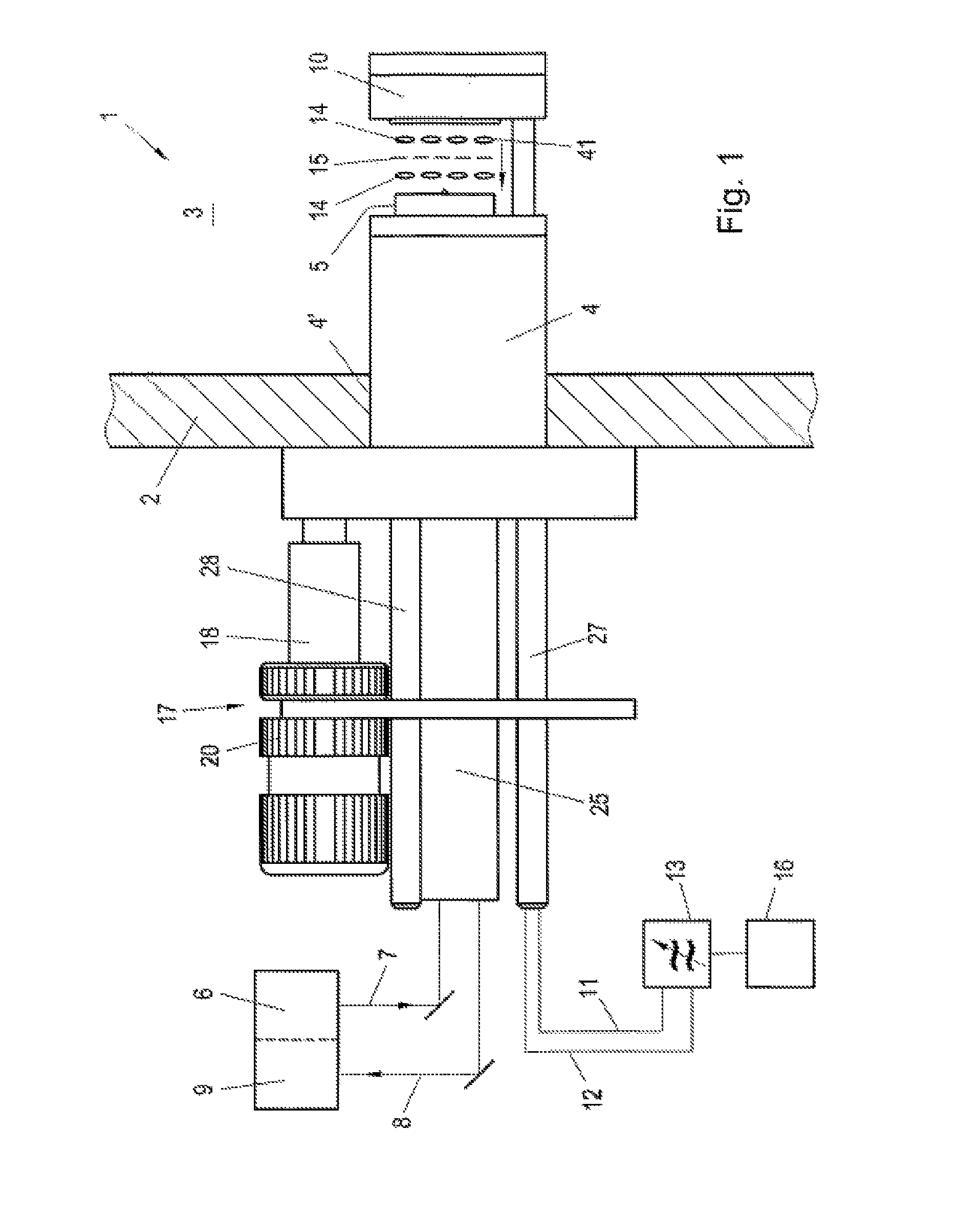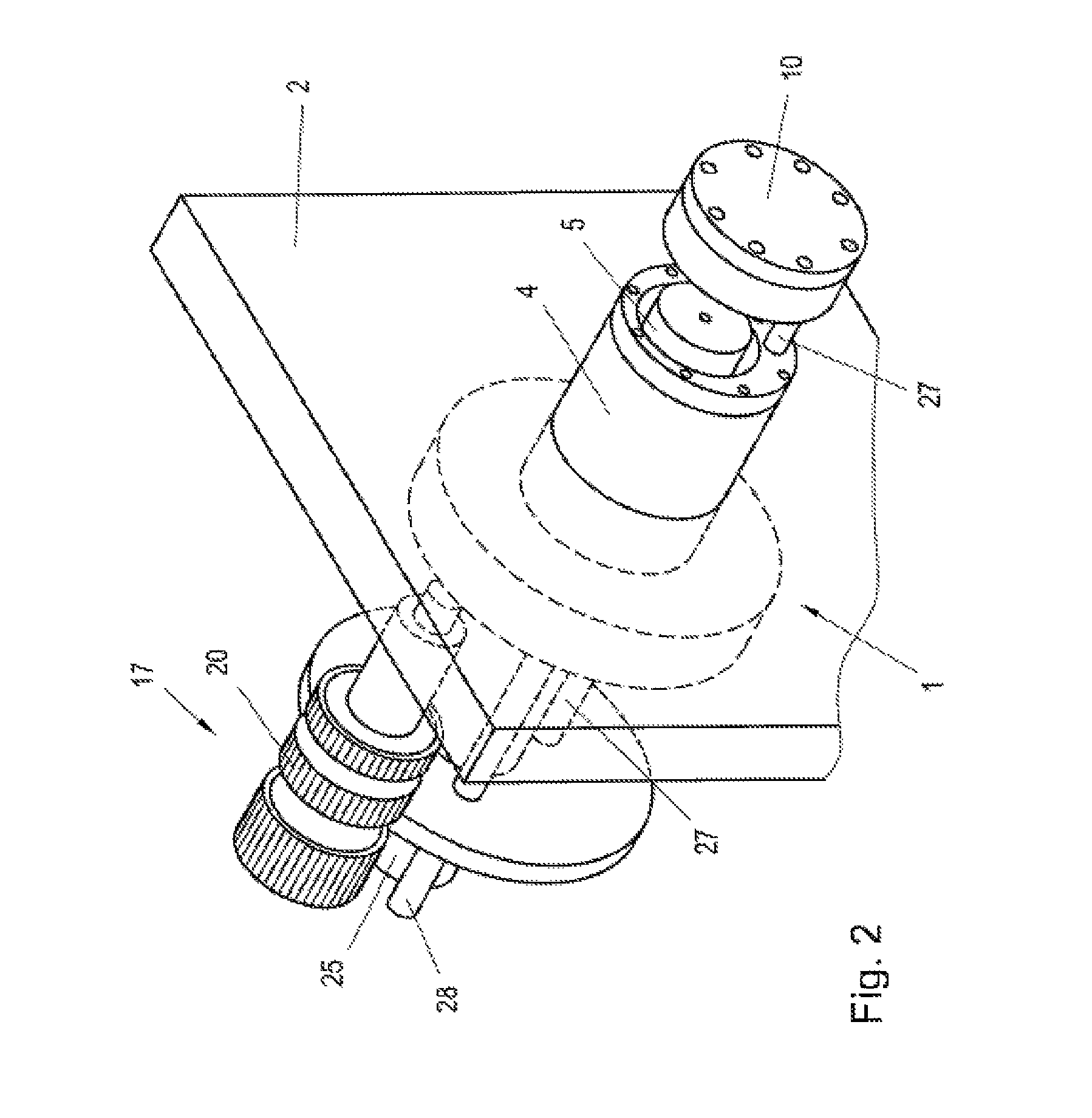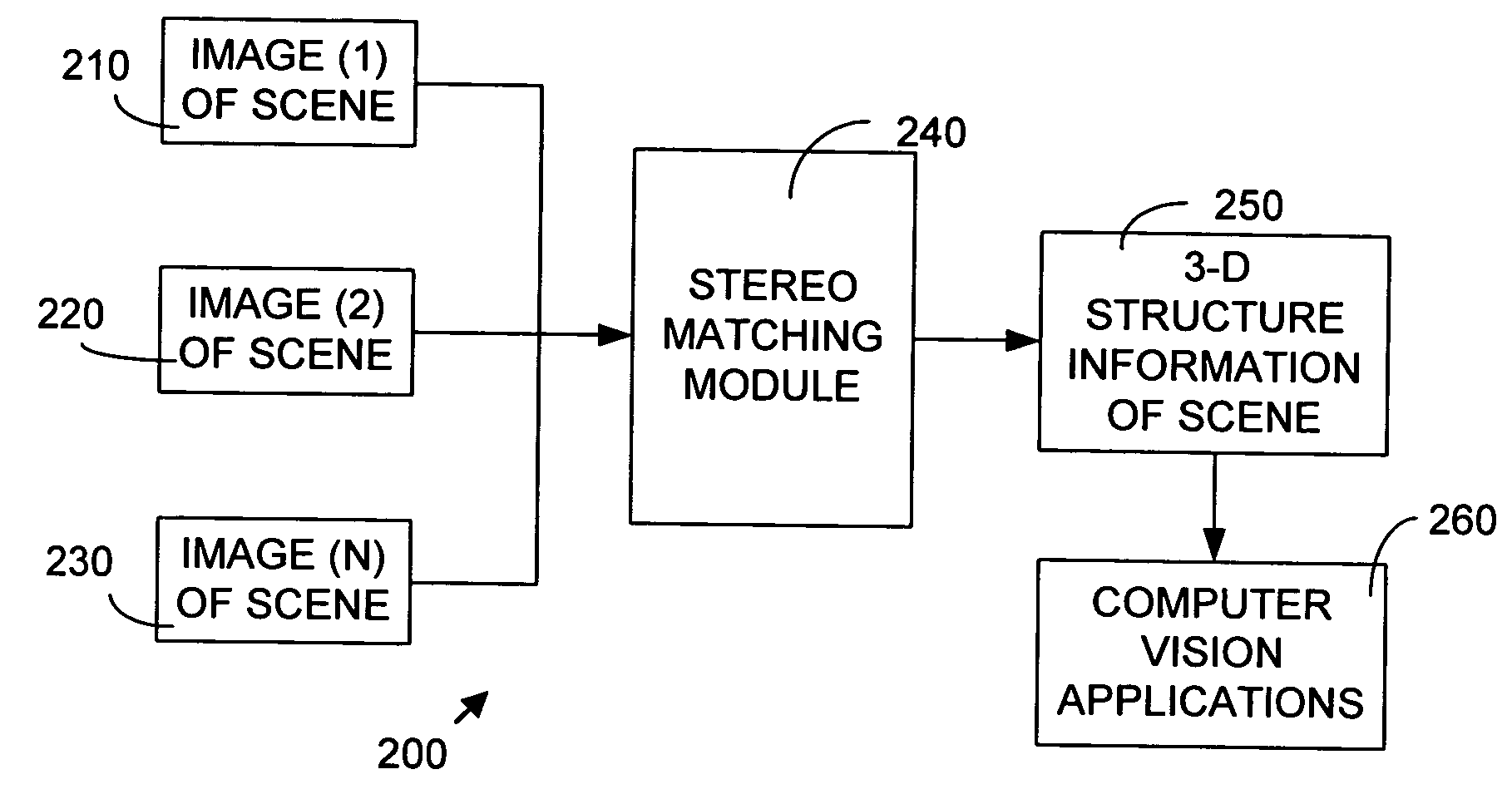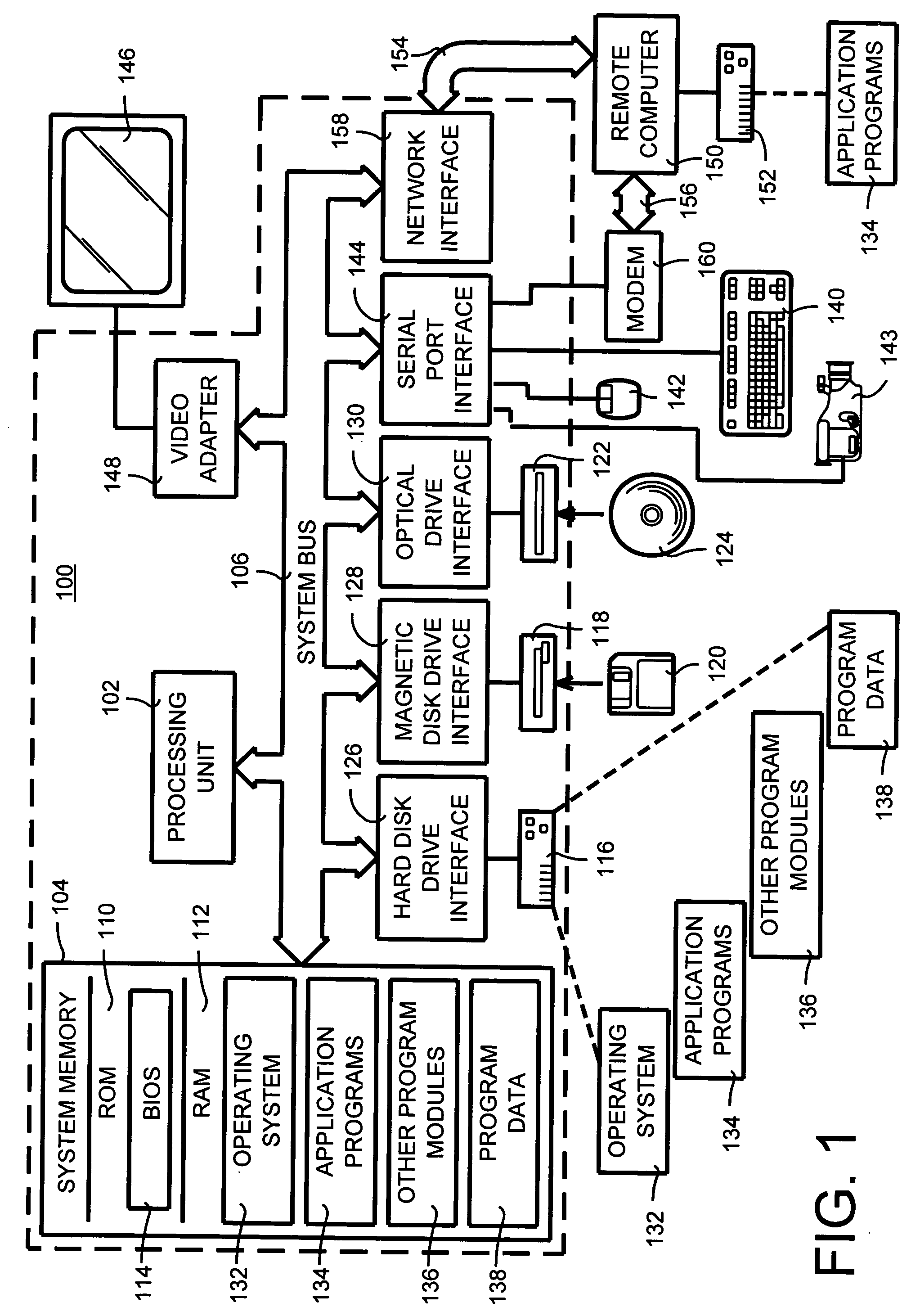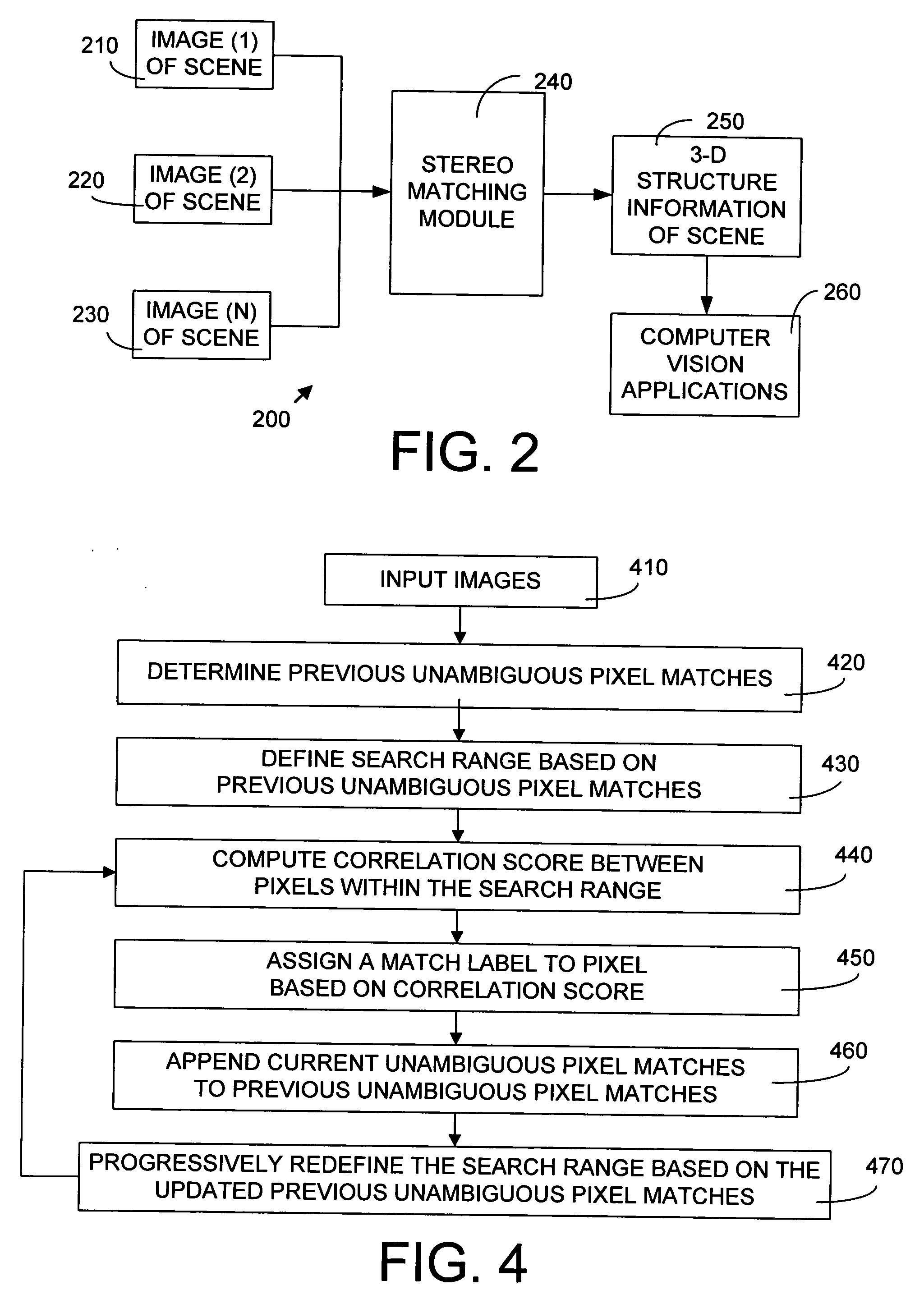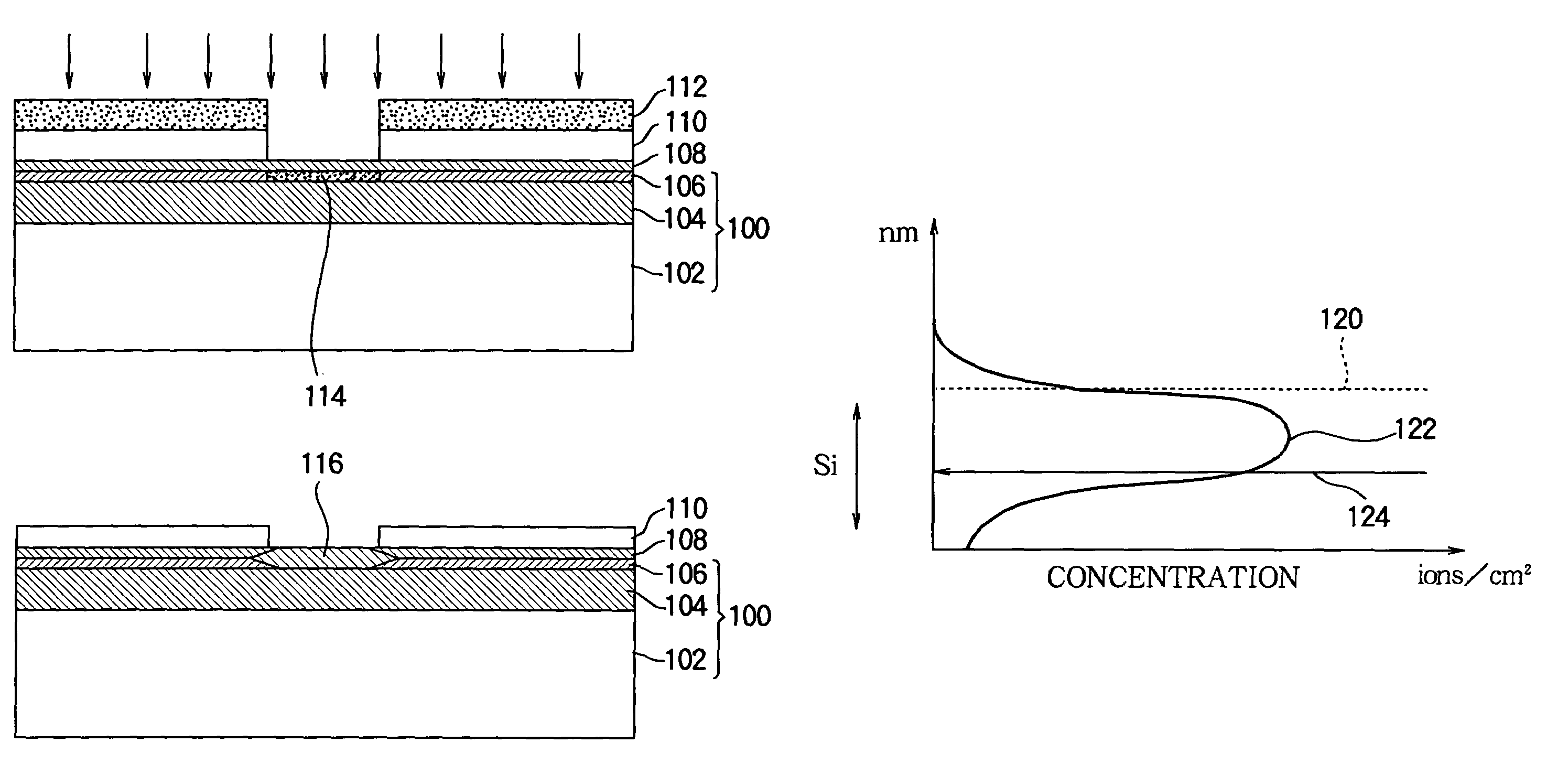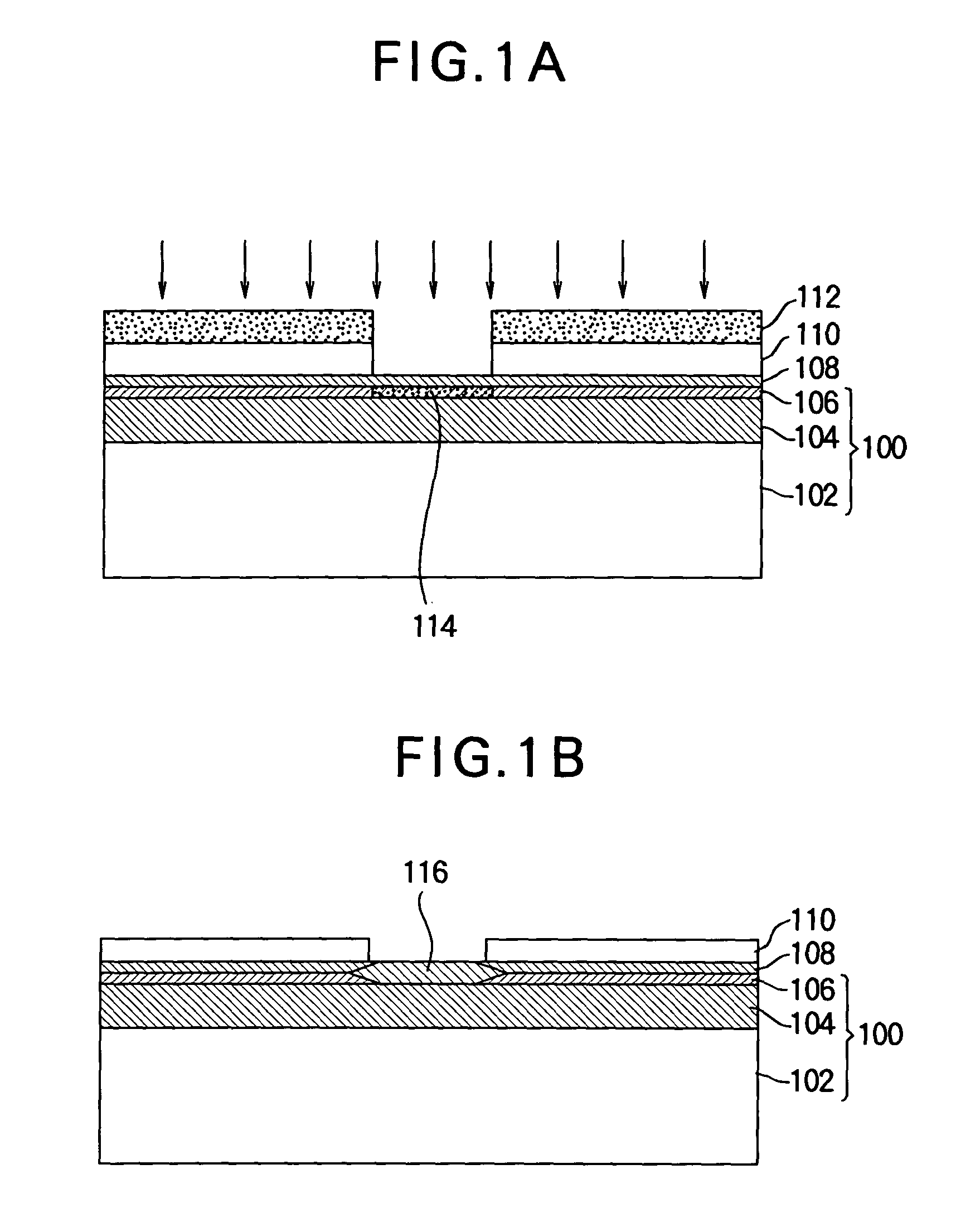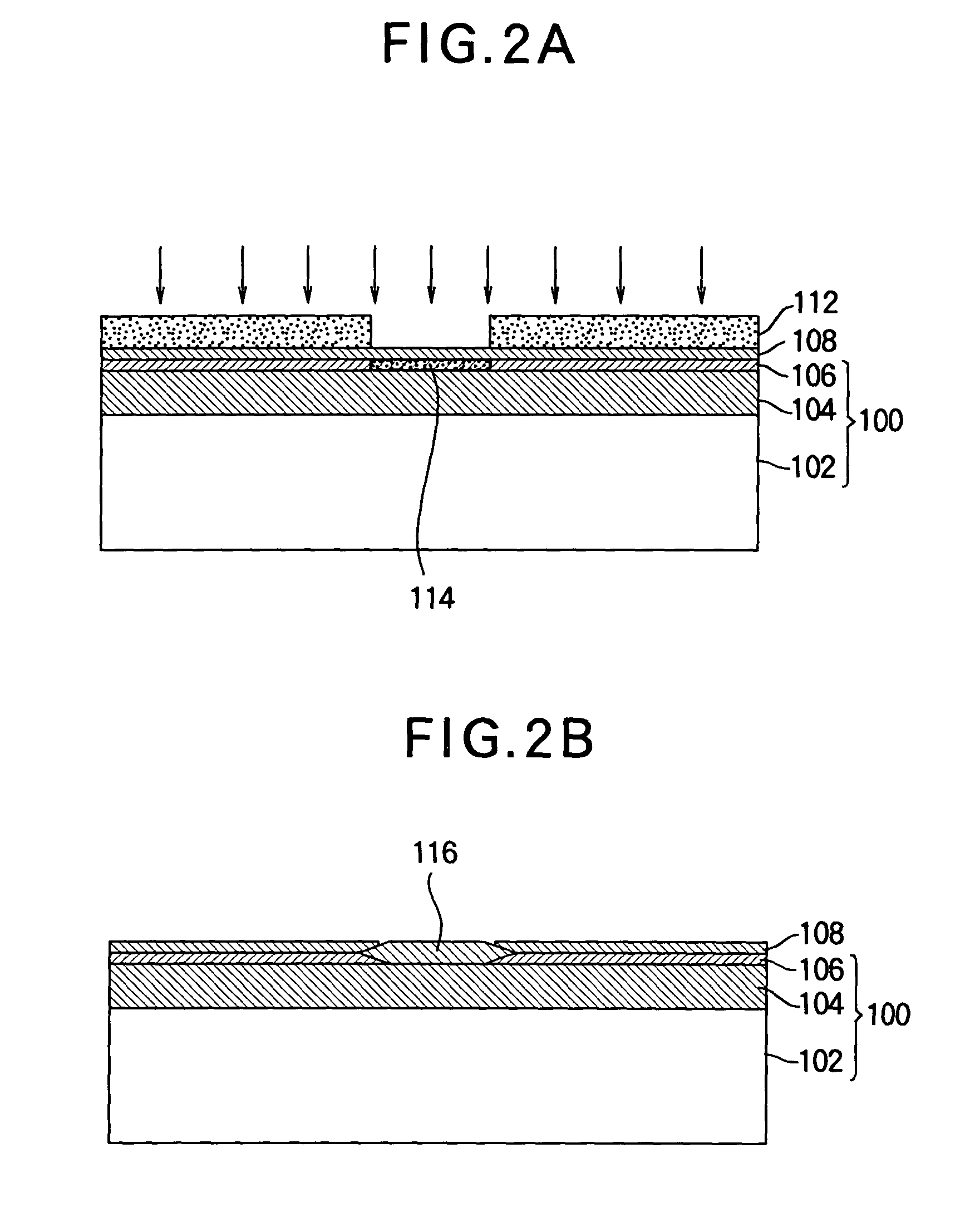Patents
Literature
Hiro is an intelligent assistant for R&D personnel, combined with Patent DNA, to facilitate innovative research.
60results about How to "Region can be great" patented technology
Efficacy Topic
Property
Owner
Technical Advancement
Application Domain
Technology Topic
Technology Field Word
Patent Country/Region
Patent Type
Patent Status
Application Year
Inventor
Anchoring element for securing a rod of a device for adjusting a human or animal vertrebal column on a vertreba
InactiveUS20060155277A1Lower clamping surfaceLower requirementInternal osteosythesisJoint implantsBiomedical engineeringLumbar vertebral column
The invention relates to an anchoring element for securing a rod of a device for adjusting a human or animal vertebral column on a vertebra, comprising a retaining means (10) for receiving the rod, a safety element (26) placed on the retaining means and working against the rod, a securing element (14) which can be placed on the body of the vertebra, and a clamping device (12) which is arranged between the retaining means (10) and the securing element (14), comprising a ring-shaped mount (32), a partially conical-segment shaped bearing (28) and an intermediate element (30) which is embedded in the mount (32) and which engages the bearing, whereby the mounting (32) is moveable in a removed state in relation to the bearing (28), whereas the mount (32) is maintained in a clamped state on the bearing (28) by means of the intermediate element (30). The mount (32) is rigidly connected to the retaining means (10) and the bearing (28) is rigidly connected to the securing element (14). In order to enable said type of anchoring element, despite the fact that it is displaceably retained, to transmit relatively large amounts of force from the rod to the body of the vertebra without causing slipping, the bearing (28) comprises flat guiding surfaces (38, 40) which are formed laterally on two opposite sides (34, 36), and the intermediate element (30) is provided with corresponding counter surfaces (50, 52).
Owner:METZ STAVENHAGEN PETER
Stent delivery under direct visualization
ActiveUS20090203962A1Facilitate navigationEasy to navigateStentsSurgical navigation systemsLesionPre delivery
Stent delivery under direct visualization utilizing an imaging hood is described herein. A stent may be delivered and placed in or around lesions, e.g., ostial lesions, through a delivery catheter while being directly visualized via an imaging hood. A pre-delivery assessment probe may also be advanced to the desired site for accurate placement of the stent.
Owner:INTUITIVE SURGICAL OPERATIONS INC
Method for modification of radiotherapy treatment delivery
ActiveUS20050201516A1Improve harmConvenience to workElectrotherapyDiagnostic recording/measuringMedical physicsPlanned Dose
The present invention provides a novel method of contoured-anatomy dose repositioning (CADR) as a means to automatically reposition a patient to better recover the planned dose distribution without reoptimize the treatment plan. Specifically, CADR utilizes planning CT images, the planned dose distribution, and on-line images for repositioning dose distribution on a given day. Contours are also placed upon the images using manual, automatic, template-based, or other techniques. CADR then optimizes the rigid-body repositioning of the patient so that the daily dose distribution closely matches the planned dose distribution. The present invention also provides a method of multiple-margin optimization with daily selection (MMODS) to improve radiation delivery without reoptimization. During the initial optimization procedure, plans are optimized for several margins of various contours (e.g., tight, medium, loose, etc.), or with different objectives (e.g., aggressive treatment, sensitive structure sparing, etc.). Similarly, if multiple patient image sets are available, plans can be optimized for the different anatomical layouts, either using current information, or accumulated information regarding the superposition of organ locations in the combination of images. A user can then choose in real time from a variety of optimized plans, generally with different margins, during the treatment process, and thereby compensate for a recognized change in size or position of the tumor or neighboring tissue.
Owner:TOMOTHERAPY INC
Method and system of optimized sequencing and configuring of items for packing in a bounded region
The present invention includes methods of selecting cases in which to pack items in an item order and selecting the sequence and configuration of placement of items into the selected cases. One such method includes examining an order comprising a list of items to be packed, determining the cases available for packing, determining the minimum number of cases required for packing the items in the list of items to be packed, selecting a case to be packed with one or more of the items in the list of items to be packed, wherein said selecting a case comprises determining a desired average volume per case and selecting the smallest of the cases available to be packed that comprises a volume in excess of the average volume per case, and determining the configuration of placement in the case to be packed of items in the list of items to be packed. Such steps may be repeated until all items in the item list are selected and configured for packing.
Owner:NEW BREED
Method for modification of radiotherapy treatment delivery
ActiveUS8406844B2Reduce deliveryAvoid structureElectrotherapyDiagnostic recording/measuringTemplate basedPlanned Dose
Owner:TOMOTHERAPY INC
Method for automatic identification of a hair region
InactiveUS20050244057A1Region can be greatEasy to masterCosmetic preparationsHair cosmeticsPattern recognitionHair Colors
A method for automatic identification of a hair region is provided wherein edges are identified from an original image including a face and hair, the direction and length of the lines which form each individual edge are stored, line bundles in which lines of the same direction are gathered are searched, the color of the line bundles is established to be the hair color, line tracing is performed to identify lines which connect to line bundles and also have afore-mentioned hair color, and the pixels on the identified lines are established to be the hair region. A hair color simulation image is formed by changing the hair region, automatically identified in this manner, to a specified hair color.
Owner:KAO CORP
Solid oxide fuel cell
InactiveUS20070015015A1Efficient and stable power generationEasy to moveHydrogenElectrode carriers/collectorsFuel cellsEngineering
An object of the present invention is to provide a solid oxide fuel cell assembled with an internal reforming mechanism stable and efficient over a long period. To achieve the object, in the present invention, a fuel-electrode layer 3 and an air-electrode layer 4 are disposed on both surfaces of a solid electrolyte layer 2; a fuel-electrode-side porous metal 6 and an air-electrode-side porous metal 7 are disposed on the outer surfaces of the fuel-electrode layer 3 and the air-electrode layer 4, respectively; and a separator 8 is disposed on each of the outer surfaces of the fuel-electrode-side porous metal 6 and the air-electrode-side porous metal 7. Then, the solid oxide fuel cell is constructed by closely adhering them all. The pores 6a in the fuel-electrode-side porous metal 6 is partially or fully filled with a hydrocarbon reforming catalyst 10, and reforming reaction is driven by the reforming catalyst 10 before a fuel gas reaches the fuel-electrode layer 3.
Owner:MITSUBISHI MATERIALS CORP +1
Adaptive phase contrast microscope
InactiveUS20120257040A1Region can be greatEnhance the imageColor television detailsClosed circuit television systemsMicro platePhase image
An optical microscope is provided with an adjustable optical phase ring. The adjustable ring provides a way to compensate for distortion in the visible phase ring before the light reaches the sample. In an inverted microscope, when observing transparent cells under a liquid, the visible light phase ring is distorted. By the use of a Liquid Crystal Display (LCD) in place of a fixed ring, the projected ring is adjusted to realign the light and produce phase. In a typical micro plate, the meniscus formed produces a lens effect that is realigned by providing changes in the position and pattern, to allow phase imaging over a wider portion of the well. The realignment of the ring can be manual or automated and can be dynamically adjusted based upon an observed image of the sample.
Owner:KAIROS INSTR
Method for gathering information relating to at least one object arranged on a patient positioning device in a medical imaging device and a medical imaging device for carrying out the method
InactiveUS20130342851A1None have achieved superiorQuicker and effective measuring procedurePatient positioning for diagnosticsDiagnostic recording/measuringMedical imagingData recording
A method for gathering information relating to at least one object positioned on a patient positioning device of a medical imaging device is provided. The method includes the following steps:gathering by optical means of 3-D image data relating to the object positioned on the patient positioning device by means of a 3-D image data recording unit,transferring the gathered 3-D image data from the 3-D image data recording unit to an evaluating unit,determining information relating to the object positioned on the patient positioning device based on the 3-D image data by means of the evaluating unit,generating output information based on the determined information relating to the object positioned on the patient positioning device, andoutputting the output information relating to the object positioned on the patient positioning device.
Owner:SIEMENS AG
Anchoring system for medical implant
InactiveUS20070173926A1Reduces and eliminates mitral valve regurgitationIncreasing effectiveness and adaptabilityHeart valvesBlood vesselsCoronary arteriesShape change
Embodiments of the invention provide a medical implant, and method for deploying the same, configured for placement in a body lumen such as a coronary sinus, as may be desired to treat a regurgitant mitral valve. The implant includes a proximal anchor, a distal anchor, and an elongate bridge extending between the proximal and distal anchors. The anchors are configured to be delivered to a desired deployment site within the body lumen in a collapsed or contracted condition and then expanded to engage the walls of the body lumen. The bridge is preferably a shape-changing member configured to contract after delivery into the coronary sinus for applying a compressive force to the annulus of the mitral valve. The proximal and distal anchoring mechanisms preferably overlap the proximal and distal end portions of the bridge, thereby providing the implant with a longer bridge having greater contraction.
Owner:EDWARDS LIFESCIENCES CORP
Pants liner
InactiveUS20070135788A1Effective maintenanceEffectively provide desired level of discretionSanitary towelsBaby linensPersonal careEngineering
A personal care article (20) has a longitudinal-direction (22); a relatively shorter, lateral cross-direction (24); a first end-edge (74); a longitudinally-opposed second end-edge (78); a first side-edge (62); and a laterally-opposed second side-edge (64). The article includes a liquid-permeable topsheet layer (26), and a backsheet layer (28) operatively connected in facing relation with the topsheet layer. A first end-notch (80) is formed to extend inward from the first end-edge (74), and a second end-notch (82) is formed to extend inward from the second end-edge (78). In a particular aspect, at least a first, end-line of bending weakness (88) extends from an inboard, apex end region of the first end-notch (80). In other aspects, a first side-notch (66) can be formed to extend inward from the first side-edge (62), and a second side-notch (70) can be formed to extend inward from the second side-edge (64).
Owner:KIMBERLY-CLARK WORLDWIDE INC
Imprint apparatus, template of imprint apparatus, and article manufacturing method
An imprint apparatus includes a dispenser, a detector configured to detect an alignment mark located on a pattern surface of a template, and a controller. The pattern surface includes a first region including a pattern corresponding to the resin pattern, and a second region including the alignment mark, and is formed such that a second time when a recess in the second region is filled with the uncured resin is later than a first time when a recess in the first region is filled with the uncured resin. The controller causes the dispenser to dispense, on the substrate, the uncured resin that has an amount such that the recesses in the first and second regions are filled with the uncured resin and causes the detector to detect the alignment mark between the first time and the second time.
Owner:CANON KK
Torsional vibration damper
InactiveUS20010007383A1Region can be greatReduce wearYielding couplingRotary clutchesImpellerTurbine wheel
A torsional vibration damper for a hydrodynamic clutch device particularly for coupling a turbine wheel hub with a turbine wheel shell and / or for coupling a lockup clutch arrangement with a turbine wheel, includes a primary side and a secondary side which is rotatable about an axis of rotation with respect to the primary side against the action of a damper element arrangement. A radial bearing arrangement is arranged for radially supporting the primary side and secondary side with respect to one another. For this purpose, the radial bearing arrangement is arranged radially outside of the damper element arrangement.
Owner:MANNESMANN SACHS AG
Pliers for Pressing Work Pieces
ActiveUS20080163664A1Great press forceImprove the situationLine/current collector detailsPliersTransfer mechanismEngineering
Pliers for pressing work pieces such as mountings, electric contacts, cable lugs and fittings include a first hand lever and a second hand lever. The hand levers are movable with respect to one another. The pliers also include a head and at least two pressing jaws being located in the region of the pliers head and approaching one another during a working stroke of the pressing pliers to press a work piece. The working stroke includes a first partial stroke and a second partial stroke. The pliers also include a first transfer mechanism and second transfer mechanism.
Owner:WEZAG - WERKZEUGFAB
System and method for progressive stereo matching of digital images
InactiveUS20050163366A1Reliably and efficiently determineReduce false matchesImage enhancementImage analysisParallaxStereo matching
A method and a system for progressive stereo matching of digital images representing a scene. In general, the present invention uses a progressive iterative technique that includes a disparity gradient limit principle and a least commitment strategy. Generally unambiguous pixel matches are found by beginning with a few reliable pixel matches and finding progressively more unambiguous pixel matches. Unambiguous pixel matches are used to define the search ranges for each pixel to guide matching in the current iteration. Unambiguous pixel matches then are found using a novel correlation technique and based on a correlation score associated with a pixel match. The search range is capable of being rotated, and is part of a novel correlation technique that provides a more robust estimate of pixel match reliability. Potential pixel matches found in the search ranges are tested for ambiguity and unambiguous matches are selected and added to the reliable pixel matches.
Owner:MICROSOFT TECH LICENSING LLC
Radar sensor for use with automobiles
InactiveUS7268732B2Improve directionalityDecreased wavelengthSimultaneous aerial operationsAntenna adaptation in movable bodiesPulse radiationAcoustics
The invention relates to a radar sensor (10) for use with automobiles. Said radar sensor emits pulsed radiation. The radar sensor is characterized in that it comprises an antenna with at least one layer-structured block (34) consisting of metal layers (36, 38, 40, 42) which are arranged according to the Yagi principle and which are respectively separated from each other by a dielectric intermediary layer (46, 48, 50). At least one of the metal layers (36, 38, 40, 42) is excited by a supply system (18) with a radar frequency.
Owner:VALEO SCHALTER & SENSOREN
Whiteboard view camera
InactiveUS7397504B2Large apertureSmall apertureTelevision system detailsColor signal processing circuitsCamera lensWhiteboard
A whiteboard view camera, which in one embodiment is mounted on a boom, which is fixed above the whiteboard. However, the whiteboard view camera can also be wall or table mounted. The whiteboard view camera differs from an ordinary camera by allowing the lens to tilt with respect to the sensor plane, and shift with respect to the central ray. When the tilt angle α is zero, then the resolution of whiteboard is uniform (e.g., the top and bottom of the whiteboard have the same resolution). In addition, the focus plane is equal to the whiteboard plane, so depth of field issues are not a problem (e.g., a large aperture can be used). Hence, no image noise is introduced. A key contribution of the whiteboard view camera configuration according to the invention is the use of a view camera to capture whiteboard images at uniform resolutions. One embodiment of the whiteboard view camera employs a microphone array of the invention and uses a computer to optimize the image data and audio signals.
Owner:MICROSOFT TECH LICENSING LLC
Production of actinium-227 and thorium-228 from radium-226 to supply alpha-emitting isotopes radium-223, thorium-227, radium-224, bismuth-212
InactiveUS20140226774A1Region can be greatHigh affinitySpecific isotope recoveryConversion outside reactor/acceleratorsRadium-224Actinium
An actinium-227 production device having a plurality of metallic or ceramic caplets, each enclosing a radium-226 compound in redundantly nested sealed cylinders. The radium-226 compound is compacted into a disk and diluted with heat transporting ceramic materials. A thermal neutron shield including spectrum shaping materials to protect actinium-227 produced from exposure to thermal neutrons is included along with a strong neutron absorber to shape the neutron spectrum such that radium-226 nuclei are exposed to neutrons in the higher epithermal energy groups upon entry into the target with an energy of between 20 eV and 1 KeV.
Owner:THORENCO MEDICAL ISOTOPES
System and method for progressive stereo matching of digital images
InactiveUS20050123191A1Reliably and efficiently determineReduce false matchesImage enhancementImage analysisStereo matchingComputer vision
System and method for progressive stereo matching of digital images representing a scene. In general, the progressive stereo matching system includes an initialization module, that obtains a set of previous unambiguous matches of pixels within the digital images, and a search range module, that determines a search range in the first and second digital images to look for a candidate pixel match. The progressive stereo matching system also includes a correlation module, that computes a correlation score between the candidate pixel match, and a classification module, that classifies the pixel match based on its correlation score.
Owner:MICROSOFT TECH LICENSING LLC
Locating Device
InactiveUS20140085144A1Improve reliabilityDesign economyBeacon systemsPortable power-driven toolsLocation EquipmentElectrical and Electronics engineering
Owner:ROBERT BOSCH GMBH
Solid-state imaging device
ActiveUS20140091368A1Region can be greatPotential stabilitySolid-state devicesSemiconductor/solid-state device manufacturingPhotoelectric conversionCondensed matter physics
A solid-state imaging device including: a semiconductor substrate of a first conductivity type, having a fixed electric potential; a dark-current drain region of a second conductivity type, formed on a portion of the semiconductor substrate; a connection region of the first conductivity type, formed on another portion of the semiconductor substrate where the dark-current drain region is not formed; a well region of the first conductivity type, covering the dark-current drain region and the connection region; and a first region and a second region, formed within the well region and constituting a part of a read transistor that reads signal charge generated by photoelectric conversion. The well region is maintained at a fixed electric potential by being connected to the semiconductor substrate via the connection region.
Owner:PANASONIC INTELLECTUAL PROPERTY MANAGEMENT CO LTD
Method for automatic identification of a hair region
InactiveUS7382894B2Region can be greatEasy to masterCosmetic preparationsHair cosmeticsPattern recognitionHair Colors
A method for automatic identification of a hair region is provided wherein edges are identified from an original image including a face and hair, the direction and length of the lines which form each individual edge are stored, line bundles in which lines of the same direction are gathered are searched, the color of the line bundles is established to be the hair color, line tracing is performed to identify lines which connect to line bundles and also have afore-mentioned hair color, and the pixels on the identified lines are established to be the hair region. A hair color simulation image is formed by changing the hair region, automatically identified in this manner, to a specified hair color.
Owner:KAO CORP
Torsional vibration damper
InactiveUS6715595B2Region can be greatReduce wearYielding couplingRotary clutchesImpellerTurbine wheel
A torsional vibration damper for a hydrodynamic clutch device particularly for coupling a turbine wheel hub with a turbine wheel shell and / or for coupling a lockup clutch arrangement with a turbine wheel, includes a primary side and a secondary side which is rotatable about an axis of rotation with respect to the primary side against the action of a damper element arrangement. A radial bearing arrangement is arranged for radially supporting the primary side and secondary side with respect to one another. For this purpose, the radial bearing arrangement is arranged radially outside of the damper element arrangement.
Owner:MANNESMANN SACHS AG
Pliers for pressing work pieces
ActiveUS8127589B2Improve the situationMaterial minimizationLine/current collector detailsPliersEngineeringTransfer mechanism
Pliers for pressing work pieces such as mountings, electric contacts, cable lugs and fittings include a first hand lever and a second hand lever. The hand levers are movable with respect to one another. The pliers also include a head and at least two pressing jaws being located in the region of the pliers head and approaching one another during a working stroke of the pressing pliers to press a work piece. The working stroke includes a first partial stroke and a second partial stroke. The pliers also include a first transfer mechanism and second transfer mechanism.
Owner:WEZAG - WERKZEUGFAB
Production of Nanoparticles
InactiveUS20120152735A1Increase in sizeRegion can be greatCellsVacuum evaporation coatingAlloyComposite nanoparticles
Composite nanoparticles can be produced by a processing apparatus comprising a source of charged, moving nanoparticles or a first material and a first size, apparatus for imposing a like potential in a region lying in the path of the nanoparticles, and a physical vapour deposition source of a second material directed toward the region, thereby to produce nanoparticles of a second and greater size being a composite of the first and second materials. The apparatus for imposing a like potential can comprise one or more conductive rings surrounding the path of the nanoparticles, each at a successively lower potential. The physical vapour deposition source can be one or more of a sputter target, or an evaporative source, or another PVD source. There can be a plurality of physical vapour deposition sources, thereby allowing a larger region in which the shell is deposited. All of the physical vapour deposition sources can deposit the same material, for a uniform shell. Alternatively, different sources could allow for multiple shells or alloy shells.
Owner:MANTIS DEPOSITION
Plasma processing equipment
InactiveUS7930992B2Region can be greatPromote absorptionElectric discharge tubesSemiconductor/solid-state device manufacturingMicrowaveResonance
Resonance can be surely provided under any plasma condition in such a manner that an antenna (3) is arranged in an opening of an upper part of a chamber (1) to produce an electromagnetic field generated by a microwave, a top plate (4) for sealing the opening of the chamber (1) is provided under the antenna (3), a ring-shaped ridge (41) is provided on a lower surface of the top plate (4) such that a thickness thereof in a diameter direction is tapered so as to be varied sequentially. Thus, only one kind of top plate has the same effect as a top plate having various thicknesses, so that absorption efficiency to the plasma can be considerably improved and the plasma can be generated stably over a range from a high pressure to a low pressure.
Owner:TOKYO ELECTRON LTD
System and method for progressive stereo matching of digital images
InactiveUS20050123190A1Reliably and efficiently determineReduce false matchesImage enhancementImage analysisPattern recognitionStereo matching
Method and a system for correlating pixels between two digital images. In general, the present invention uses a progressive iterative technique that finds generally unambiguous pixel matches by beginning with a few reliable pixel matches and finding progressively more unambiguous pixel matches. Unambiguous pixel matches in the current iteration then are found using the correlation technique and based on a correlation score associated with a pixel match. The search range is capable of being rotated, and is part of a novel correlation technique of the present invention that provides a more robust estimate of pixel match reliability. Potential pixel matches found in the search ranges are tested for ambiguity and any unambiguous matches are selected and added to the set of reliable pixel matches. The ambiguity testing includes determining a correlation score for the pixel match and classifying the match based on the correlation score.
Owner:MICROSOFT TECH LICENSING LLC
Device for FTIR absorption spectroscopy
ActiveUS8872117B2Easy to measureEasy to installRadiation pyrometryInvestigating moving fluids/granular solidsUltrasonic sensorAbsorption spectroscopy
The invention relates to a device (1) for FTIR absorption spectroscopy, having an ATR sensor (5) and at least one ultrasonic transmitter (10) for generating an ultrasonic field in the manner of a standing wave. The ATR sensor (5) and the ultrasonic transmitter (10) are connected to a mounting (4) which is provided for attachment in a wall (2) or cover of a reactor (3) and which is set up to hold the ATR sensor (5) and the ultrasonic transmitter (10) so that they freely project into the interior of the reactor (3) in the mounted state.
Owner:VIENNA UNIVERSITY OF TECHNOLOGY
System and method for progressive stereo matching of digital images
InactiveUS20050163367A1Reliably and efficiently determineReduce false matchesImage enhancementImage analysisParallaxStereo matching
Owner:MICROSOFT TECH LICENSING LLC
Semiconductor device fabrication method using oxygen ion implantation
InactiveUS7192840B2Well formedEnsure adequate isolationSemiconductor/solid-state device manufacturingOxygen ionsIon implantation
A method of fabricating a semiconductor device having a silicon layer disposed on an insulating film. Oxygen ions are implanted into selected parts of the silicon layer, which are then oxidized to form isolation regions dividing the silicon layer into a plurality of mutually isolated active regions. As the oxidation process does not create steep vertical discontinuities, fine patterns can be formed easily on the combined surface of the active and isolation regions. The implanted oxygen ions cause oxidation to proceed quickly, finishing before a pronounced bird's beak is formed. The isolation regions themselves can therefore be narrow and finely patterned.
Owner:LAPIS SEMICON CO LTD
Features
- R&D
- Intellectual Property
- Life Sciences
- Materials
- Tech Scout
Why Patsnap Eureka
- Unparalleled Data Quality
- Higher Quality Content
- 60% Fewer Hallucinations
Social media
Patsnap Eureka Blog
Learn More Browse by: Latest US Patents, China's latest patents, Technical Efficacy Thesaurus, Application Domain, Technology Topic, Popular Technical Reports.
© 2025 PatSnap. All rights reserved.Legal|Privacy policy|Modern Slavery Act Transparency Statement|Sitemap|About US| Contact US: help@patsnap.com
